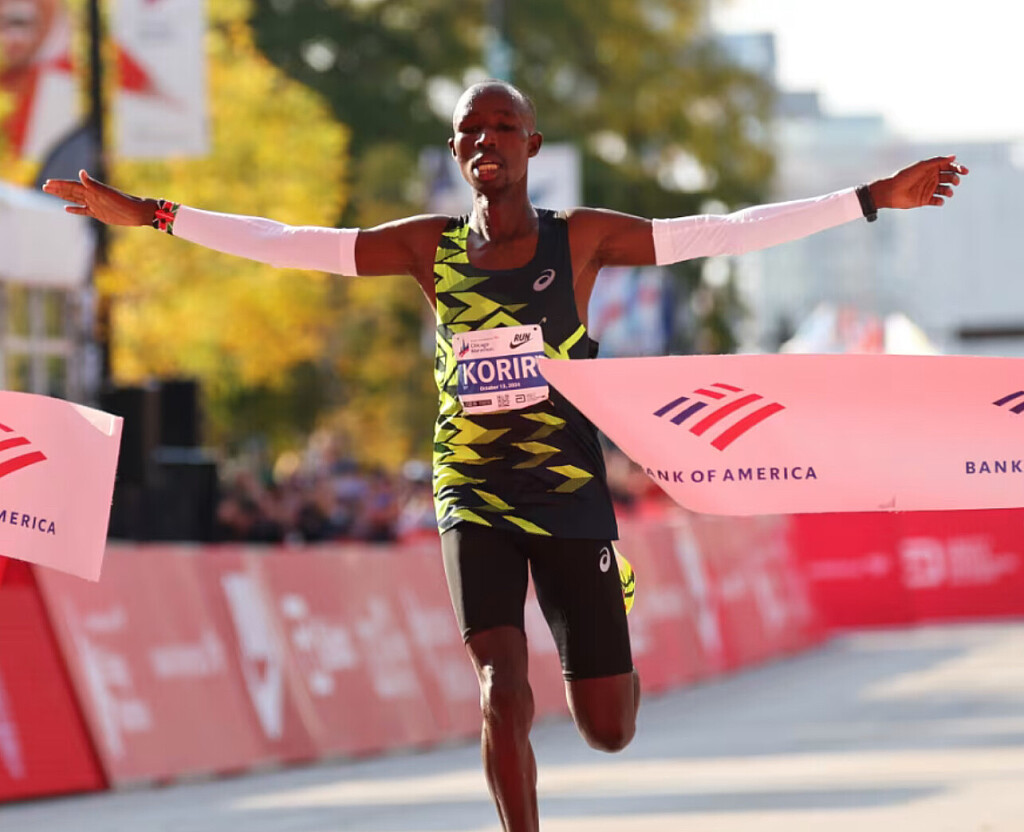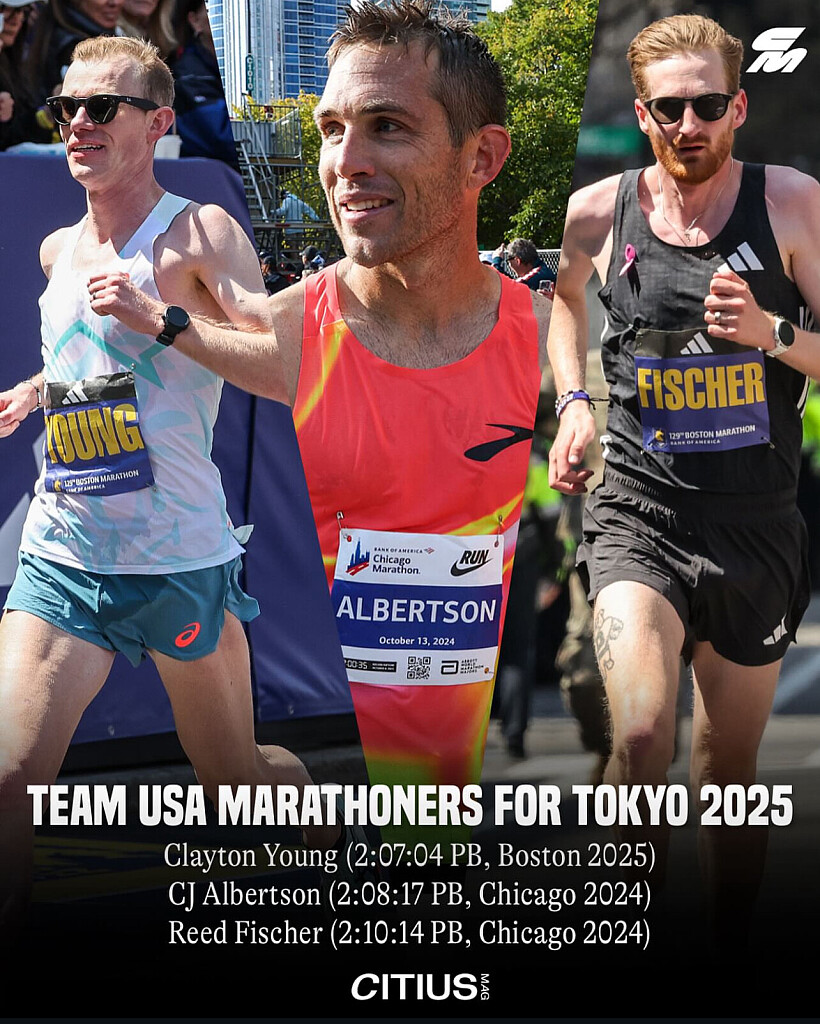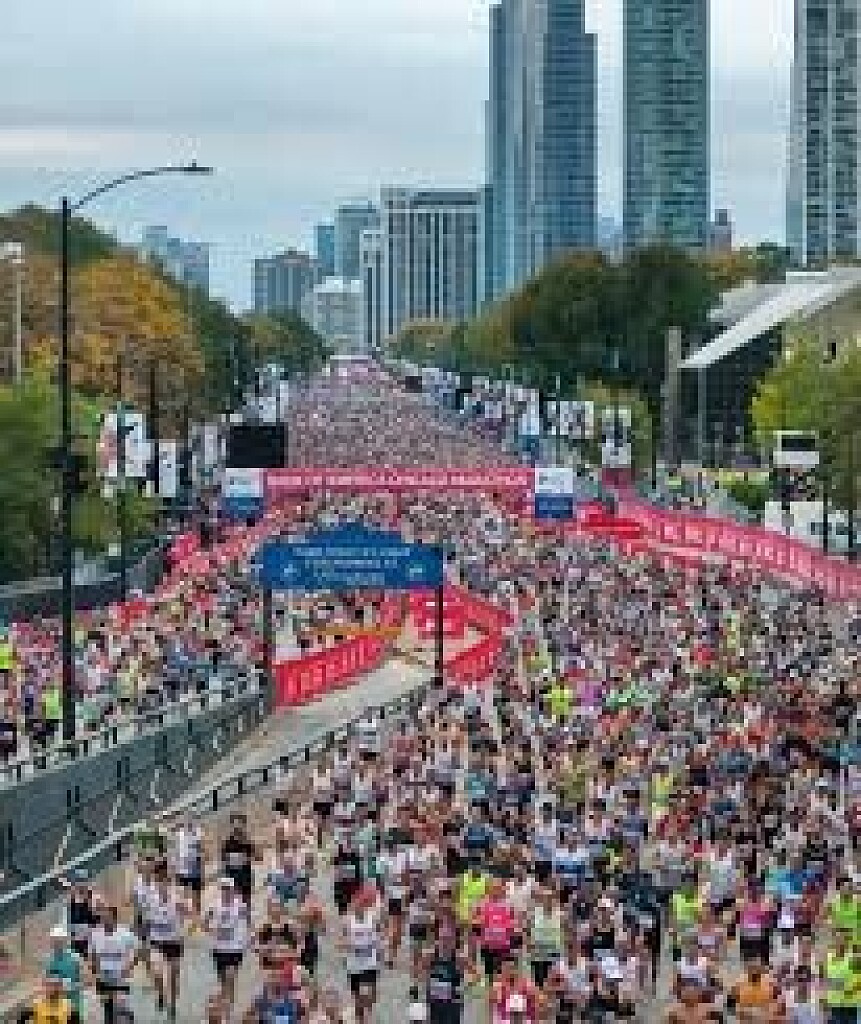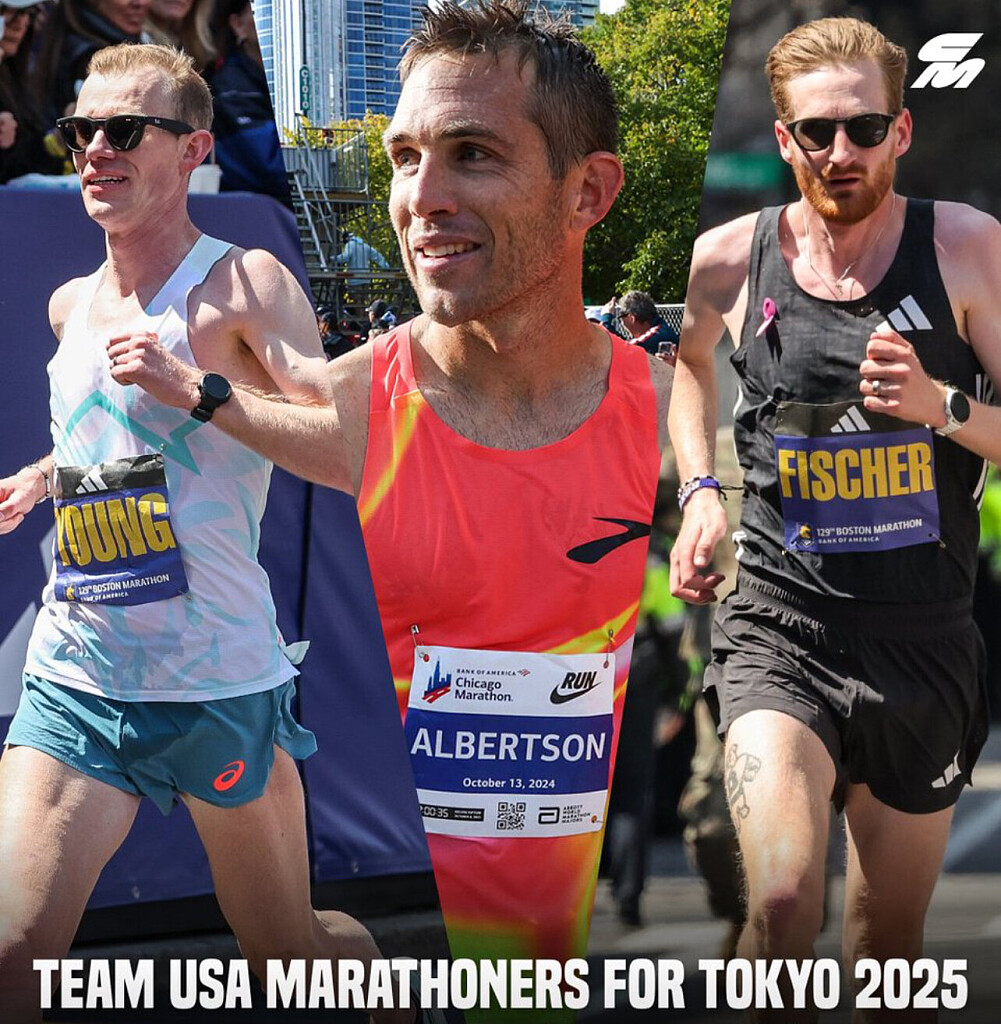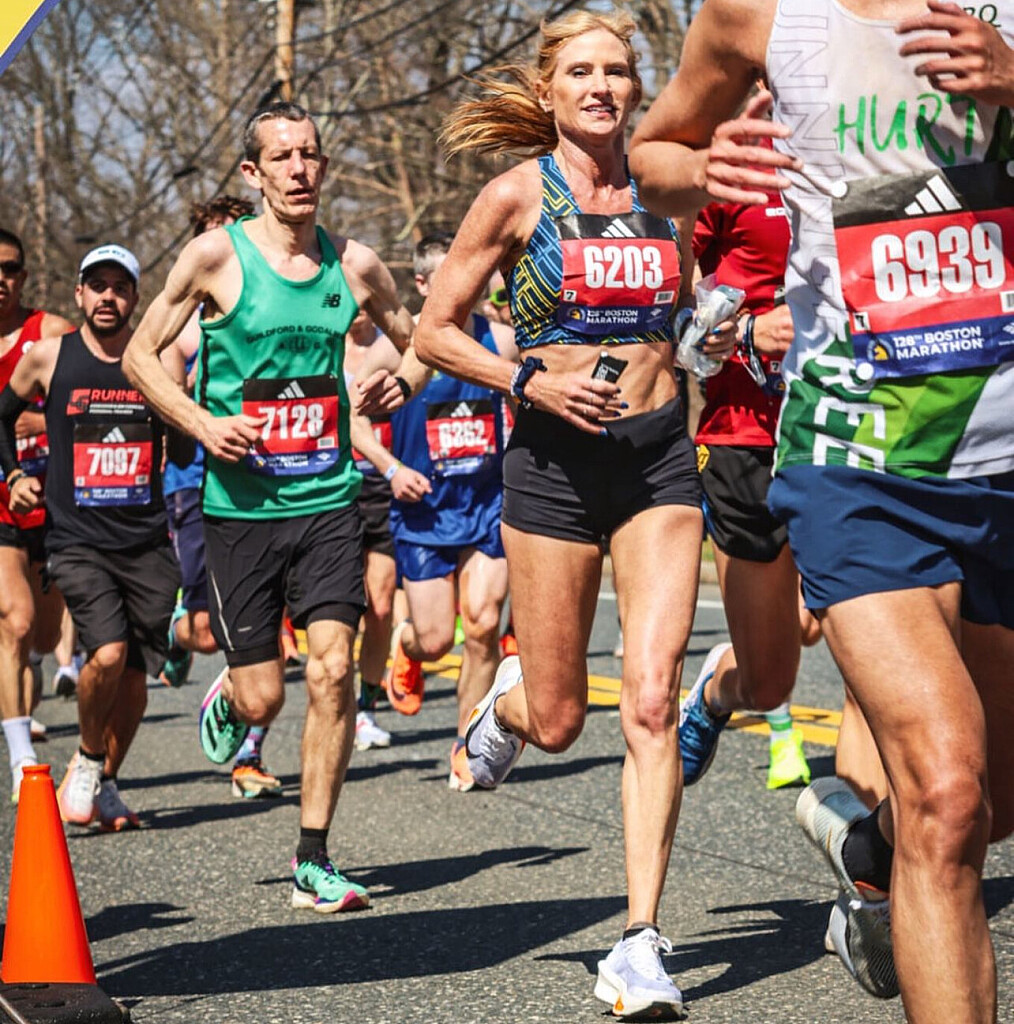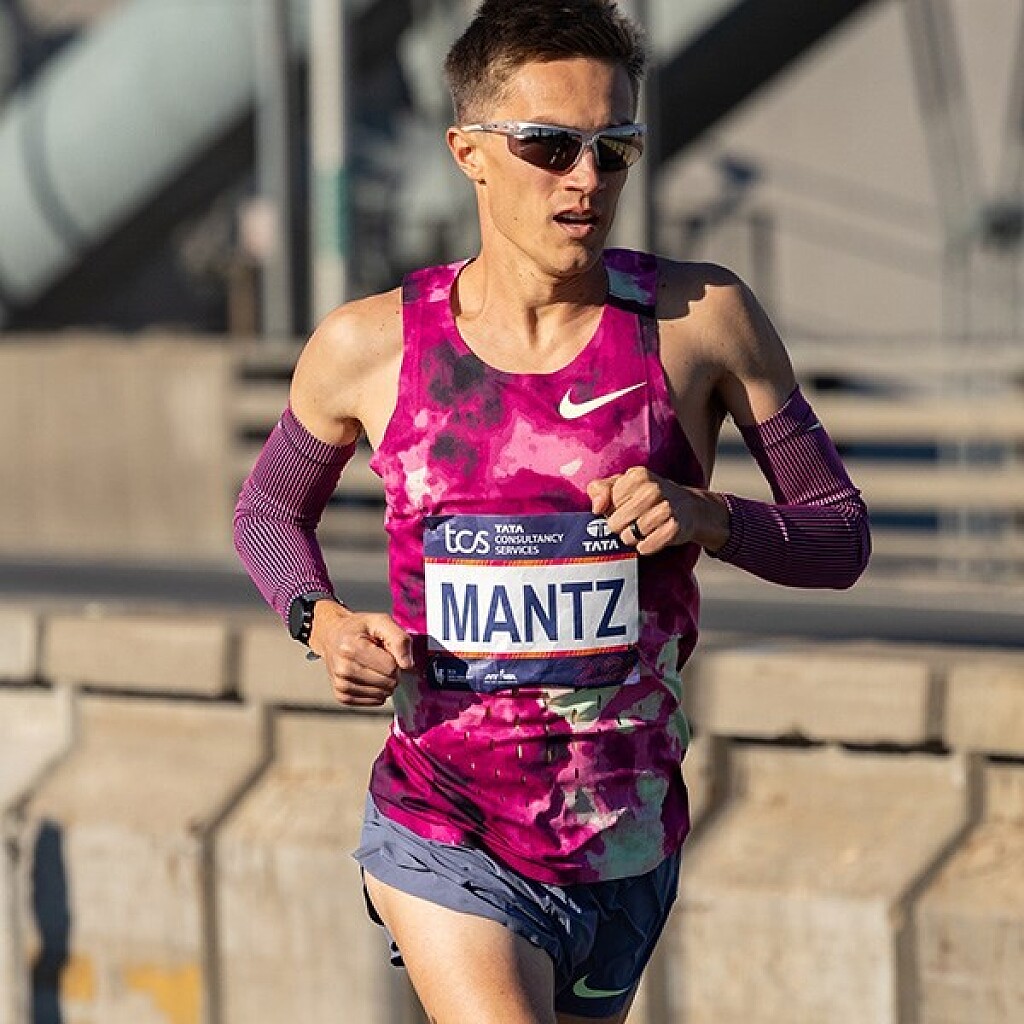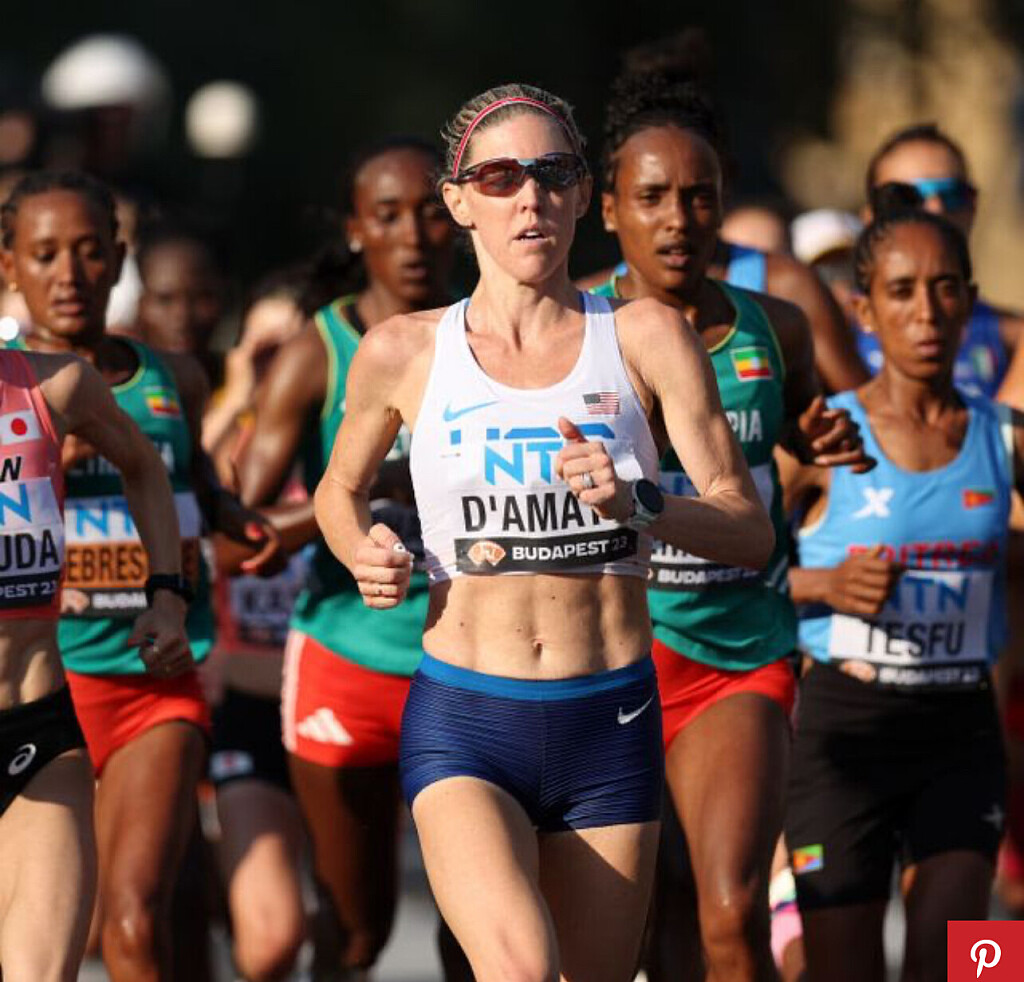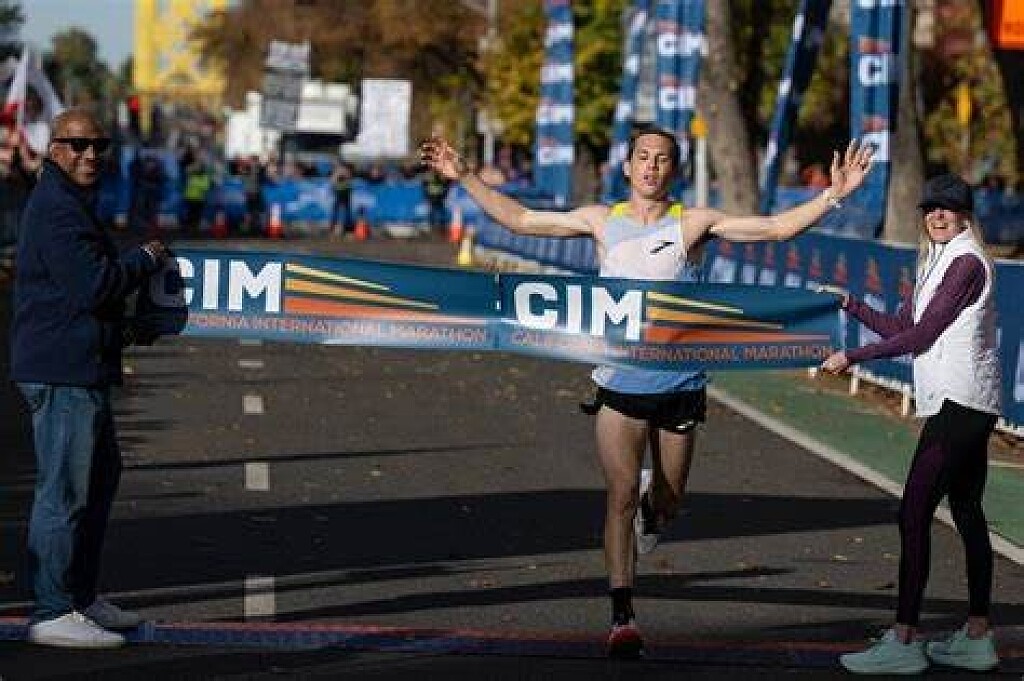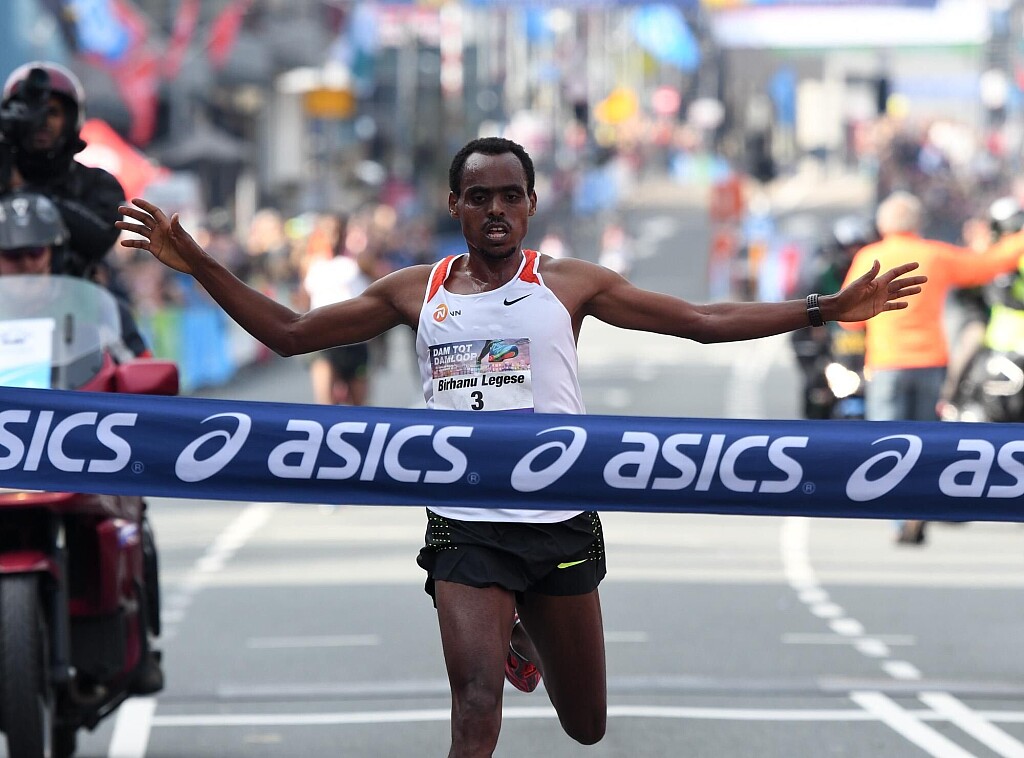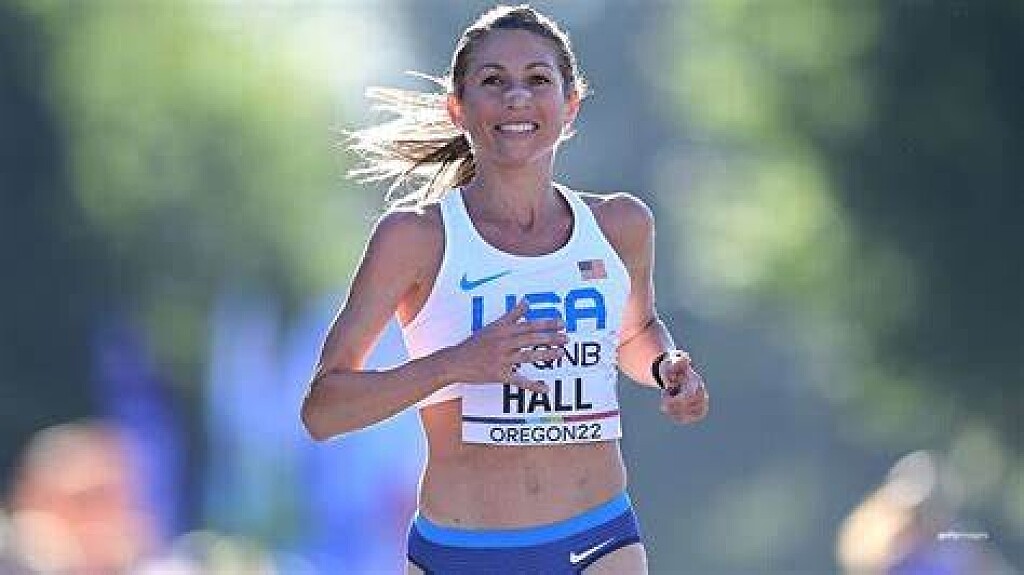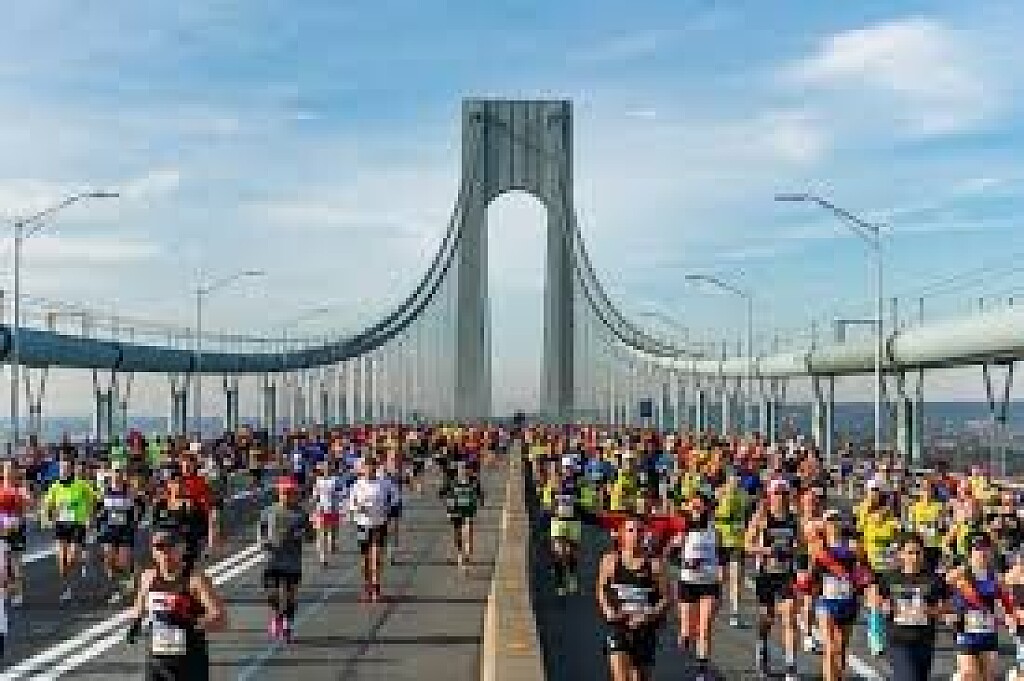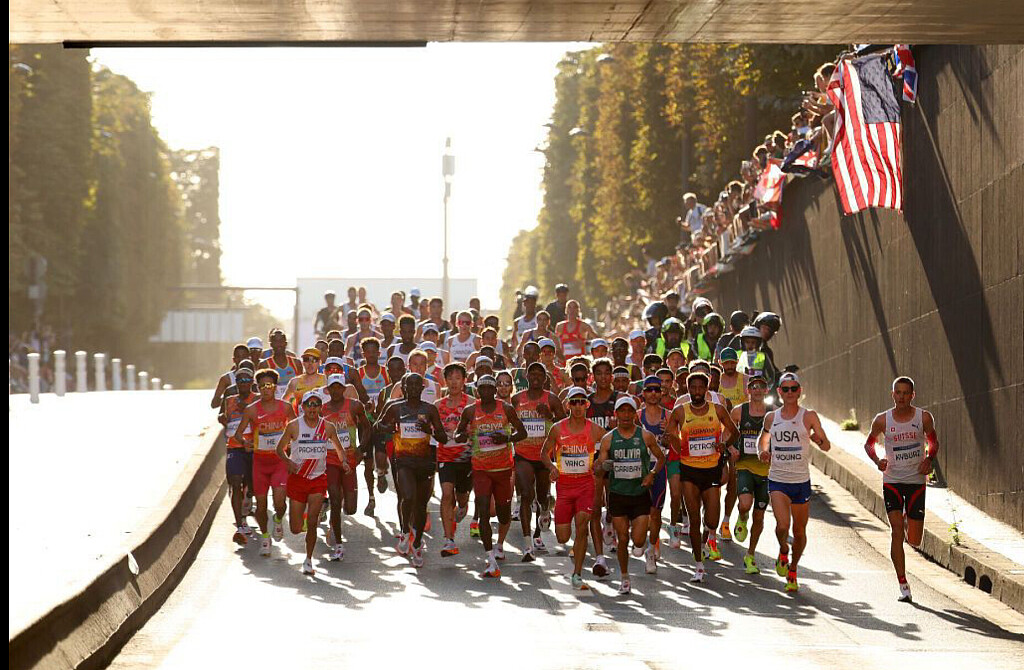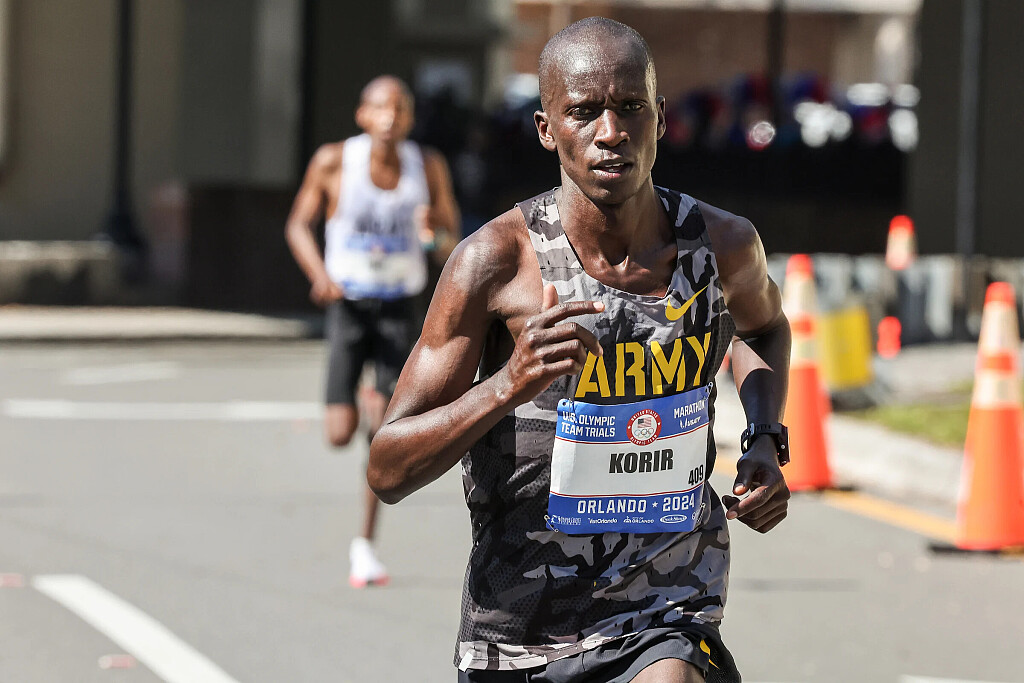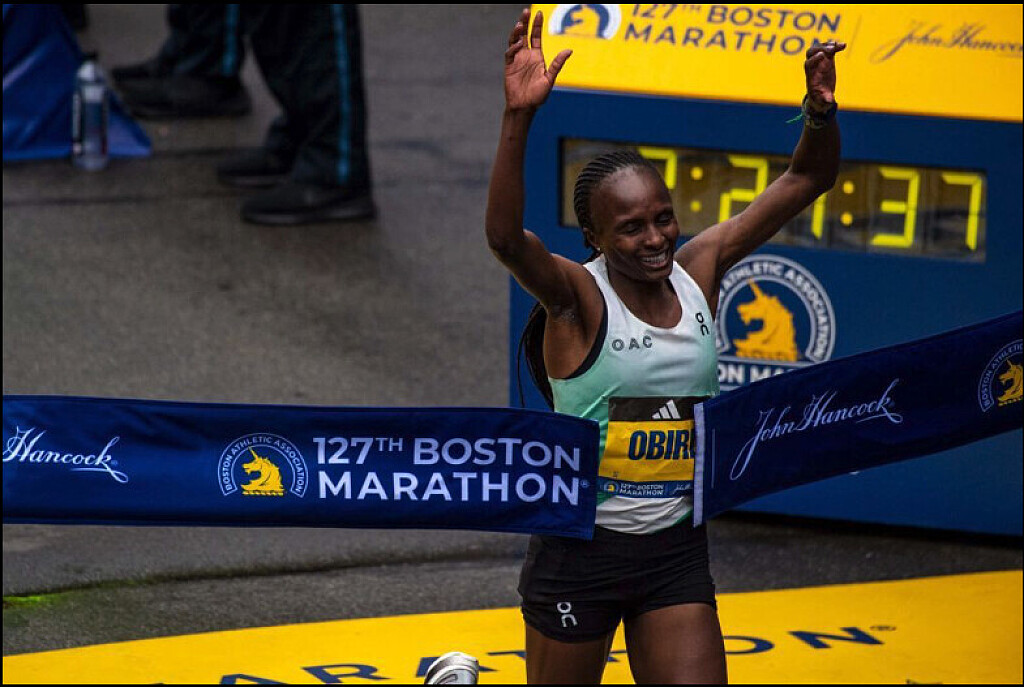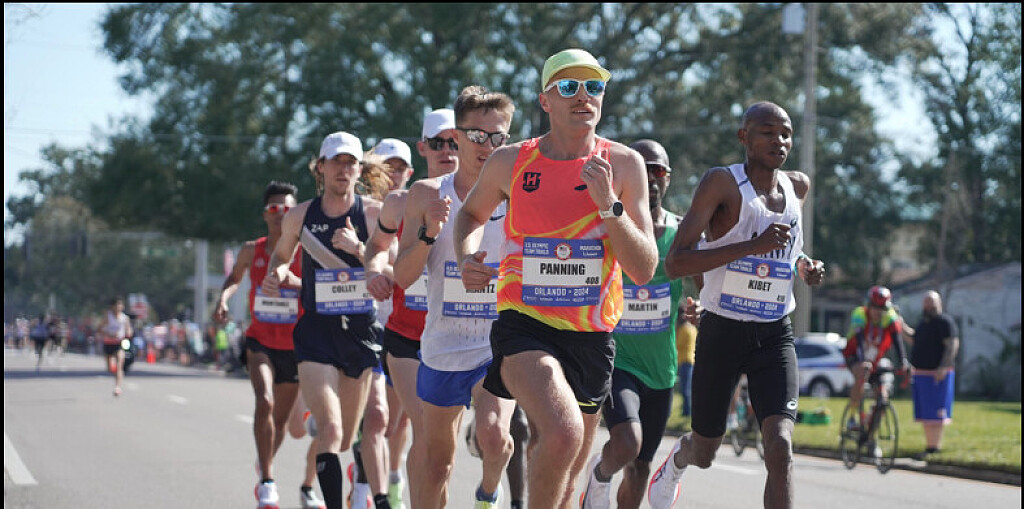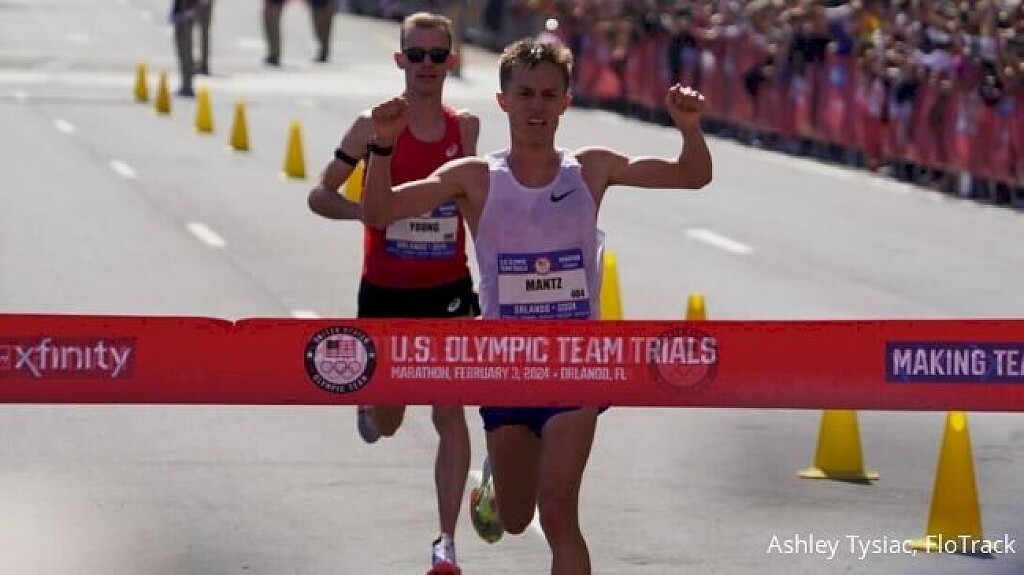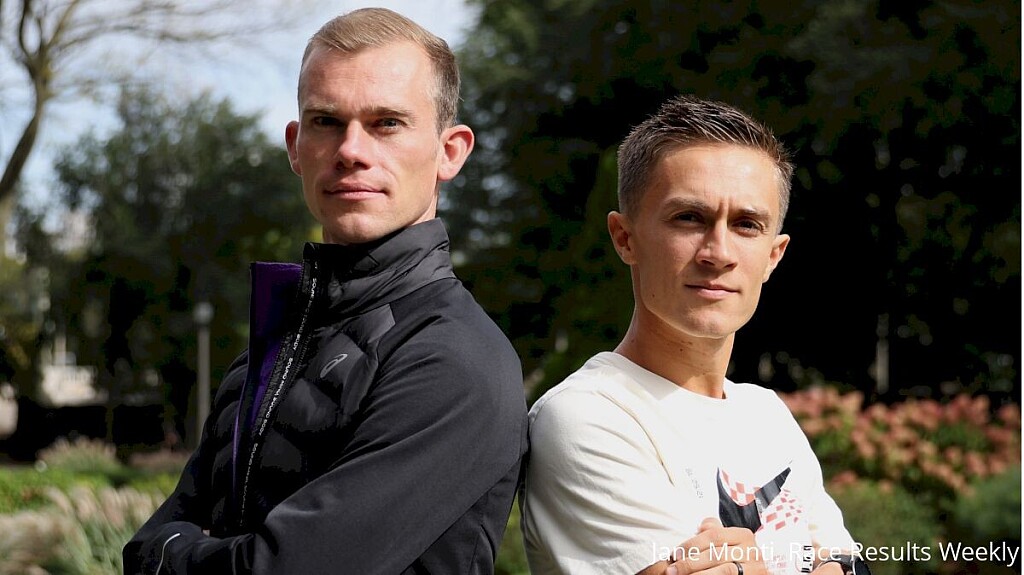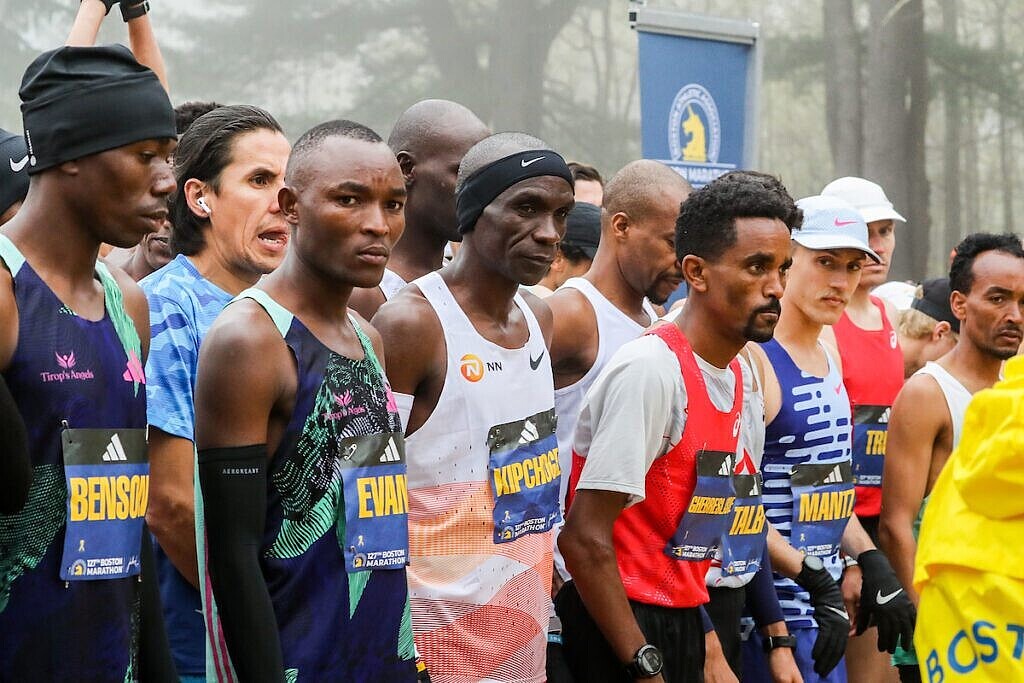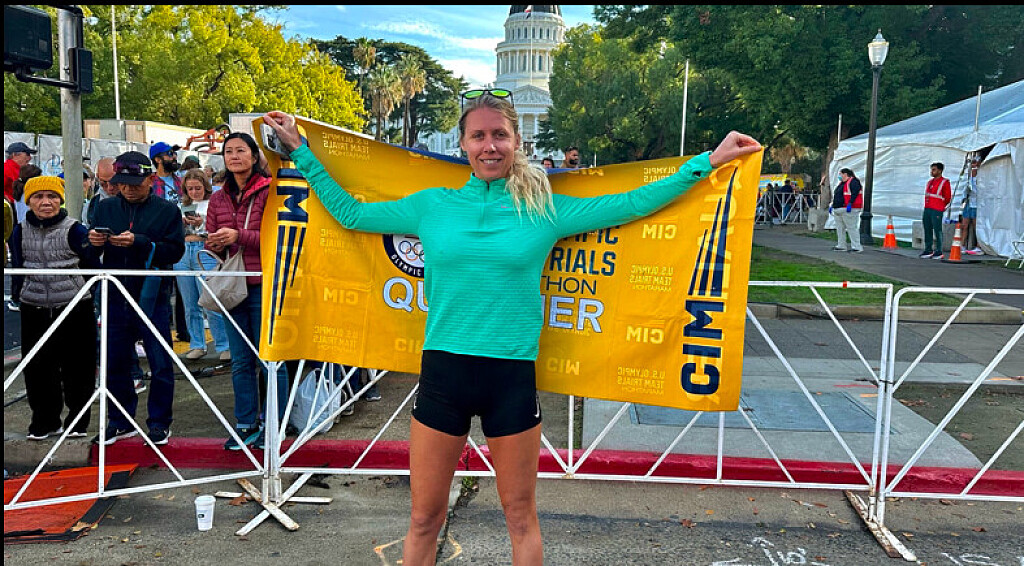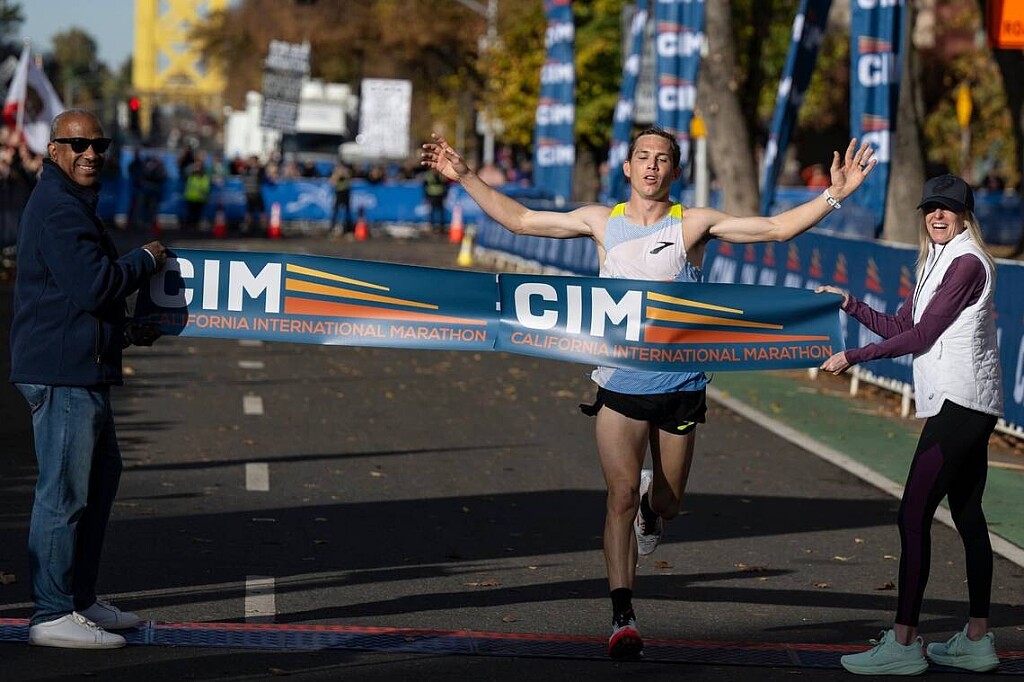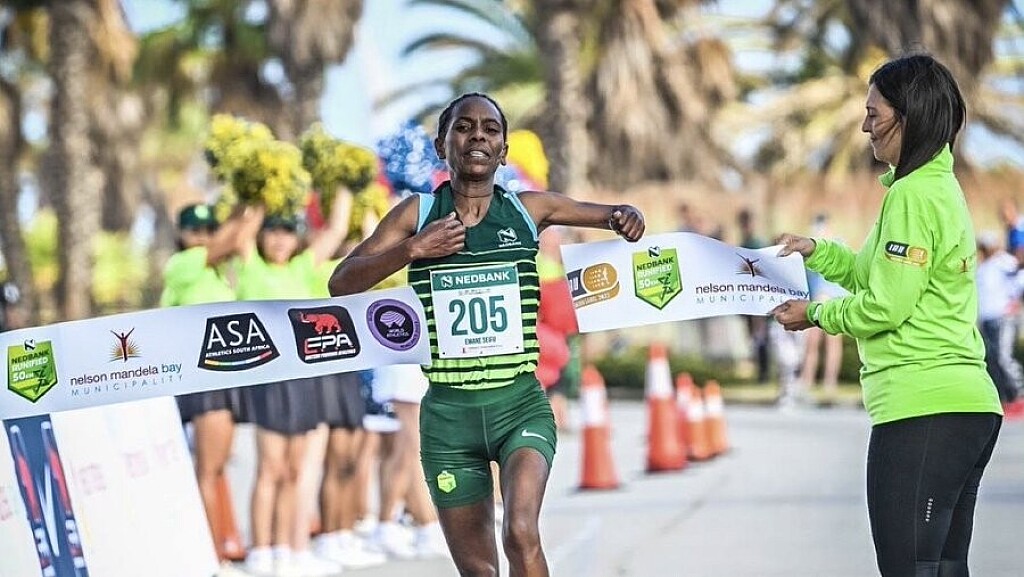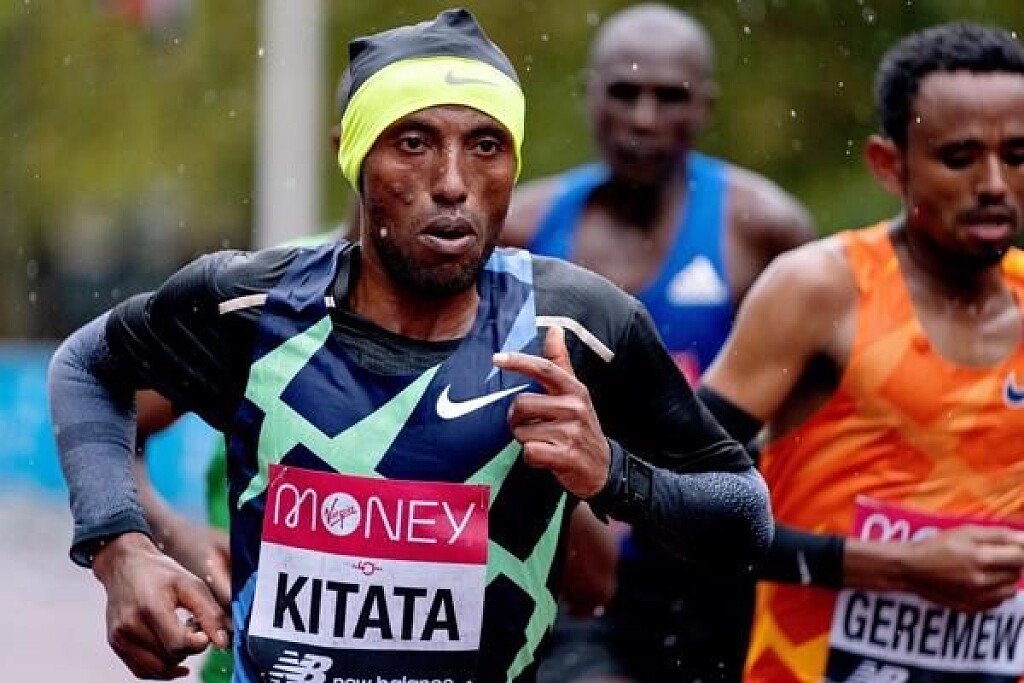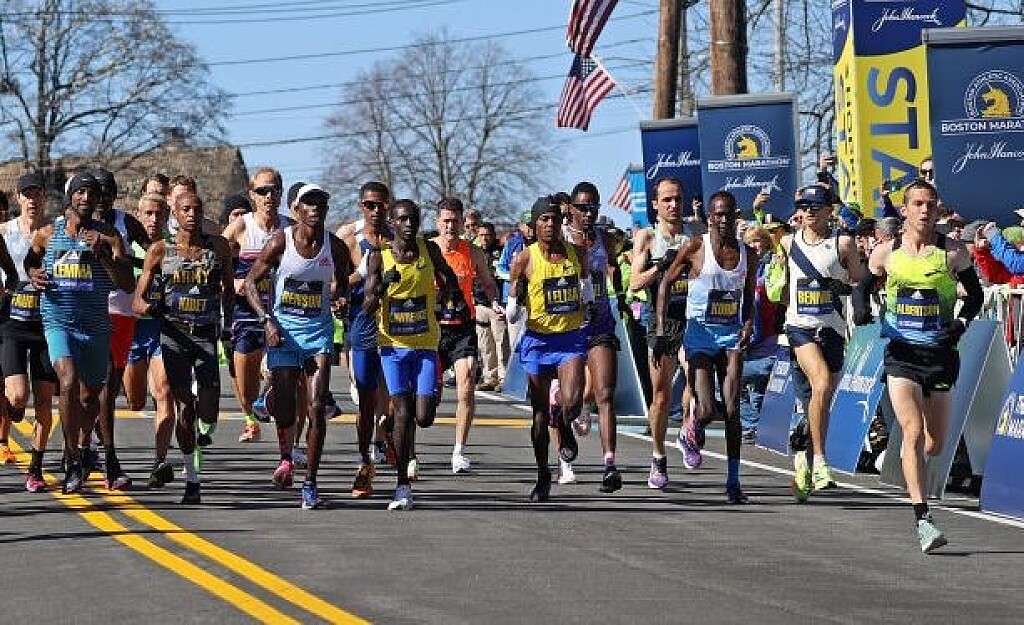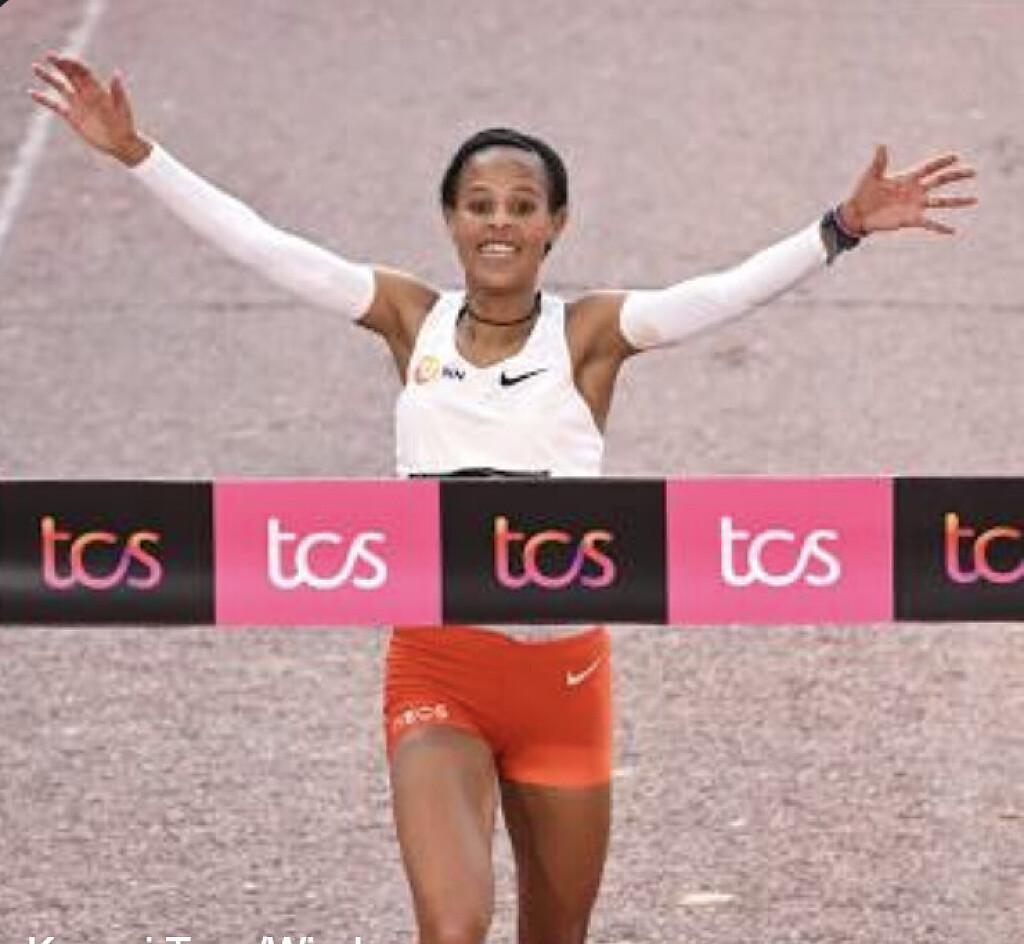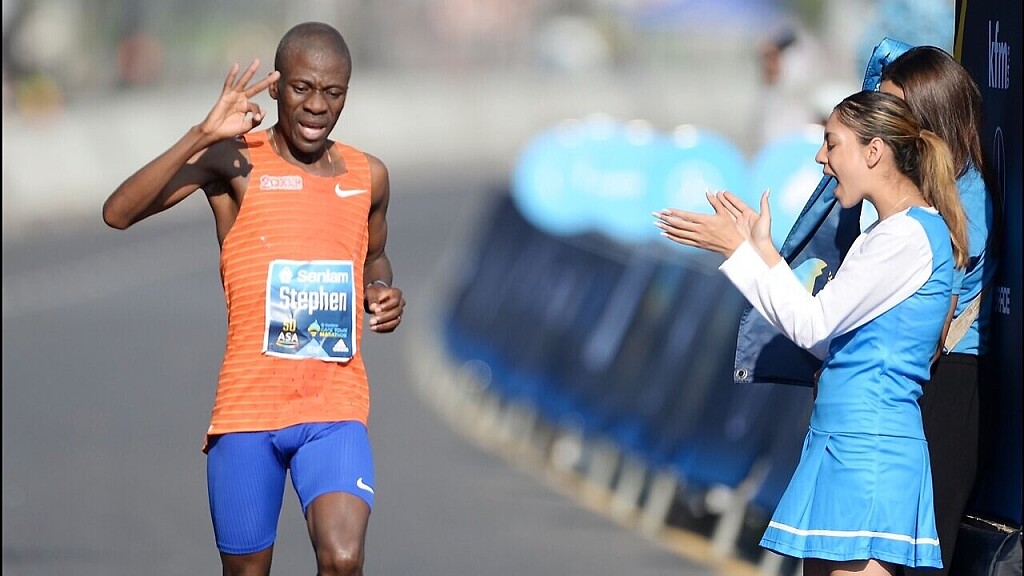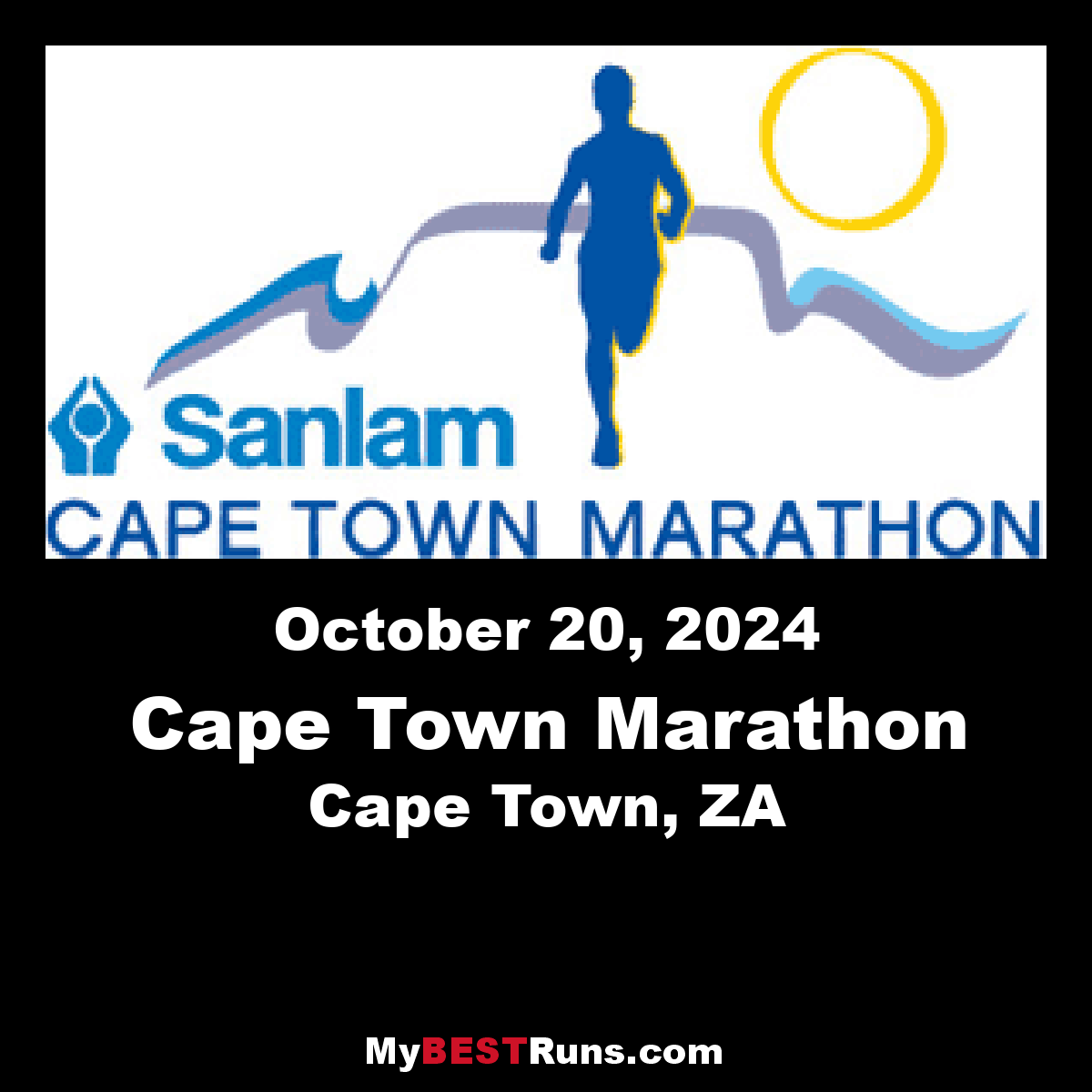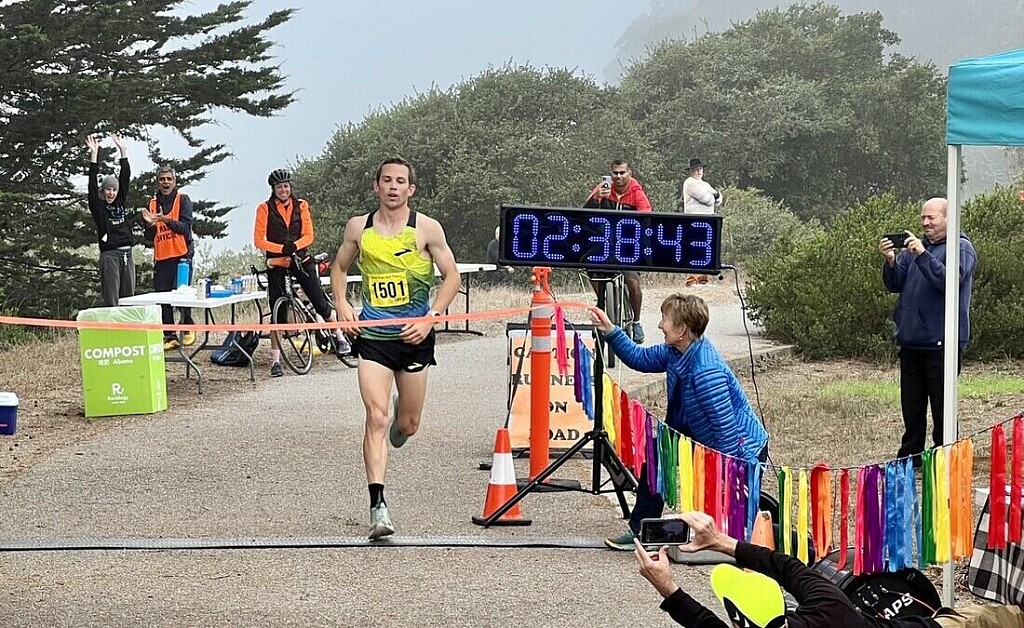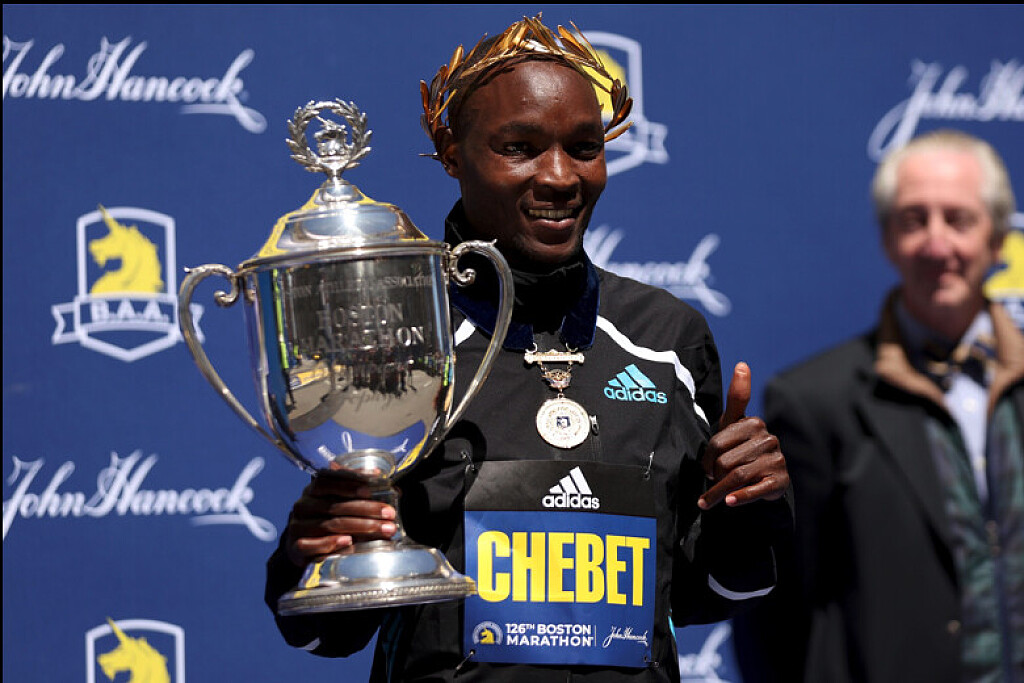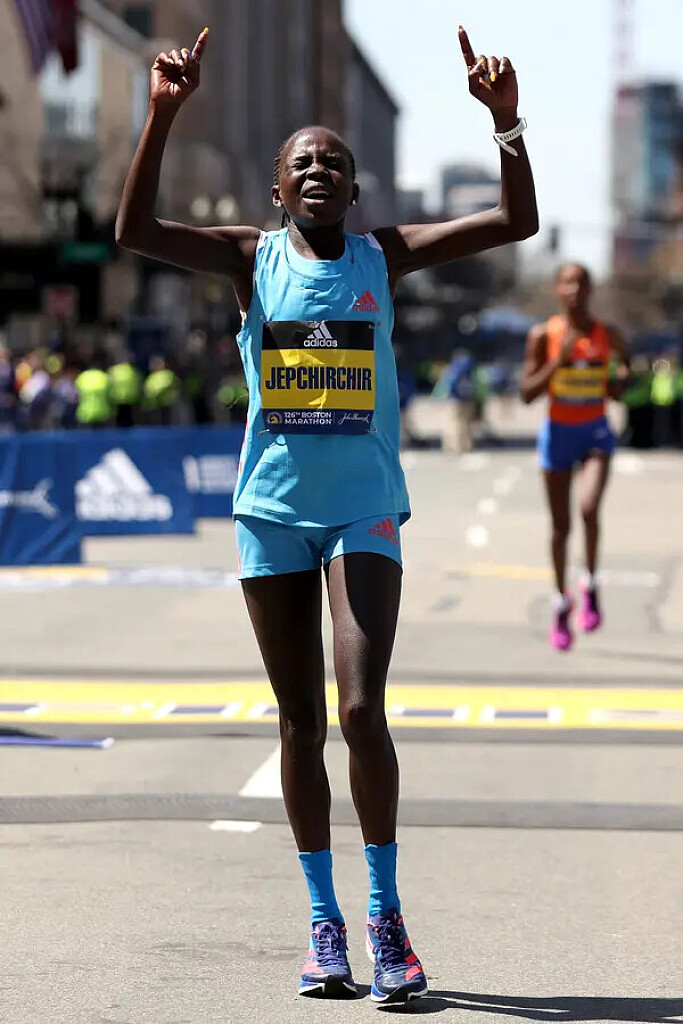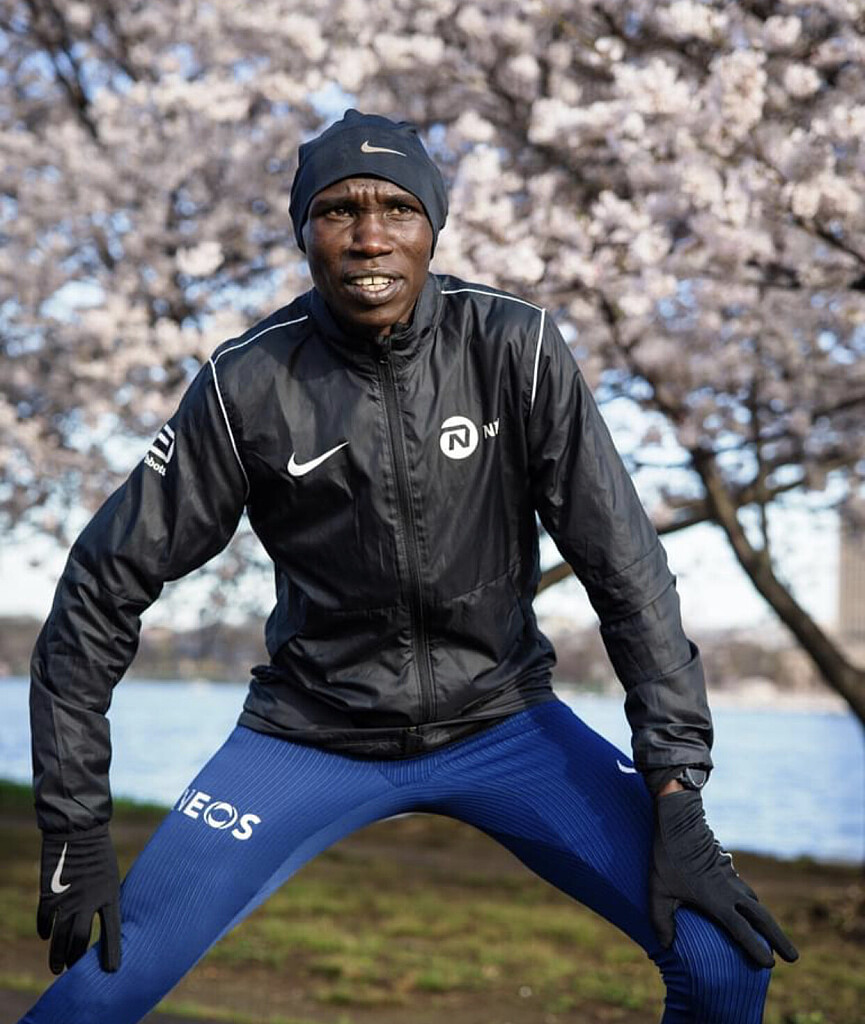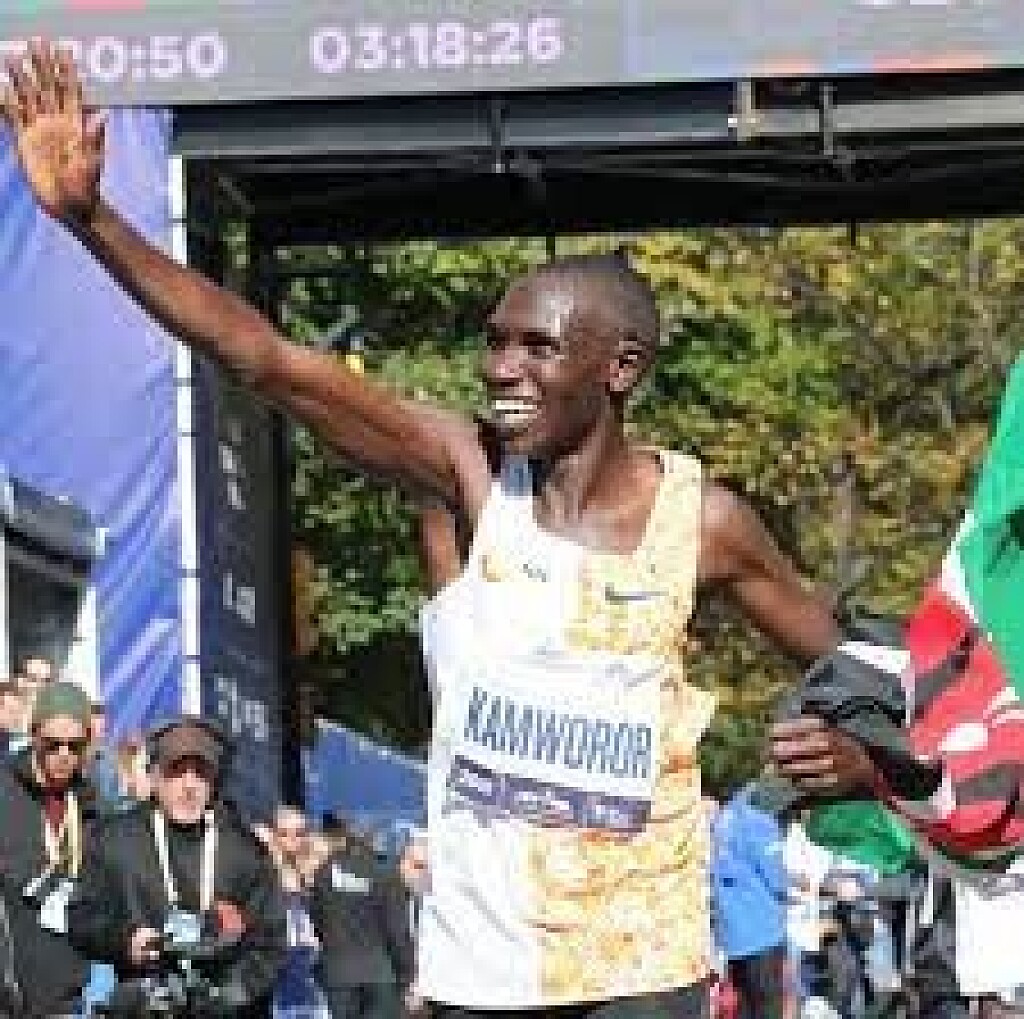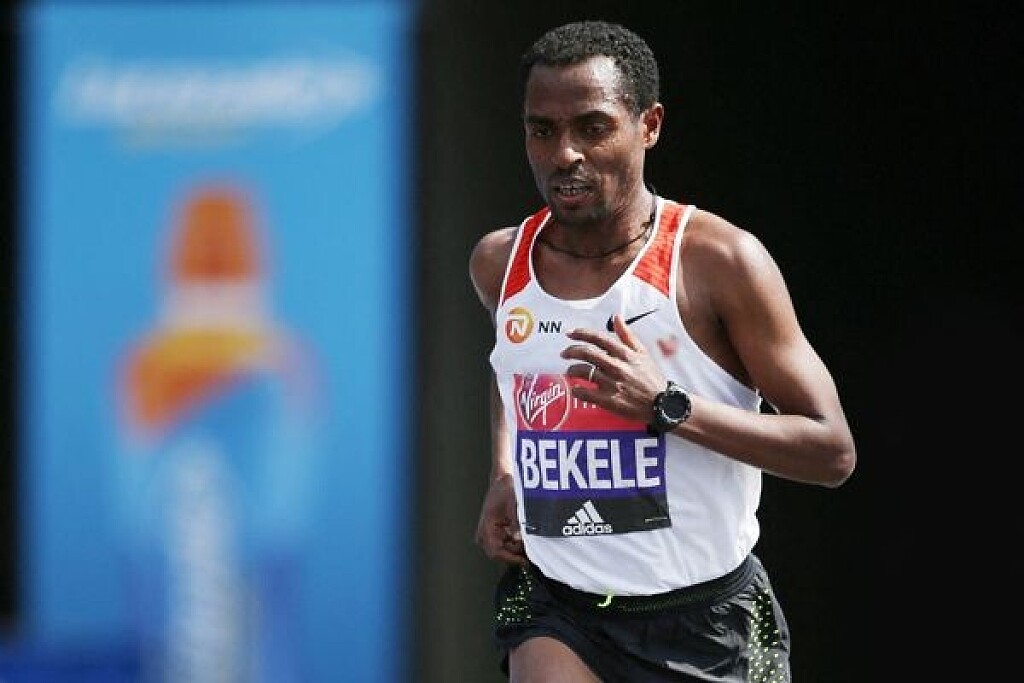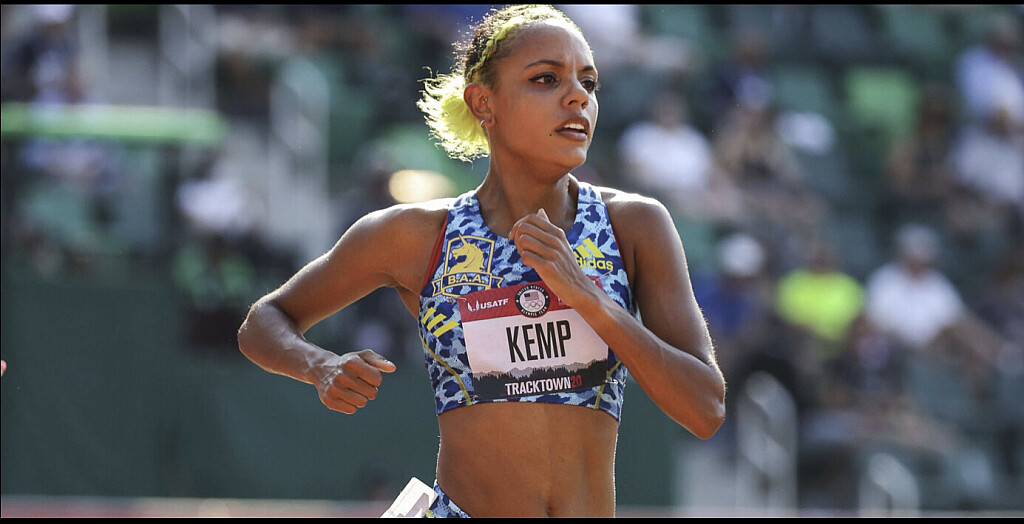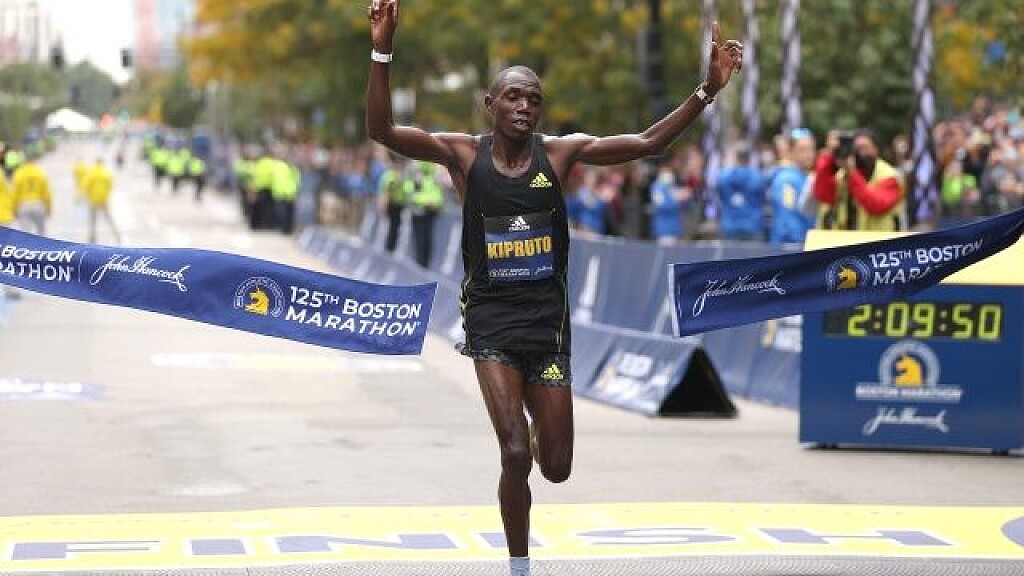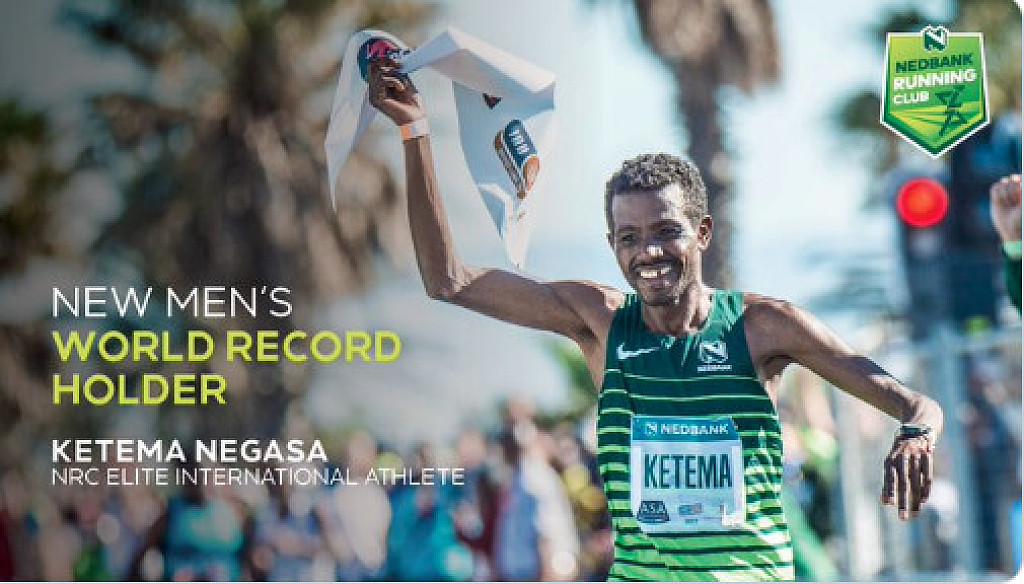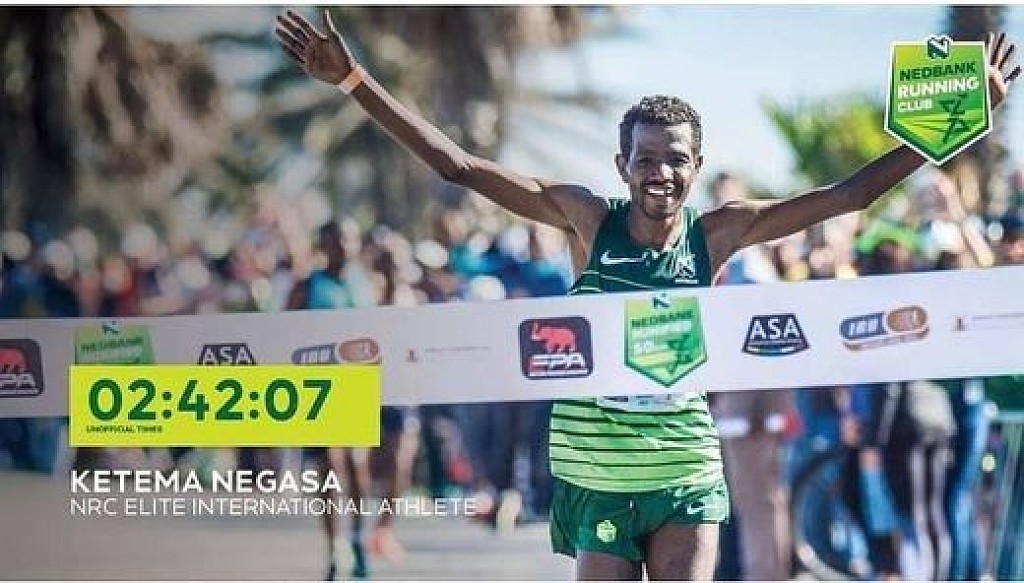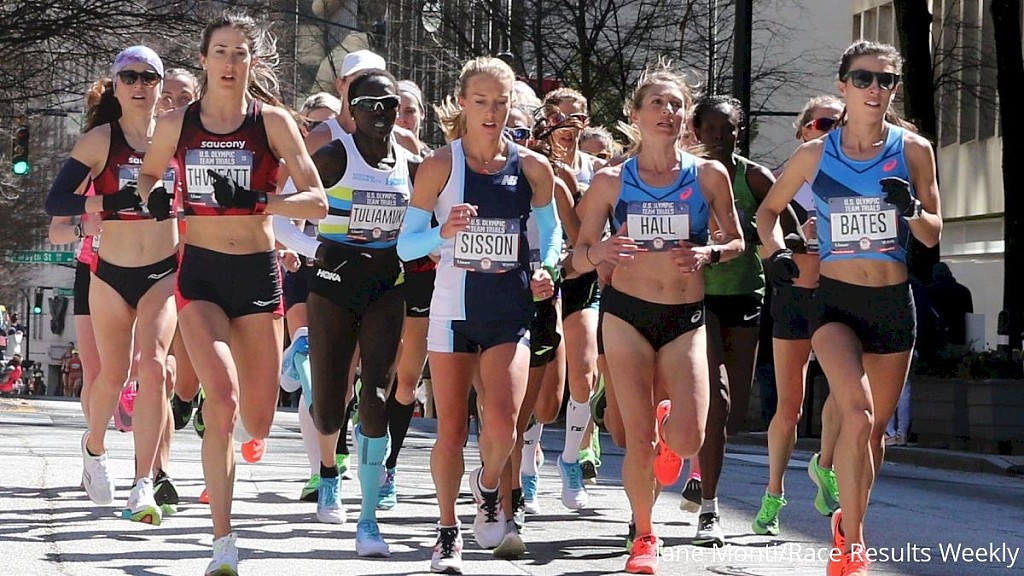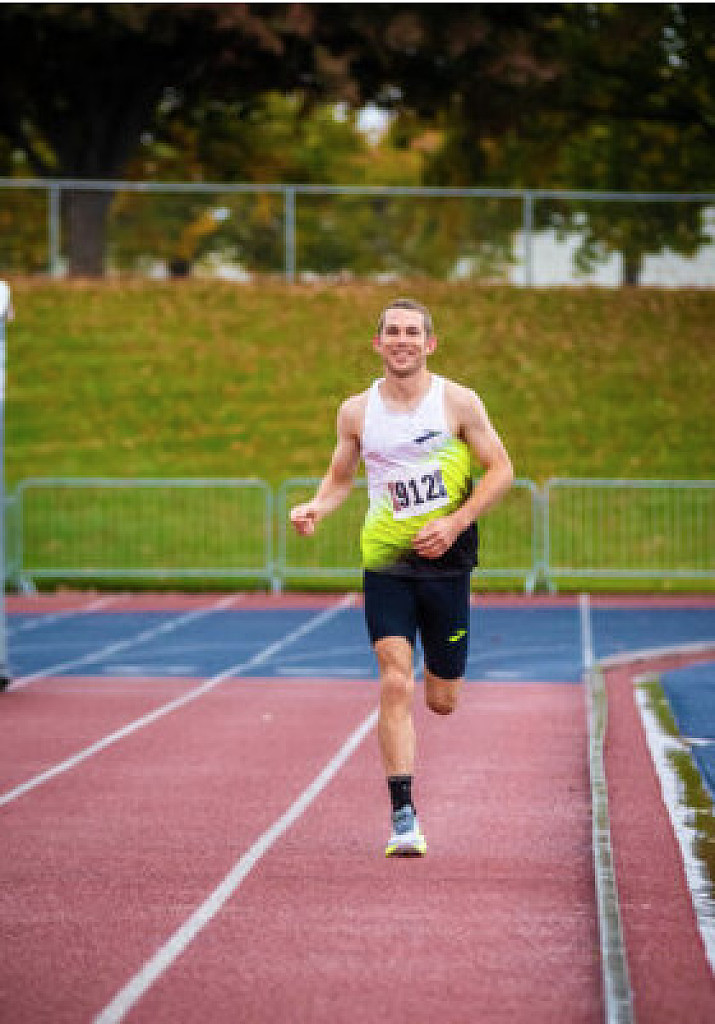Running News Daily
Running News Daily is edited by Bob Anderson. Send your news items to bob@mybestruns.com Advertising opportunities available. Train the Kenyan Way at KATA Kenya and Portugal owned and operated by Bob Anderson. Be sure to catch our movie A Long Run the movie KATA Running Camps and KATA Potato Farms - 31 now open in Kenya! https://kata.ke/
Index to Daily Posts · Sign Up For Updates · Run The World Feed
Articles tagged #CJ Albertson
Today's Running News
The Windy City Awaits: Who Will Write the Next Chapter of Chicago’s Marathon Magic?
All eyes will be on Grant Park this Sunday, as the 47th Bank of America Chicago Marathon ushers in another chapter in the city’s storied marathon legacy. Known for its flat, fast terrain and unforgiving margins, Chicago has become a proving ground where legends are made—and in 2025, the stage is again set for brilliance.
Course & Records: Anchors of Expectation
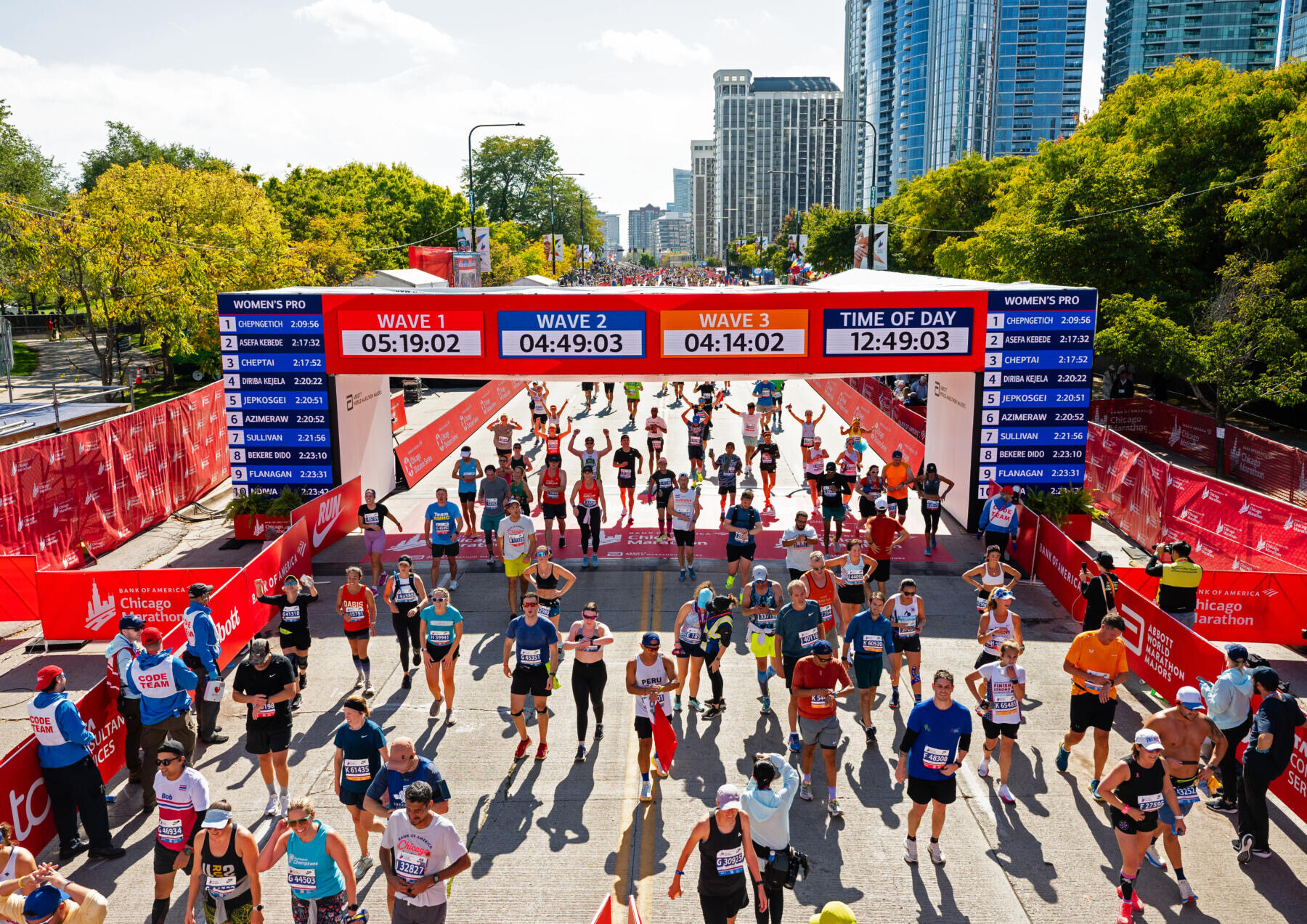
Chicago is no stranger to history. It is here that Kelvin Kiptum set the men’s world record of 2:00:35 in 2023.
On the women’s side, Ruth Chepngetich broke the world record with a stunning 2:09:56 in 2024.
These records are constant reminders of what’s possible on Chicago’s streets.
Africa’s Power Surge
The men’s field overflows with elite contenders. Reigning champion John Korir (PB 2:02:44 in Chicago 2024) returns after a dominant Boston win, aiming to defend in style.
He’s flanked by Timothy Kiplagat (2:02:55), Amos Kipruto (2:03:13), and Cybrian Kotut (2:03:22).
Uganda’s half-marathon world record holder Jacob Kiplimo (PB 2:03:37) makes another full marathon attempt with major expectations.
Ethiopia counters with Huseydin Mohamed Esa (2:04:39) and other seasoned performers, keeping the East African narrative strong.
Women’s Field: Depth, Debuts & Tactics
In the women’s race, Ethiopia’s depth dominates. Megertu Alemu (2:16:34), Hawi Feysa (2:17:00), Bedatu Hirpa (2:18:27), and Haven Hailu Desse (2:19:17) all bring serious credentials to Chicago.
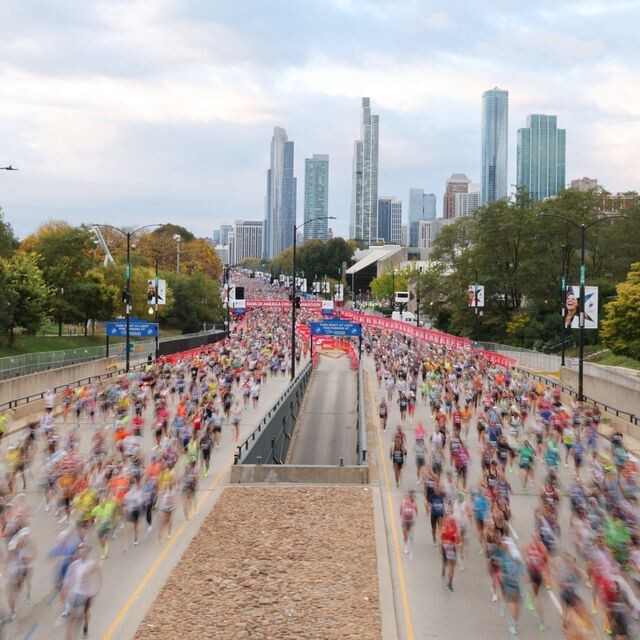
They’ll be challenged by Kenya’s Mary Ngugi-Cooper (2:20:22), while rising stars Loice Chemnung(marathon debut) and Ejgayehu Taye (track standout) add intrigue to the field.
Continental Ambitions & Local Heroes
Bashir Abdi (Belgium, 2:03:36) carries Europe’s hopes. His pacing discipline and championship experience make him a dark horse in the chaotic front pack.
On the North American front:
• Galen Rupp (2:06:07), a former Chicago champion, seeks to recapture relevance.
• Conner Mantz (2:07:47) and CJ Albertson (2:08:17) represent fresh American ambition.
• Rory Linkletter (2:08:01) brings Canadian presence to the mix.
What to Watch & Final Word
Expect fast early splits, bold moves, and surges that test everyone’s guts. The men’s race may hinge on who can ride the early pace without crashing. The women’s battle may be tactical, with late kickers deciding the outcome.
If Chicago’s history teaches us anything, it’s that when speed meets strategy, anything can happen. As the gun fires in Grant Park, we’ll see whether tradition holds or new legends are born.
by Robert Kibet
Login to leave a comment
World Championships Men’s Marathon Preview: Familiar Faces Return to Tokyo
Tokyo, September 13, 2025 – The men’s marathon at the 2025 World Athletics Championships, set for Monday, September 15, has all the makings of a showdown that feels like déjà vu for fans of road racing in the Japanese capital.
Much of the World Championships route mirrors the Tokyo Marathon course, and so too does the field. The top three finishers from March’s Tokyo Marathon — Tadese Takele and Deresa Geleta of Ethiopia, along with Kenya’s Vincent Kipkemoi Ngetich — headline the lineup. They also hold the three fastest times in the world this year among those entered, giving the race a sharp competitive edge.
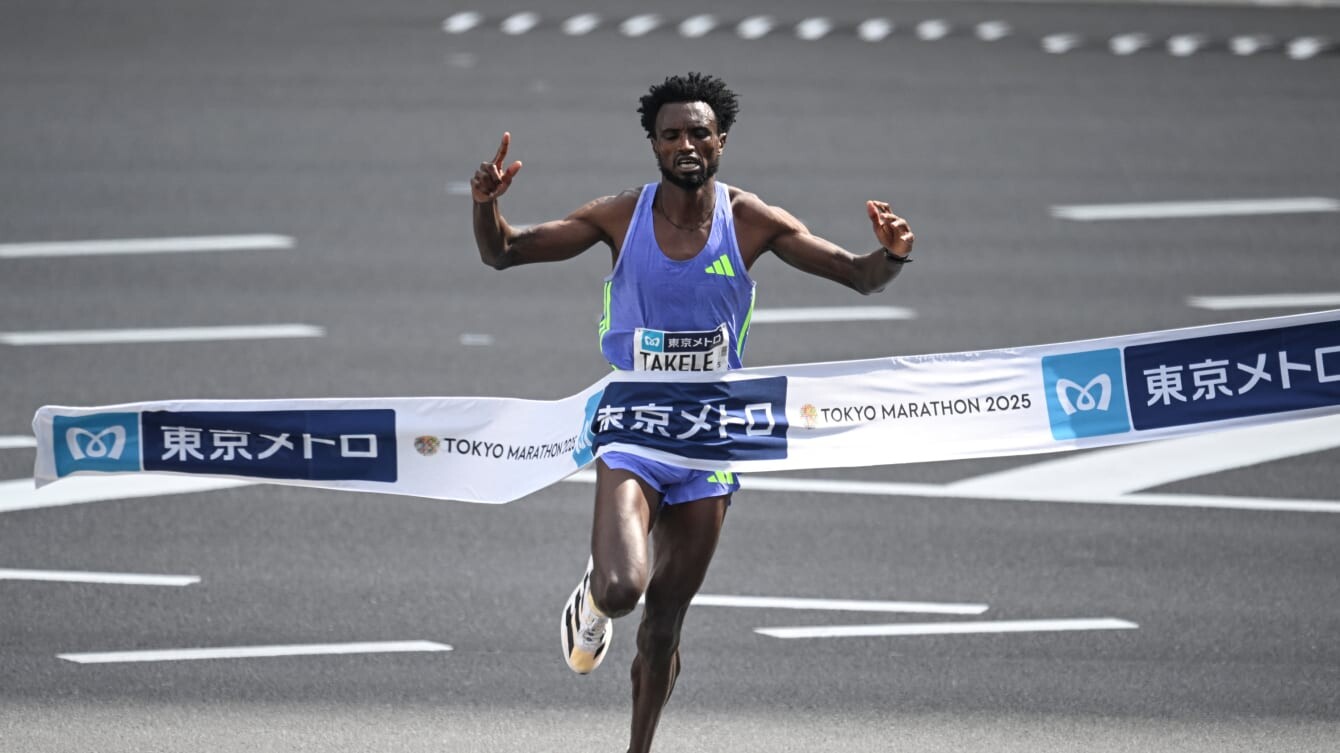
Adding to the depth, Emile Cairess of Great Britain, who placed fourth at the Paris 2024 Olympic Games, is set to challenge again in Tokyo. Defending world champion Victor Kiplangat of Uganda and 2023 Budapest silver medallist Maru Teferi of Israel add to a field packed with medal contenders.
The United States will also be represented with a strong trio: Clayton Young, CJ Albertson, and Reed Fischer. While Americans are not among the pre-race medal favorites, each brings international experience and competitive credentials. Young in particular has emerged as one of the fastest U.S. marathoners in recent years, and Albertson is known for aggressive pacing that could shake up the race dynamics. Fischer adds depth and consistency, giving Team USA multiple chances for a top-10 finish.
With multiple men entered who have run under 2:05, the pace promises to be ambitious. Whether it leads to a record will depend heavily on conditions. Tokyo has been under a heatwave alert, and organizers have moved the start time up by 30 minutes to help offset the temperatures. Still, if the weather cooperates, Tamirat Tola’s World Championships record of 2:05:36, set in Oregon in 2022, could be under serious threat.
All signs point to a thrilling clash — a familiar course, a world-class field, the Americans ready to test themselves against the best, and the possibility of history being rewritten in Tokyo.
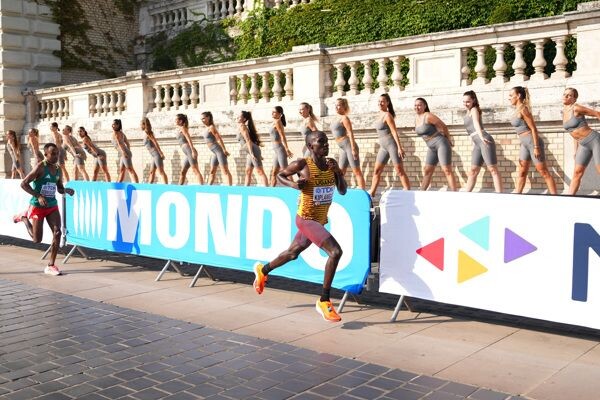
by Boris Baron
Login to leave a comment
Stacked Men’s Elite Field Set for the 2025 Chicago Marathon
The 2025 Chicago Marathon, set for October 12, promises one of the deepest men’s fields in recent history. Featuring Olympic medalists, World Marathon Majors champions, and promising debutants, this year’s race could produce a historic performance on the streets of the Windy City.
Leading the field is defending champion John Korir of Kenya, who owns a personal best of 2:02:44. He will be challenged by countryman Timothy Kiplagat (2:02:55) and Amos Kipruto (2:03:13), both proven contenders on the global stage. Adding to the Kenyan firepower are Cyprian Kotut (2:03:22), Philemon Kiplimos (2:04:01), and former World Half Marathon record-holder Geoffrey Kamworor(2:04:23).
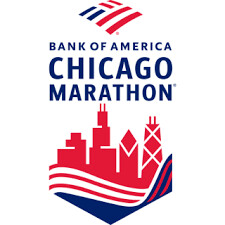
International stars include Olympic marathon champion Bashir Abdi (2:03:36) of Belgium, Uganda’s Jacob Kiplimo (2:03:01), and Ethiopia’s Huseydin Mohamed Esa (2:04:39).
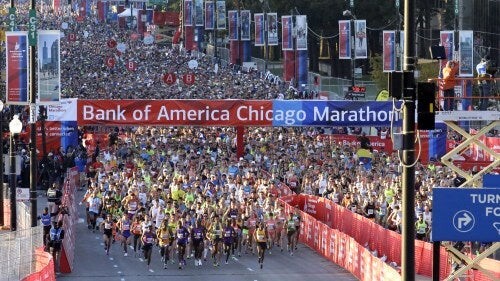
The American contingent is particularly strong this year, led by Conner Mantz (2:05:08), Daniel Ebenyo (2:06:04), and Galen Rupp (2:06:07). Other top U.S. names include Matt Richtman (2:07:56), Ryan Ford (2:08:00), Rory Linkletter (2:08:01), and CJ Albertson (2:08:17). The lineup also features debut marathoners Casey Clinger and Tai Dinger, both looking to make their mark.
With such a talent-packed field, the 2025 Chicago Marathon could see not only a thrilling battle for the win but also a possible course record — and perhaps another sub-2:03 clocking on American soil.
The flat, fast Chicago course combined with October’s typically cool running conditions make this race a prime stage for history. Fans around the world will be watching closely to see which athlete emerges victorious in what promises to be one of the most competitive marathons of the year.
by Boris Baron
Login to leave a comment
Bank of America Chicago
Running the Bank of America Chicago Marathon is the pinnacle of achievement for elite athletes and everyday runners alike. On race day, runners from all 50 states and more than 100 countries will set out to accomplish a personal dream by reaching the finish line in Grant Park. The Bank of America Chicago Marathon is known for its flat and...
more...Team USA Names Marathon Stars for Tokyo 2025
USA Track & Field has officially announced its six-member marathon team for the 2025 World Athletics Championships, set for September 13–21 in Tokyo, Japan. This global event brings together the top track and field athletes from over 200 countries, with the marathon races scheduled for the final weekend and expected to be among the most anticipated events of the Championships.
With a challenging course, warm and humid conditions, and the return to a city steeped in marathon history, Tokyo 2025 is shaping up as a true test of strategy, stamina, and speed. Team USA’s roster features a mix of proven veterans and breakthrough performers, all poised to take on the world.
USA Men’s Marathon Team
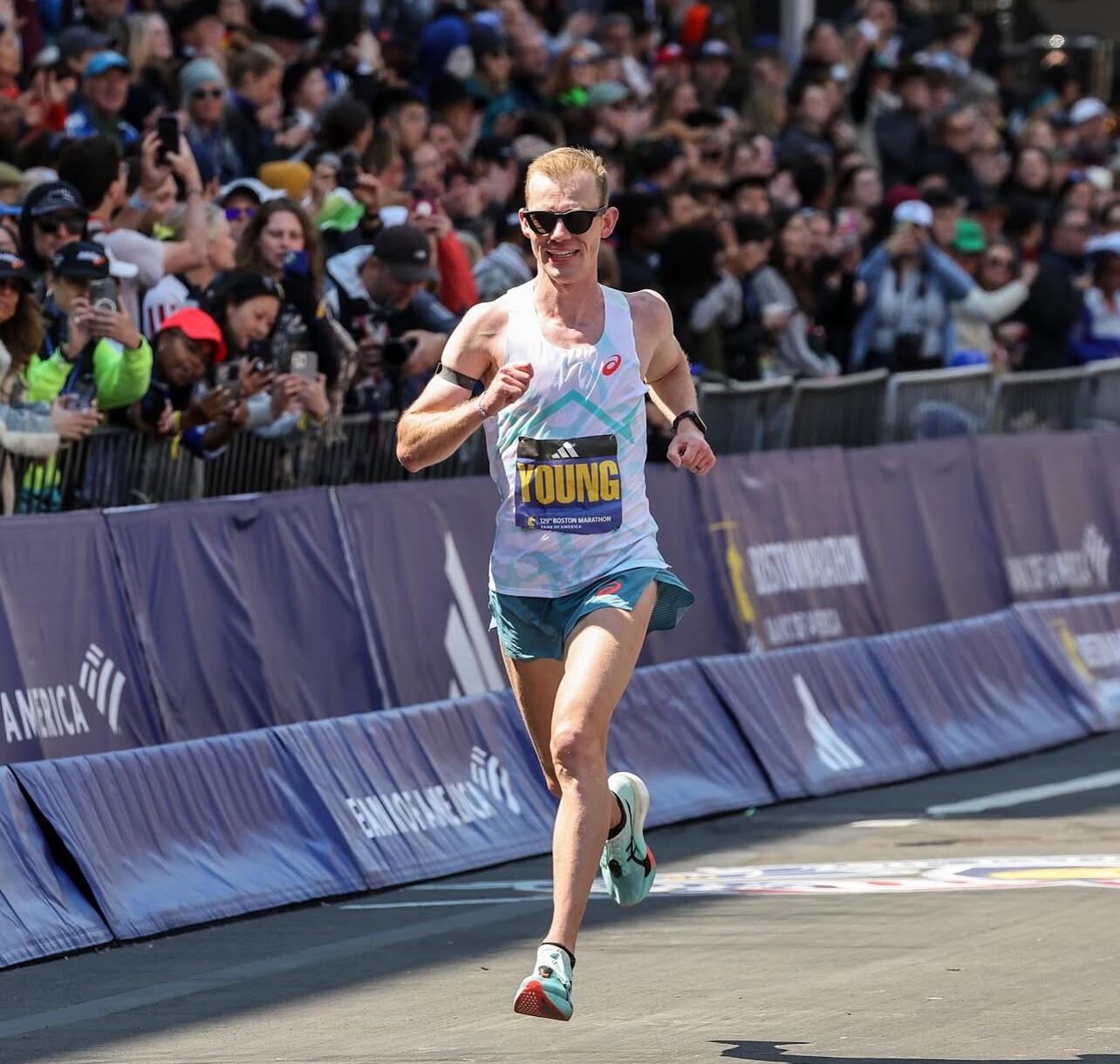
Clayton Young headlines the team following a standout 2:07:04 performance at the 2025 Boston Marathon. After placing 9th at the 2024 Paris Olympics, Young’s Boston result marked a significant leap forward and positioned him as a top contender in Tokyo.
Joining him is CJ Albertson, known for his bold tactics and relentless pacing. He set a personal best of 2:08:17 in Chicago and brings a fearless approach to championship racing.
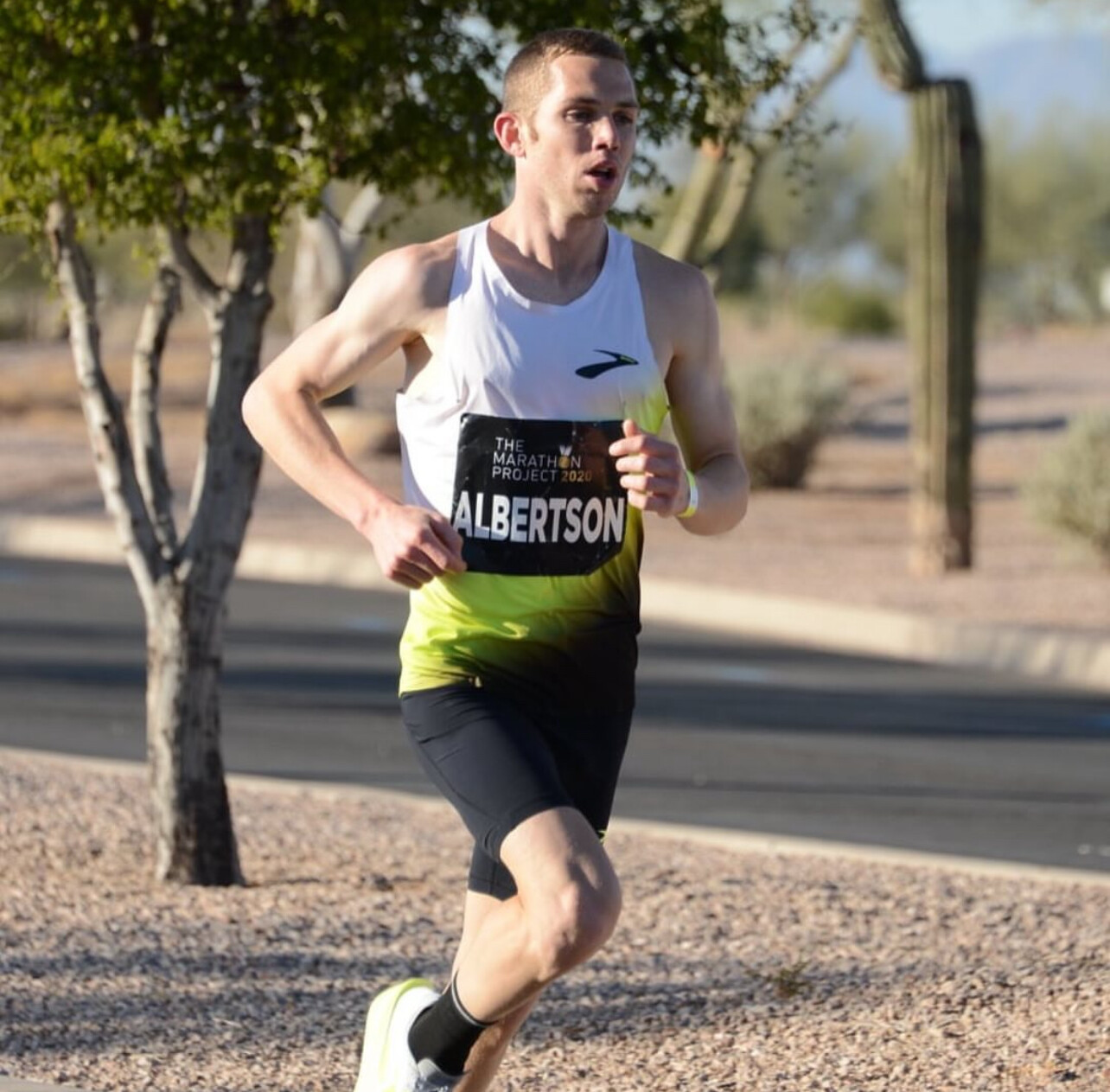
Reed Fischer rounds out the men’s trio, earning his spot through consistent performances and a 2:10:14 finish in Chicago. His steady progression and racing smarts add valuable depth to the squad.
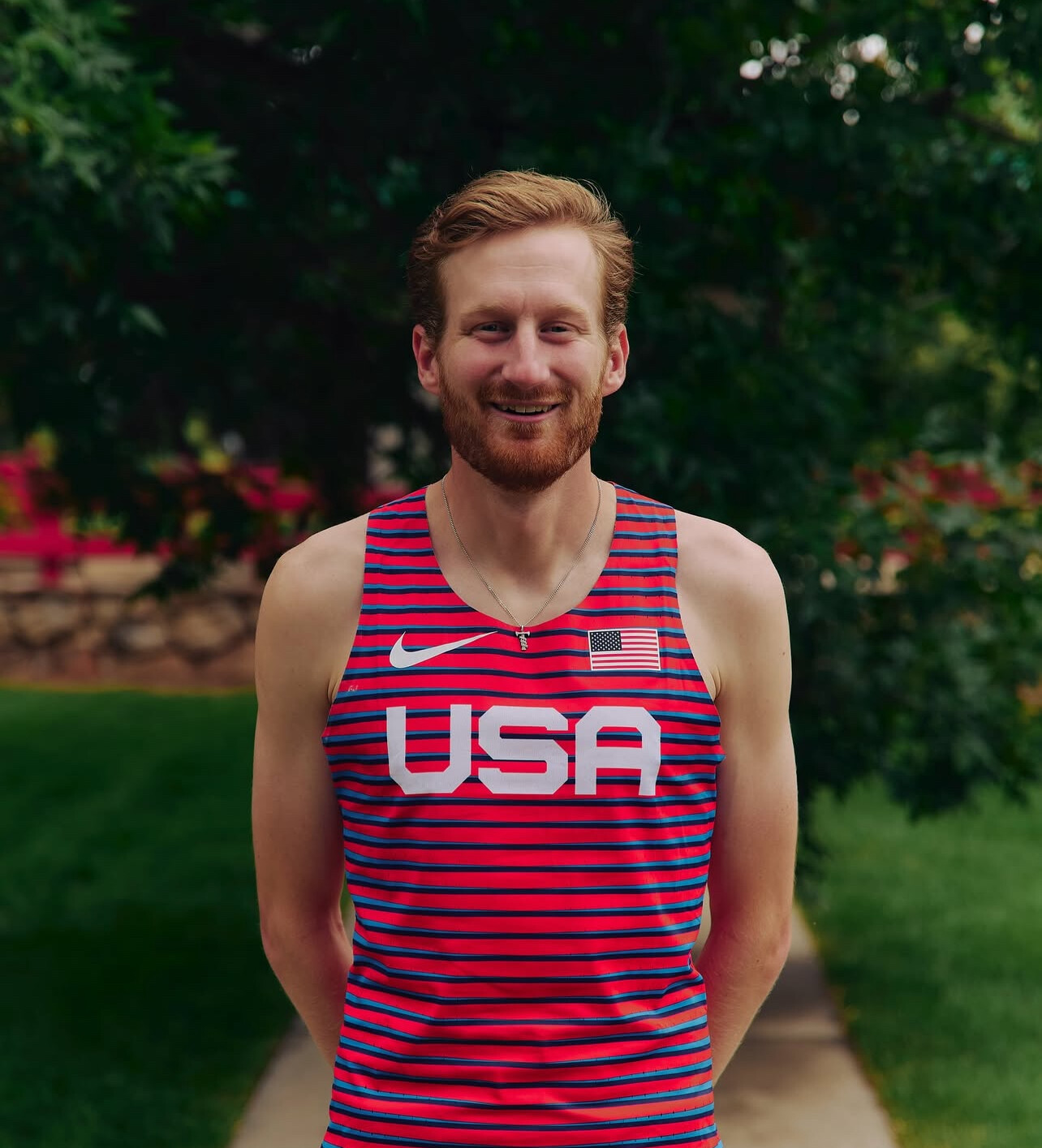
USA Women’s Marathon Team
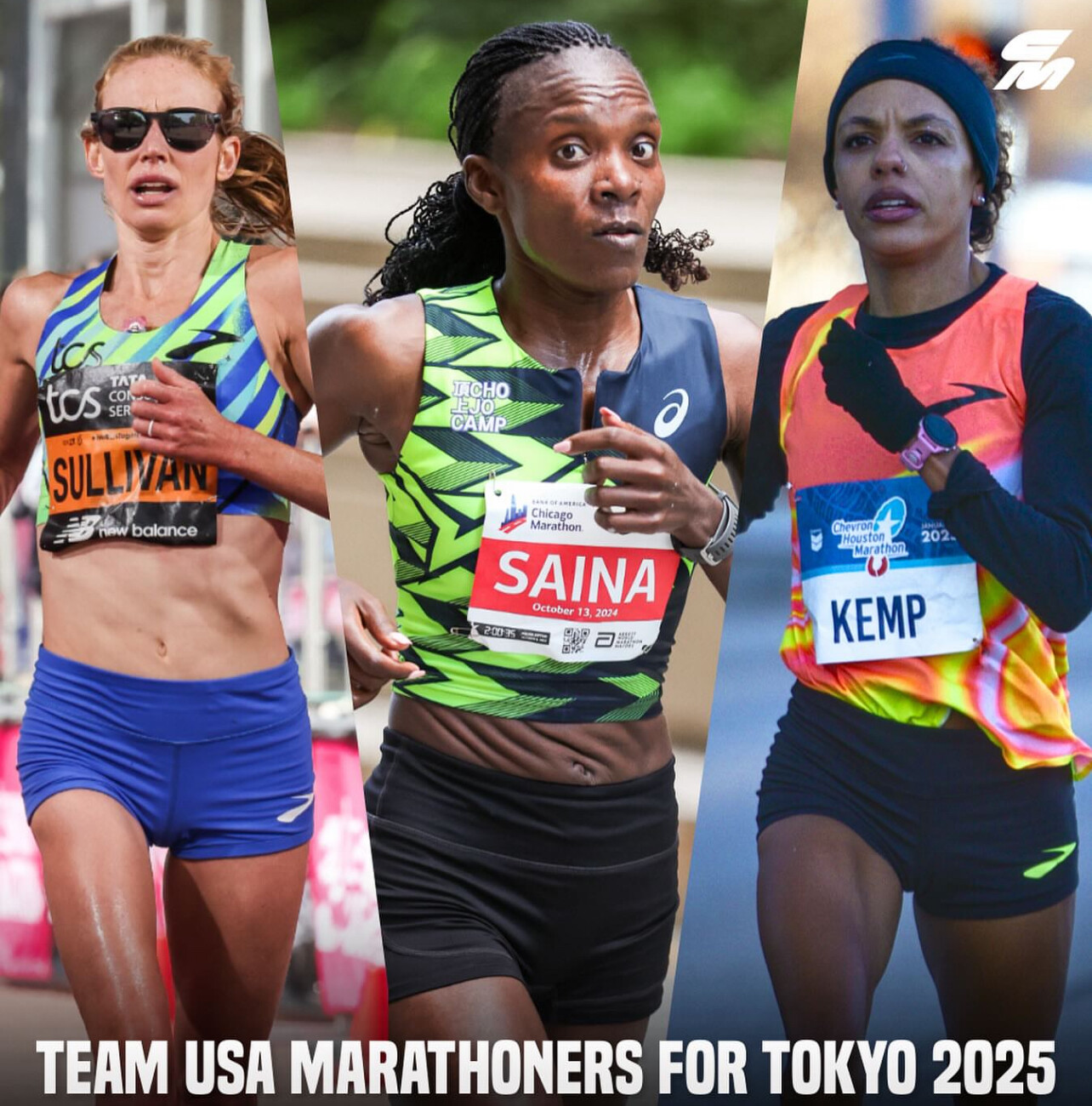
Betsy Saina, the fastest U.S. marathoner this year with a 2:19:17 at the Tokyo Marathon, leads the women’s lineup. The former Kenyan Olympian, now representing the U.S., brings international experience and high expectations into this championship season.
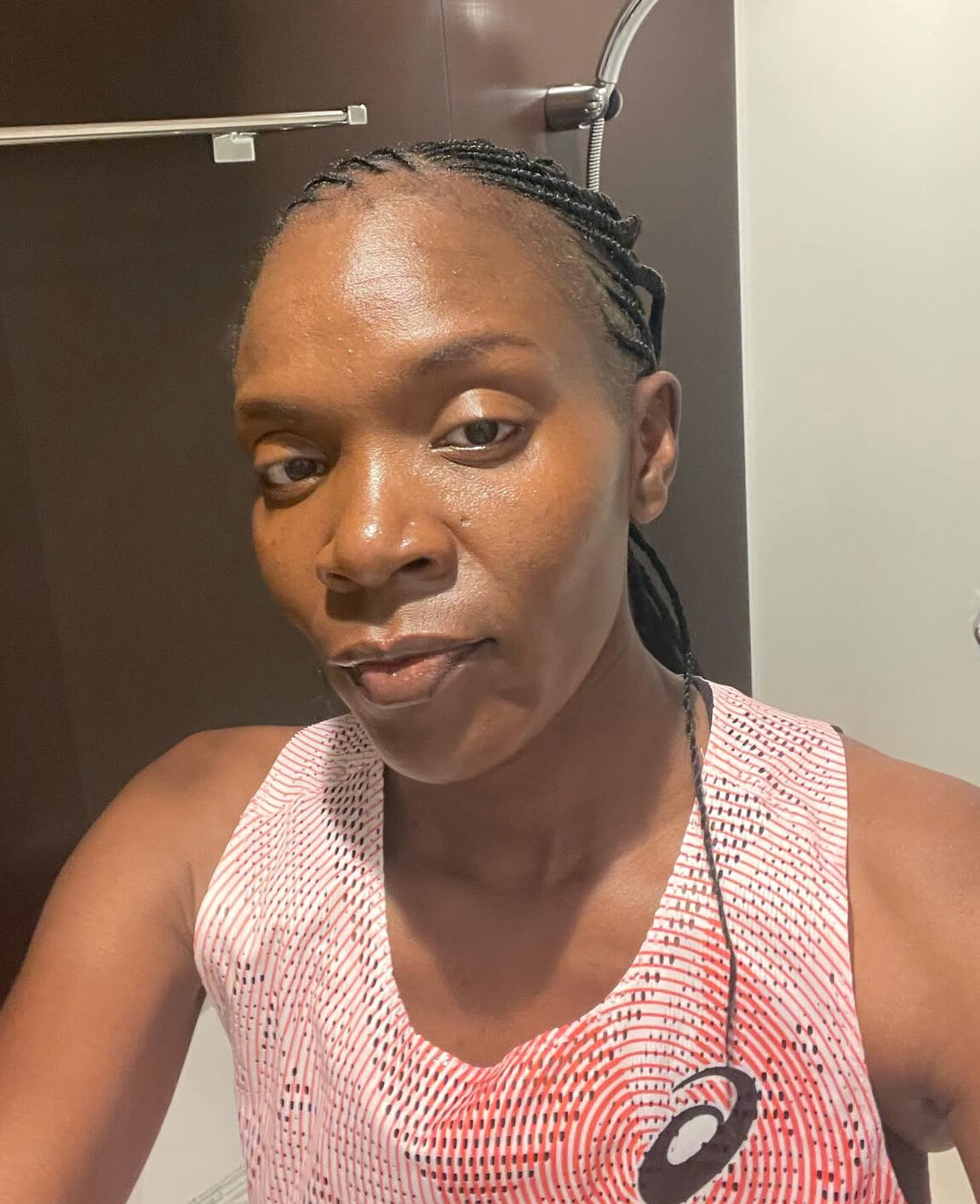
Susanna Sullivan has been one of America’s most consistent distance runners, clocking a 2:21:56 in Chicago and placing high in multiple national events. She’s known for her tactical strength and steady pacing.
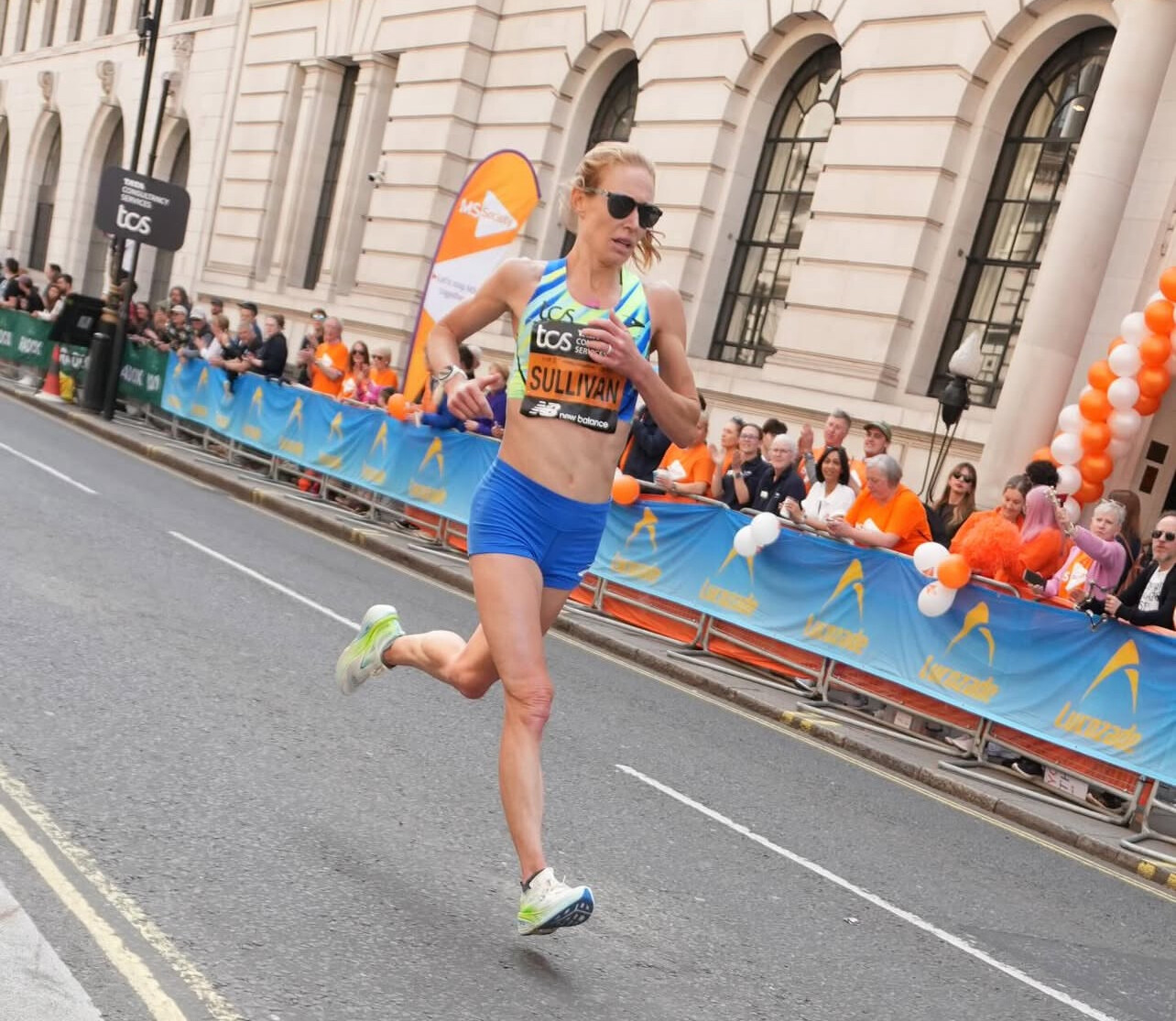
Erika Kemp, a former track standout, continues her successful transition to the marathon with a personal best 2:22:56 from Houston. Her rise in the U.S. distance scene adds fresh energy to the team.
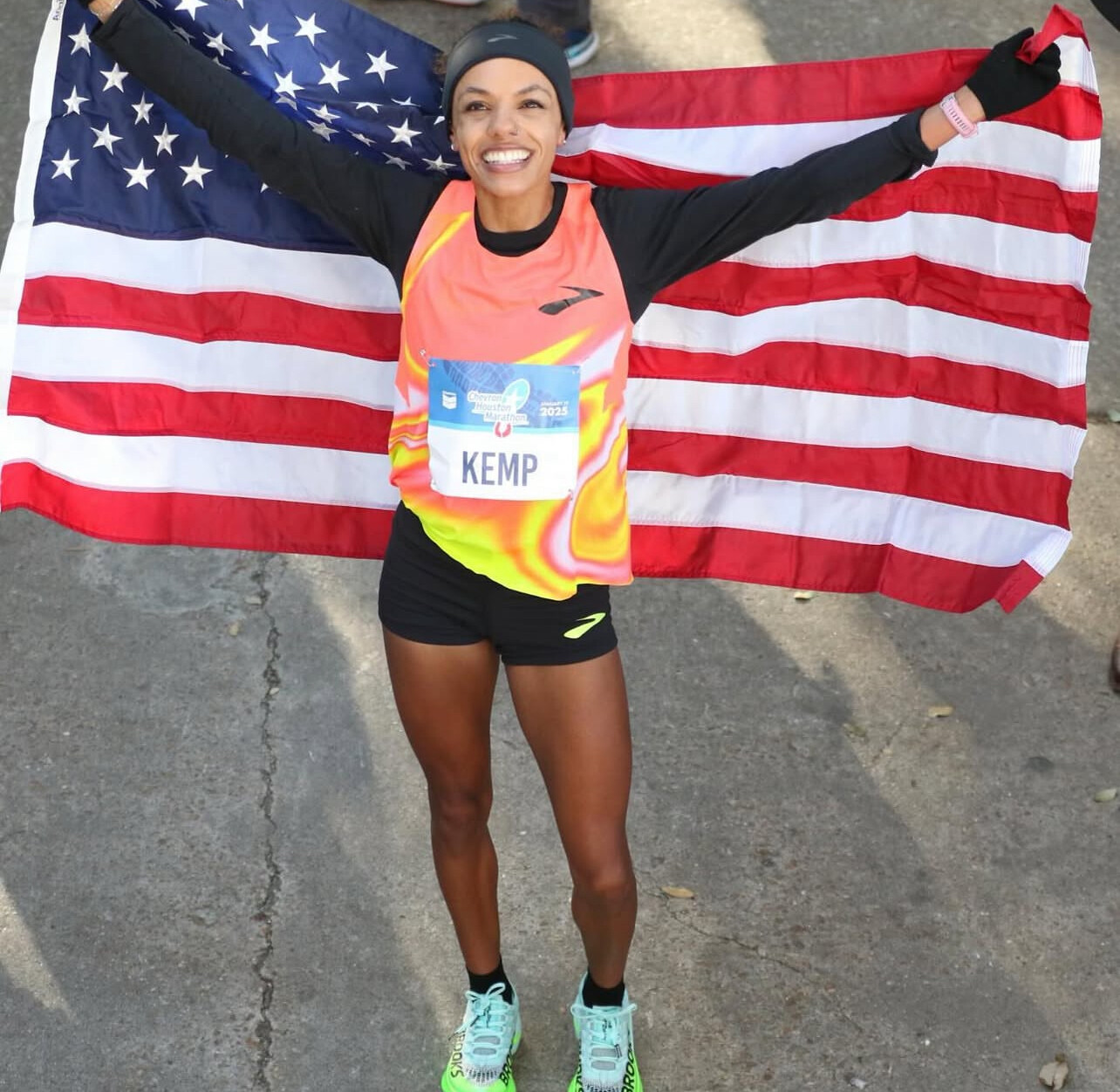
Marathon Schedule – World Championships, Tokyo 2025
• Women’s Marathon: Saturday, September 14 at 8:00 AM JST
• Men’s Marathon: Sunday, September 15 at 8:00 AM JST
The marathon course will take runners through central Tokyo, starting and finishing at the National Stadium. The route is expected to be spectator-friendly but physically demanding, with rising humidity levels adding to the challenge.
This will mark Tokyo’s second time hosting the World Championships (after 1991) and its first major global track event since the 2021 Olympic Games.
Spotlight on Clayton Young
Clayton Young continues to build momentum on the world stage. After placing 9th at the Paris Olympics, his 2:07:04 in Boston this spring confirmed his place among America’s elite. That time ranks as one of the fastest ever by a U.S. marathoner and reinforces his role as a leading medal hopeful.
In announcing his selection, Young wrote:
“I am honored… 101 days. Let the build begin.”
Now with major championship experience and peak form, Young will lead Team USA’s charge in Tokyo.
Why This Year Matters
• Historic Depth: For the first time, Team USA sends multiple sub-2:08 men and three sub-2:23 women to a World Championship marathon.
• Olympic Implications: Performances in Tokyo could shape strategies and selections for Los Angeles 2028.
• Global Showdown: With defending champions, Olympic medalists, and national record holders from around the world competing, the marathon fields will be among the strongest ever assembled.
Team USA’s marathon lineup for the 2025 World Championships reflects both strength and balance. With Clayton Young and Betsy Saina leading the charge, and a deep roster behind them, the Americans are ready to compete at the highest level.
As Tokyo prepares to welcome the world, this year’s marathon is more than a race — it’s a proving ground for the next generation of distance legends.
by Boris Baron
Login to leave a comment
American Stars Ready to Shine at the 2025 Boston Marathon
The 129th Boston Marathon, set for Monday, April 21, 2025, promises to be a historic showdown between international champions and a formidable field of elite American runners. With defending champions Hellen Obiri and Sisay Lemma returning to defend their titles, the depth of competition will be among the strongest in recent memory.
Elite American Men
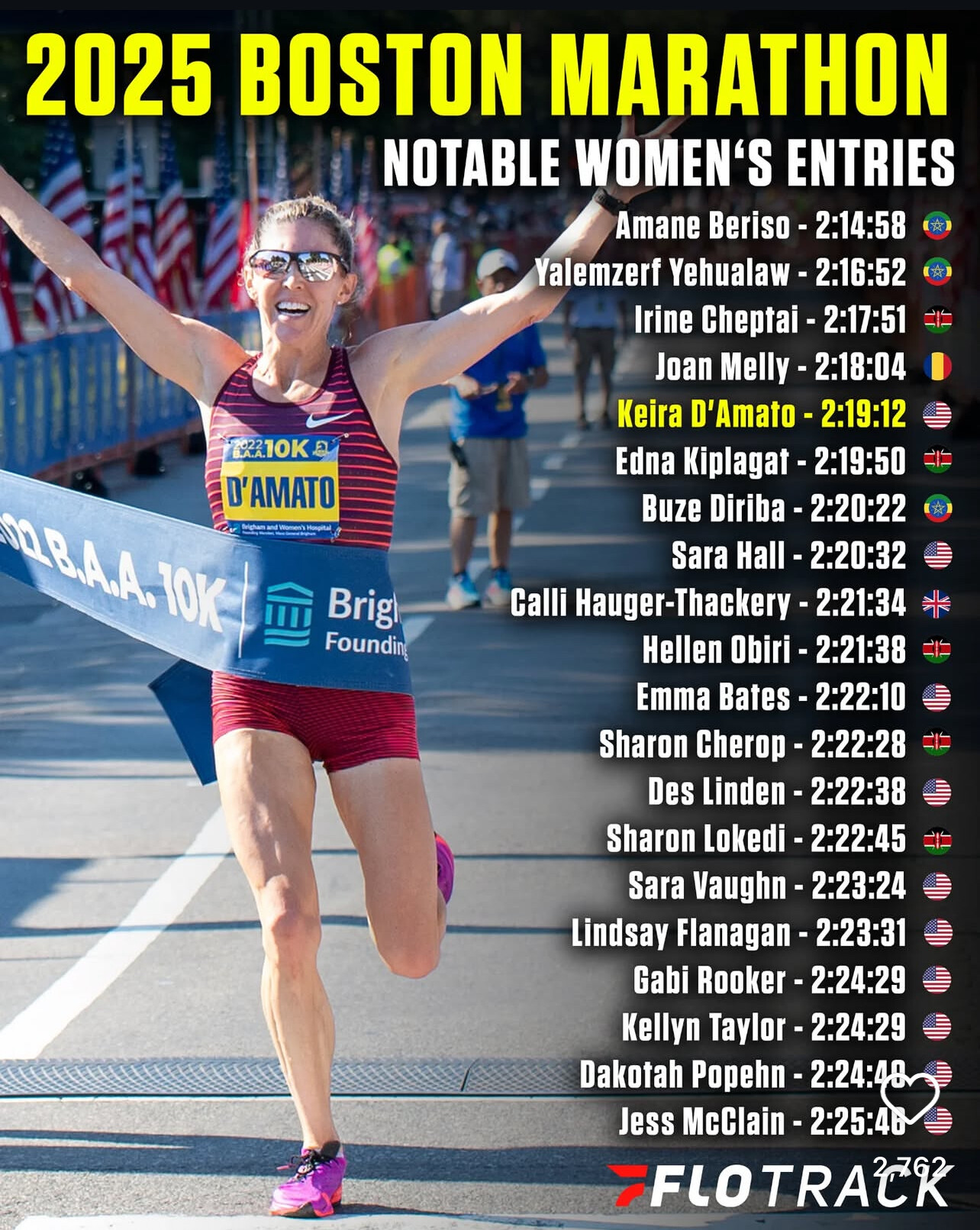
• Conner Mantz – PB: 2:07:47
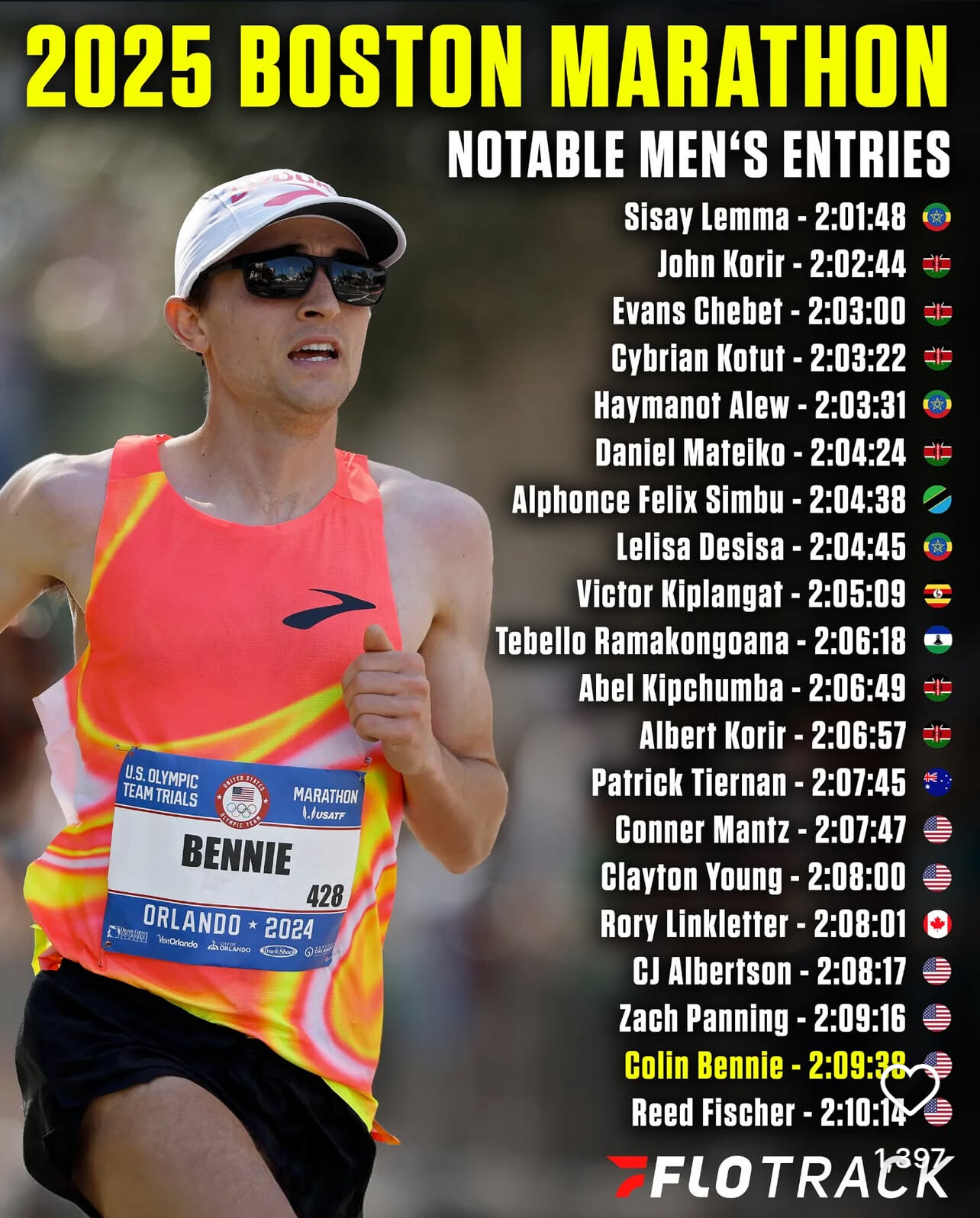
Mantz enters Boston as one of the top American hopes, fresh off an 8th-place finish at the Paris Olympics and 6th in New York City.
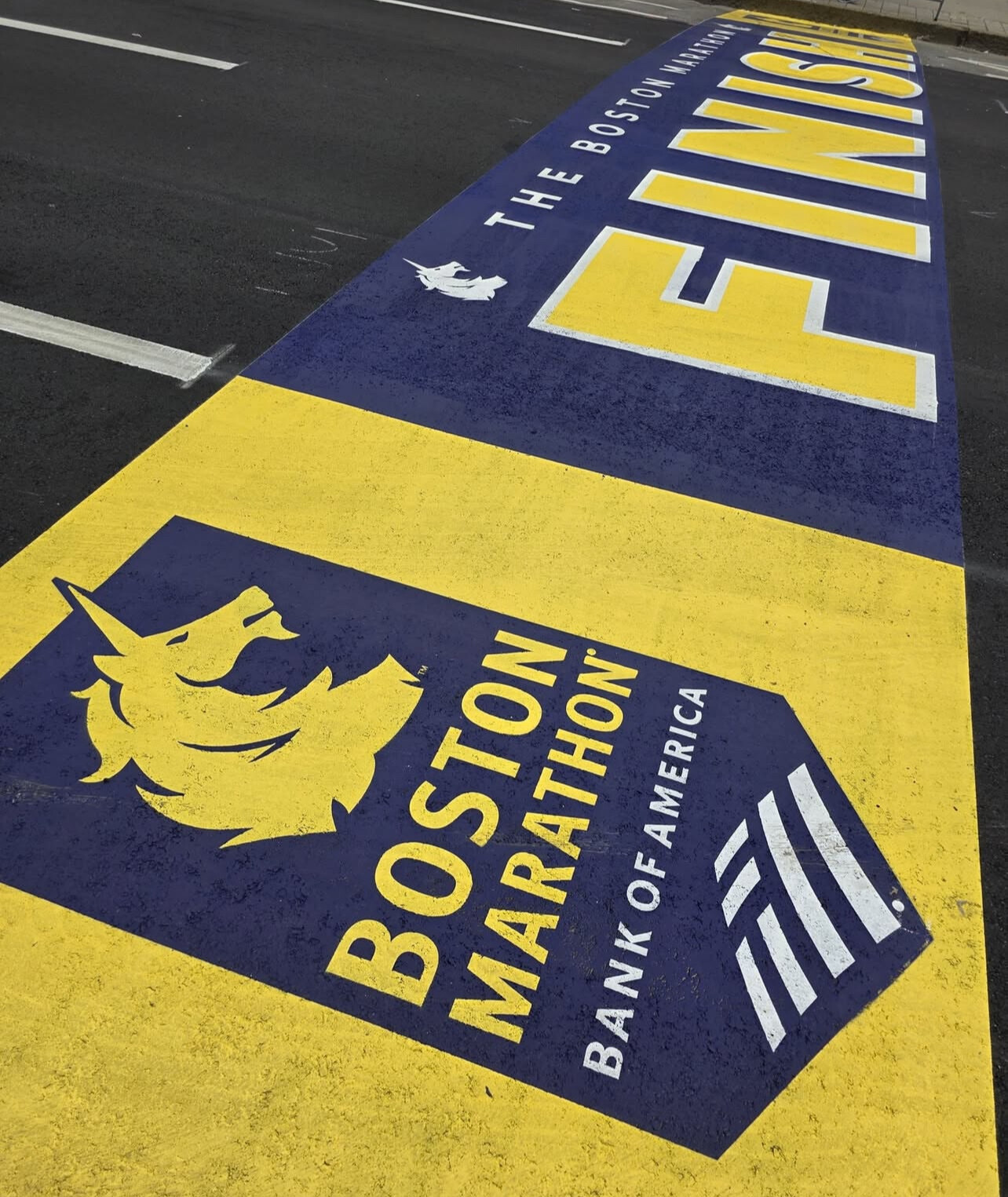
• Clayton Young – PB: 2:08:00
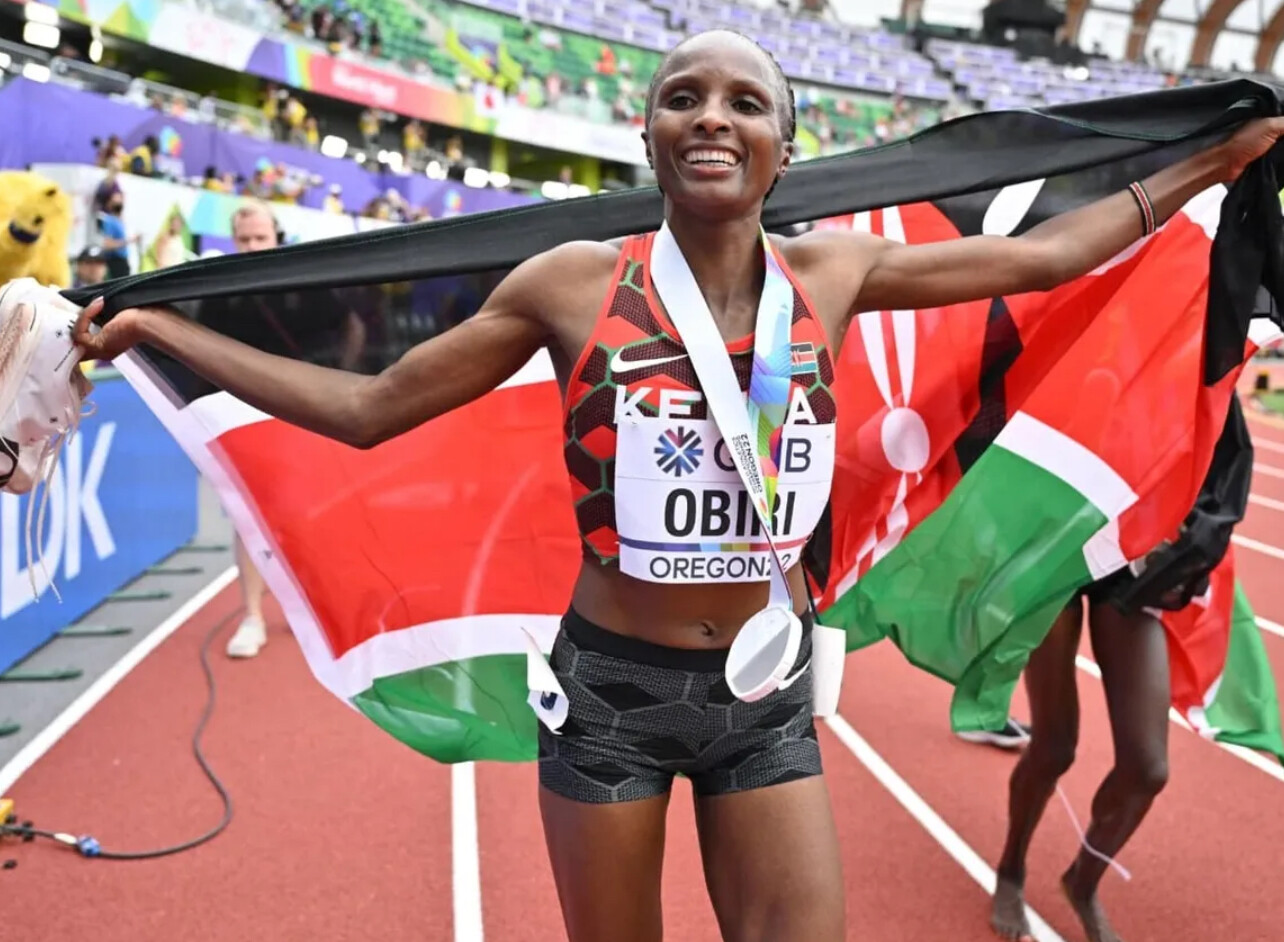
Training alongside Mantz, Young placed 9th in Paris and 7th in NYC, and continues to close the gap with the world’s best.
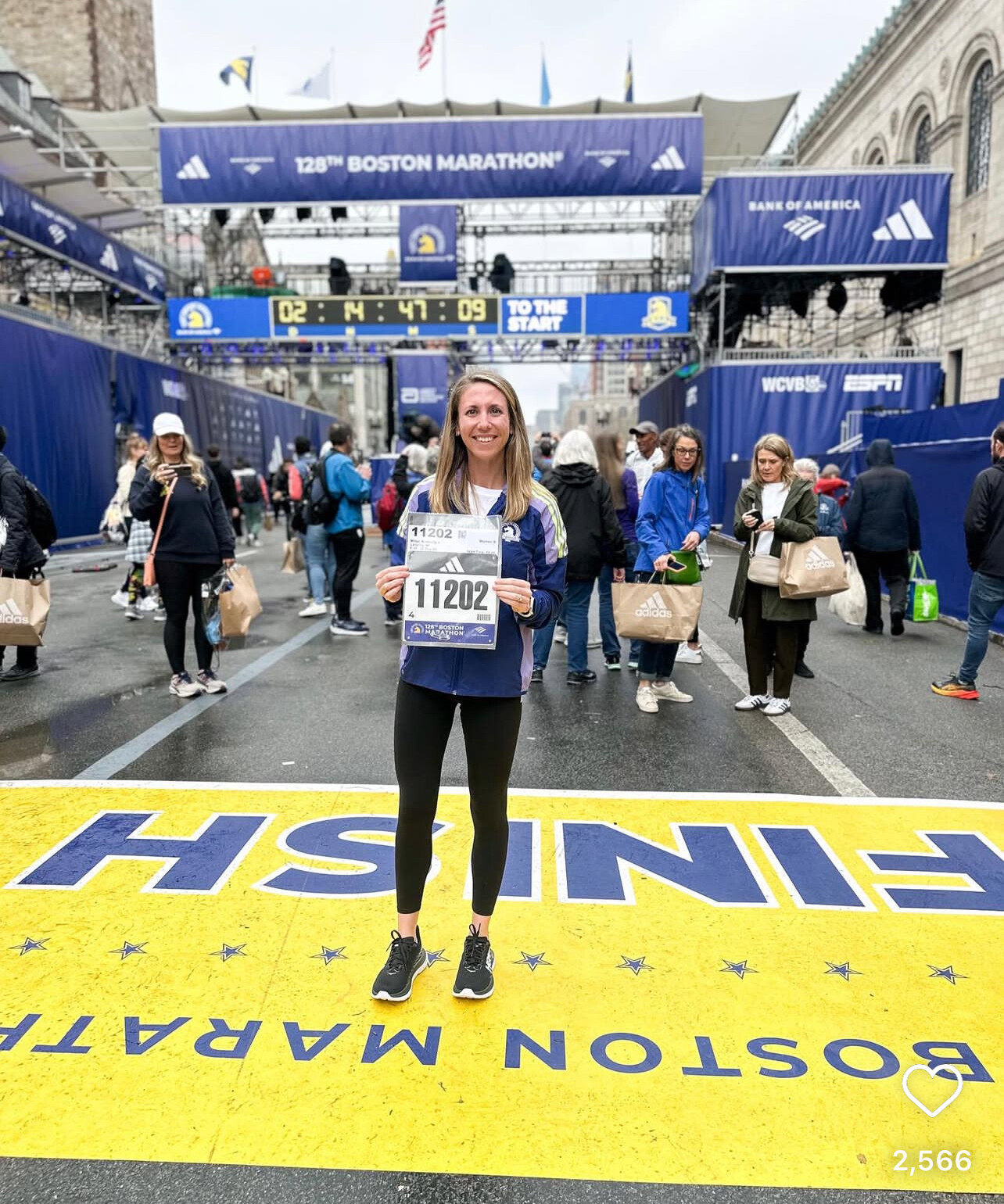
• CJ Albertson – PB: 2:08:17
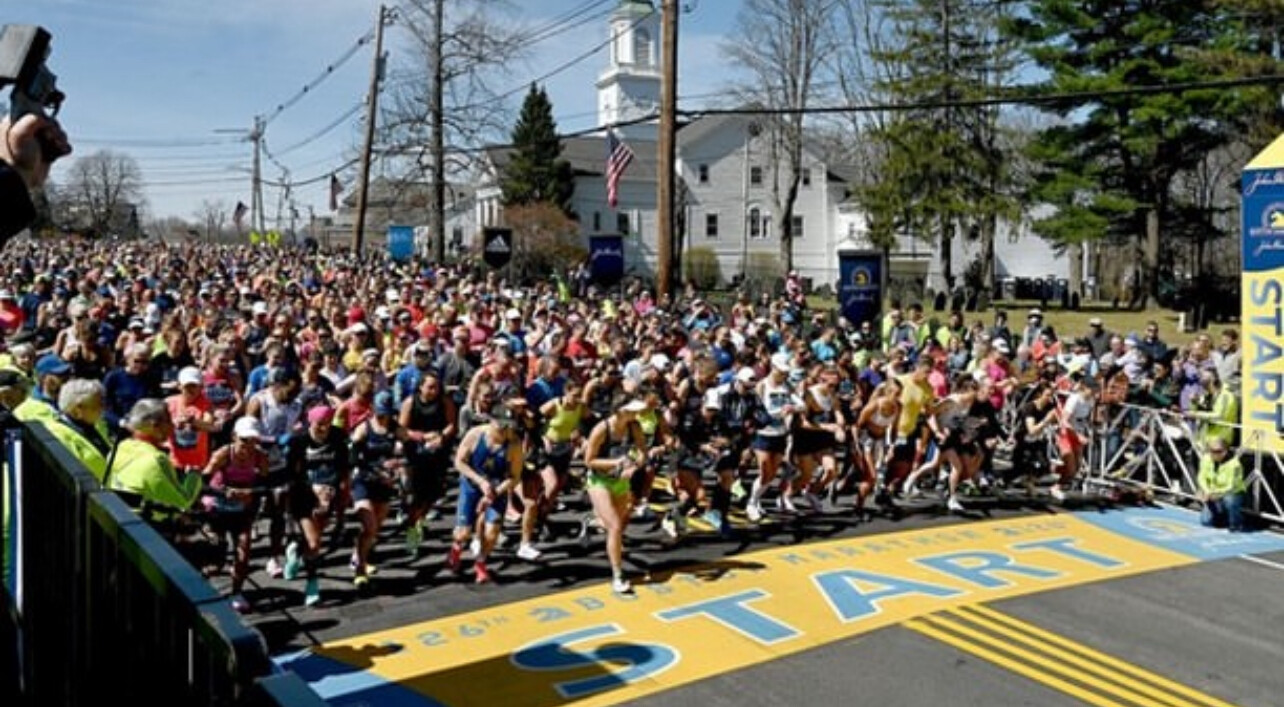
Known for his fearless tactics and high mileage, Albertson ran his personal best at the 2024 Chicago Marathon.
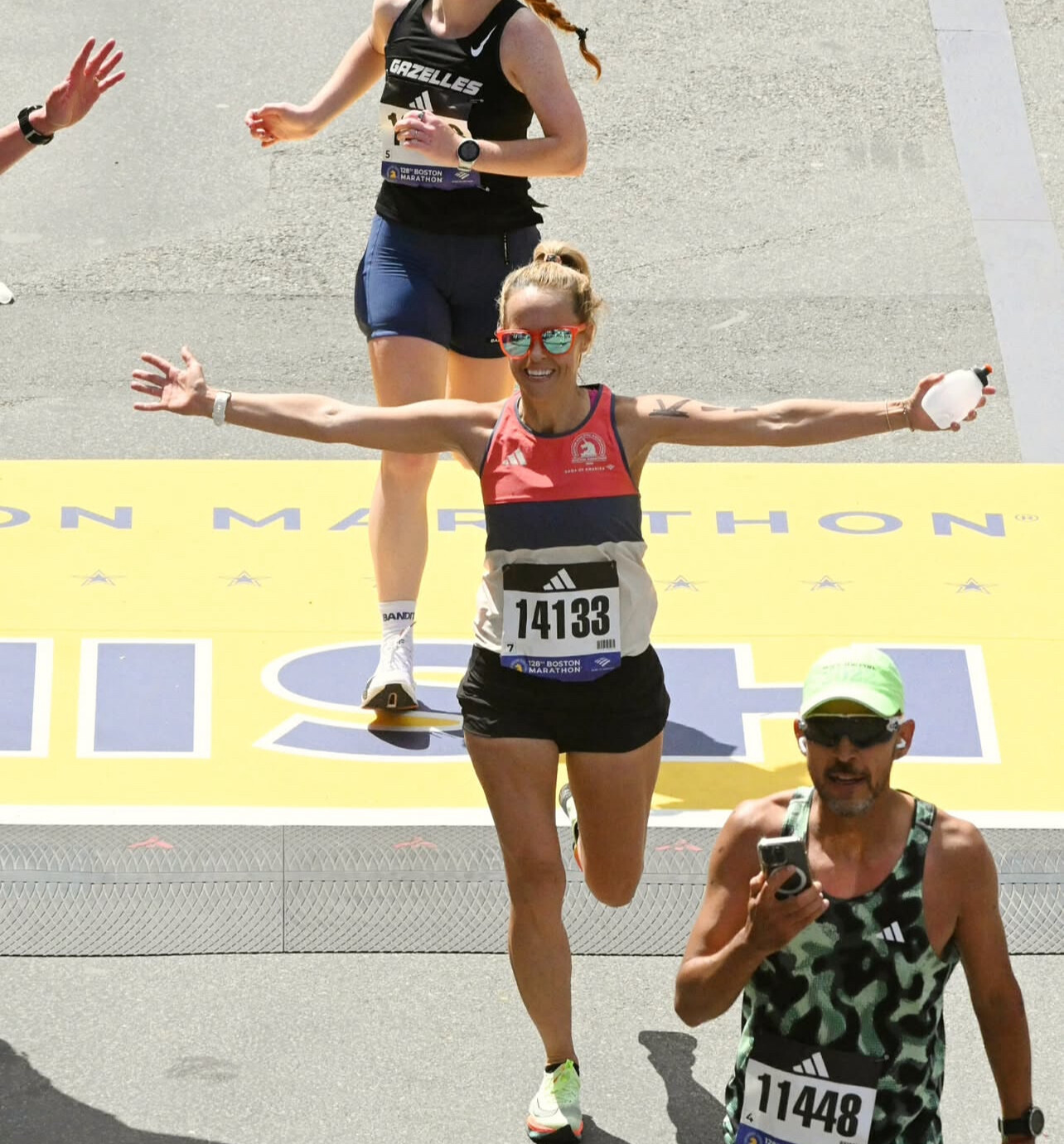
• Zach Panning – PB: 2:09:16
The 5th-place finisher at the U.S. Olympic Trials, Panning brings aggressive racing and consistent progress to Boston.
• Colin Bennie – PB: 2:09:38
The Massachusetts native and 2021 top American finisher returns with home course advantage and renewed focus.
Elite American Women
• Keira D’Amato – PB: 2:19:12
The former American record holder returns from injury with momentum and the experience to contend.
• Emma Bates – PB: 2:22:10
Bates was the top American at the 2024 Boston Marathon and continues to improve with every outing.
• Sara Hall – PB: 2:20:32
One of the most experienced American marathoners, Hall posted a 2:23:45 in Berlin last fall.
• Desiree Linden – PB: 2:22:38
The 2018 Boston champion returns for her 12th Boston start, a fan favorite with unmatched experience.
• Dakotah Popehn – PB: 2:24:40
Popehn was the top American finisher at the Paris Olympics and brings strong international credentials.
• Jess McClain – PB: 2:25:46
McClain placed fourth at the U.S. Trials and will be making her Boston debut as a rising star.
International Elite Field
Men’s Division:
• Sisay Lemma (ETH) – PB: 2:01:48
The defending champion and one of the fastest marathoners in history, Lemma seeks to repeat in Boston.
• John Korir (KEN) – PB: 2:02:44
The 2024 Chicago Marathon champion is a serious threat in any race he enters.
• Evans Chebet (KEN) – PB: 2:03:00
Boston champion in 2022 and 2023, Chebet looks to reclaim his title and join the three-time winners’ club.
Women’s Division:
• Amane Beriso (ETH) – PB: 2:14:58
The fifth-fastest woman in history is making her Boston debut.
• Yalemzerf Yehualaw (ETH) – PB: 2:16:52
Still just 25, Yehualaw adds tremendous firepower to the field.
• Hellen Obiri (KEN) – PB: 2:21:38
The two-time defending champion is chasing history with a potential third straight victory on Boylston Street.
Race Day Details
• Date: Monday, April 21, 2025
• Start Times:
• Wheelchair Division – 9:02 AM
• Handcycle & Duo Participants – 9:05 AM
• Elite Women – 9:32 AM
• Elite Men & Wave 1 – 10:00 AM
• Wave 2 – 10:25 AM
• Wave 3 – 10:50 AM
• Wave 4 – 11:15 AM
• Tracking & Coverage: Available through the B.A.A. Racing App with live updates, leaderboards, and interactive course maps.
“I’ve run over a thousand races in my life, and nothing compares to Boston,” says My Best Runs editor Bob Anderson. “When I ran 3:32:17 here at age 65, I felt like a rock star the entire way. The crowd was unbelievable—cheering, encouraging, lifting every runner forward. Boston isn’t just about the elites—it’s about the thousands of others out there chasing their dreams on the same course.”
With a deep American field and some of the fastest runners on the planet, the 2025 Boston Marathon is shaping up to be one of the most competitive in history. Whether it’s a breakout run or a hard-fought defense, fans can expect something unforgettable from this year’s race.
by Boris Baron
Login to leave a comment
Boston Marathon
Among the nation’s oldest athletic clubs, the B.A.A. was established in 1887, and, in 1896, more than half of the U.S. Olympic Team at the first modern games was composed of B.A.A. club members. The Olympic Games provided the inspiration for the first Boston Marathon, which culminated the B.A.A. Games on April 19, 1897. John J. McDermott emerged from a...
more...Boston Marathon 2025 Race Preview and Predictions - Can one of the Americans pull off an upset?
The 129th Boston Marathon is set for Monday, April 21, 2025 in just over a month, once again taking place on Patriots’ Day in Massachusetts. This year’s edition marks the first under the sponsorship of Bank of America, signaling a new chapter for the world’s oldest annual marathon. With an elite field packed with world-class runners and unpredictable spring weather, the race promises another thrilling showdown from Hopkinton to Boston.
Race Details & Course Overview
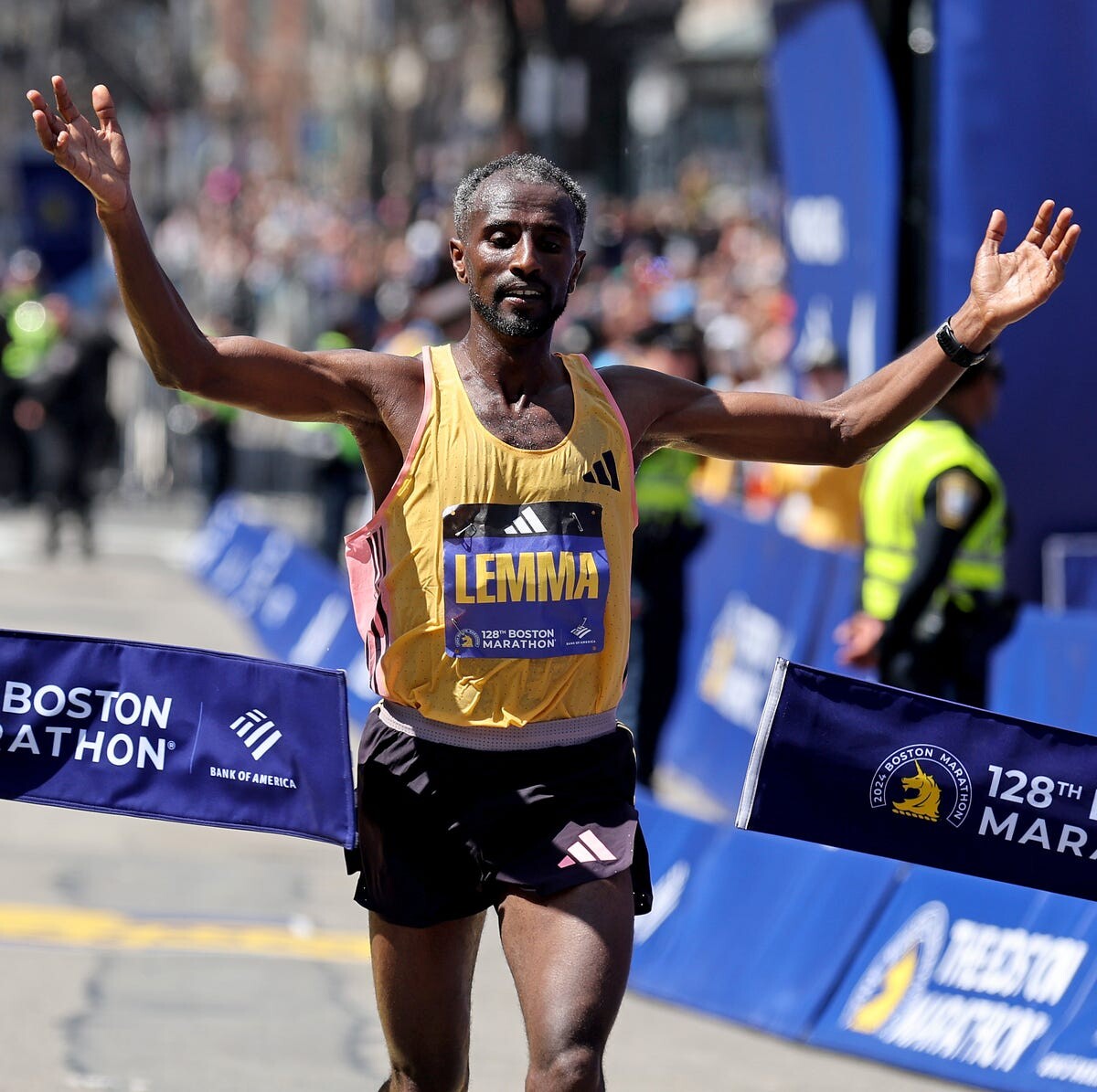
The Boston Marathon’s iconic point-to-point course spans 26.2 miles, starting in Hopkinton and ending on Boylston Street in Boston’s Copley Square. Runners will navigate rolling hills, including the challenging Newton Hills and the infamous Heartbreak Hill at mile 21. The course favors experienced runners who can manage both the early downhill sections and the later climbs.
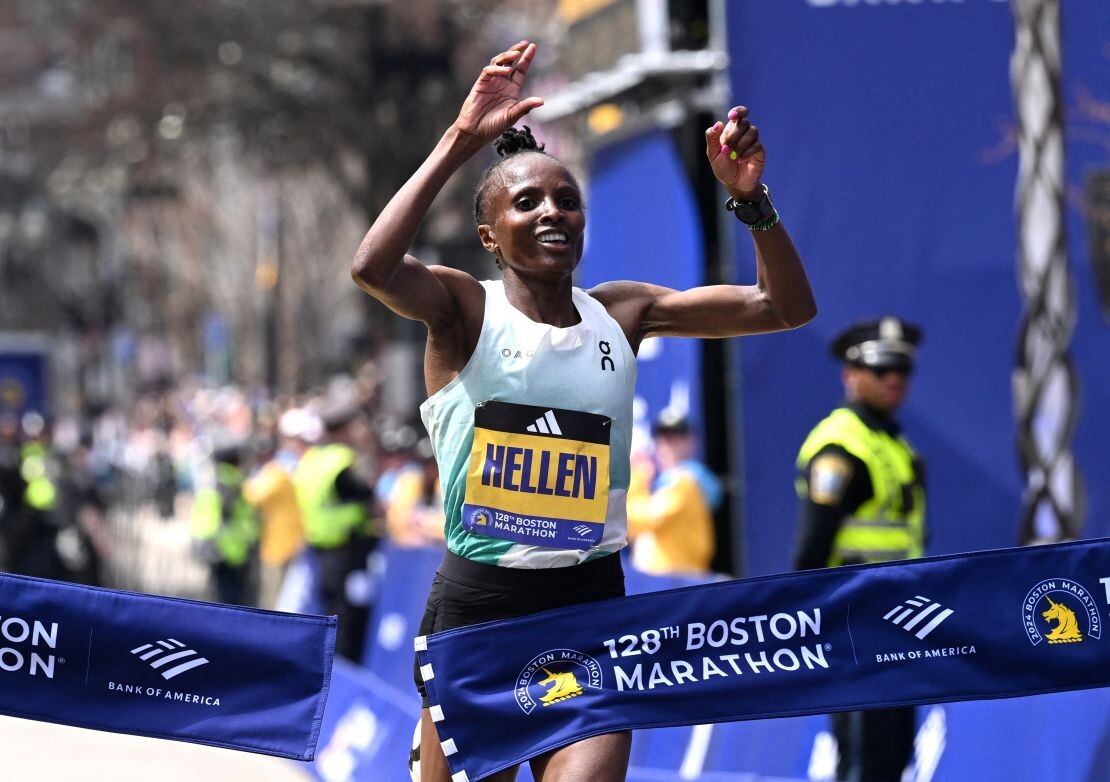
Weather will be a key factor, as New England’s spring climate is unpredictable. Ideal conditions for runners would be cool temperatures around 45–50°F with overcast skies and a tailwind, but past races have seen everything from heatwaves to freezing rain. Early forecasts suggest favorable conditions, but as always, runners must be prepared for anything.
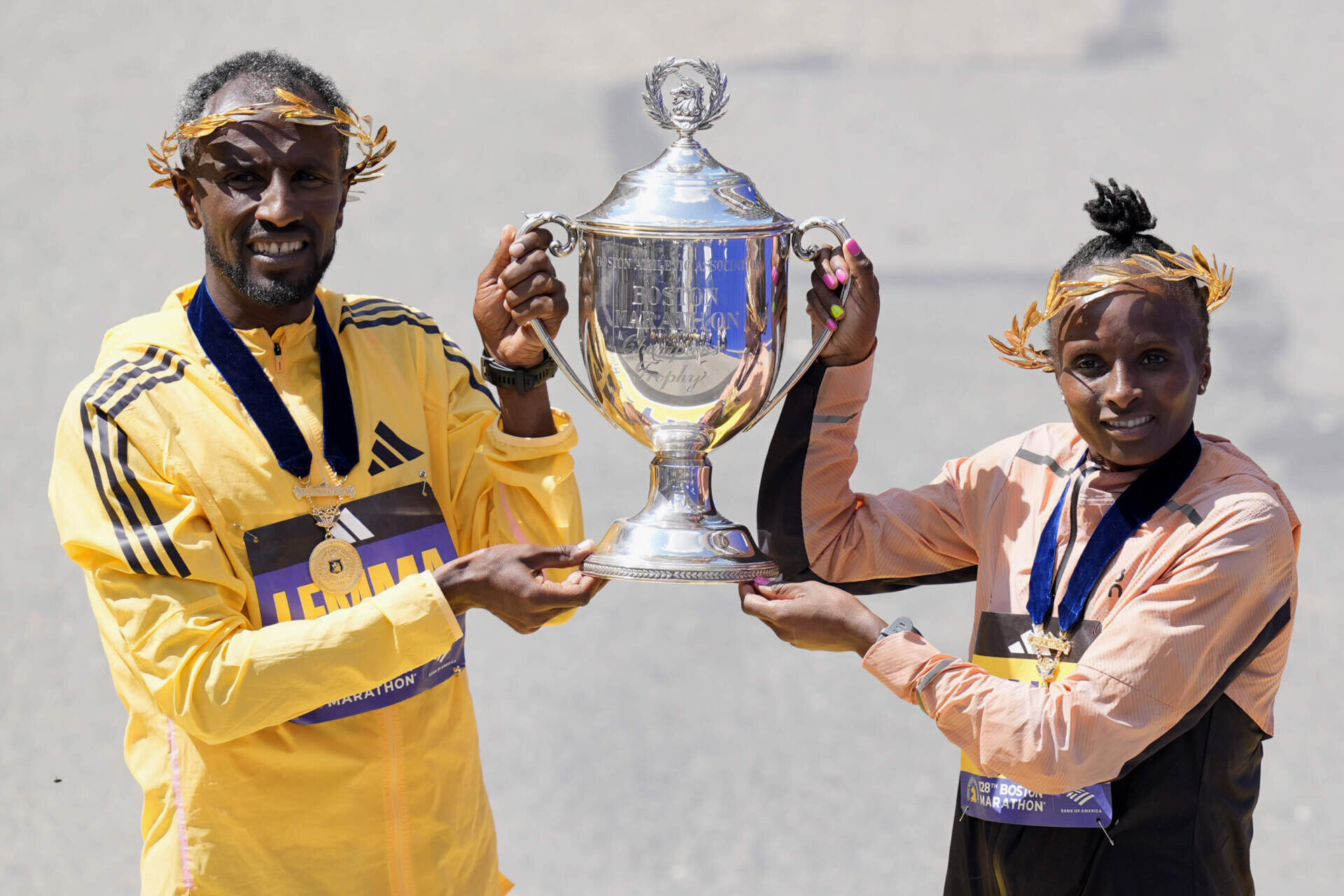
Men’s Elite Field
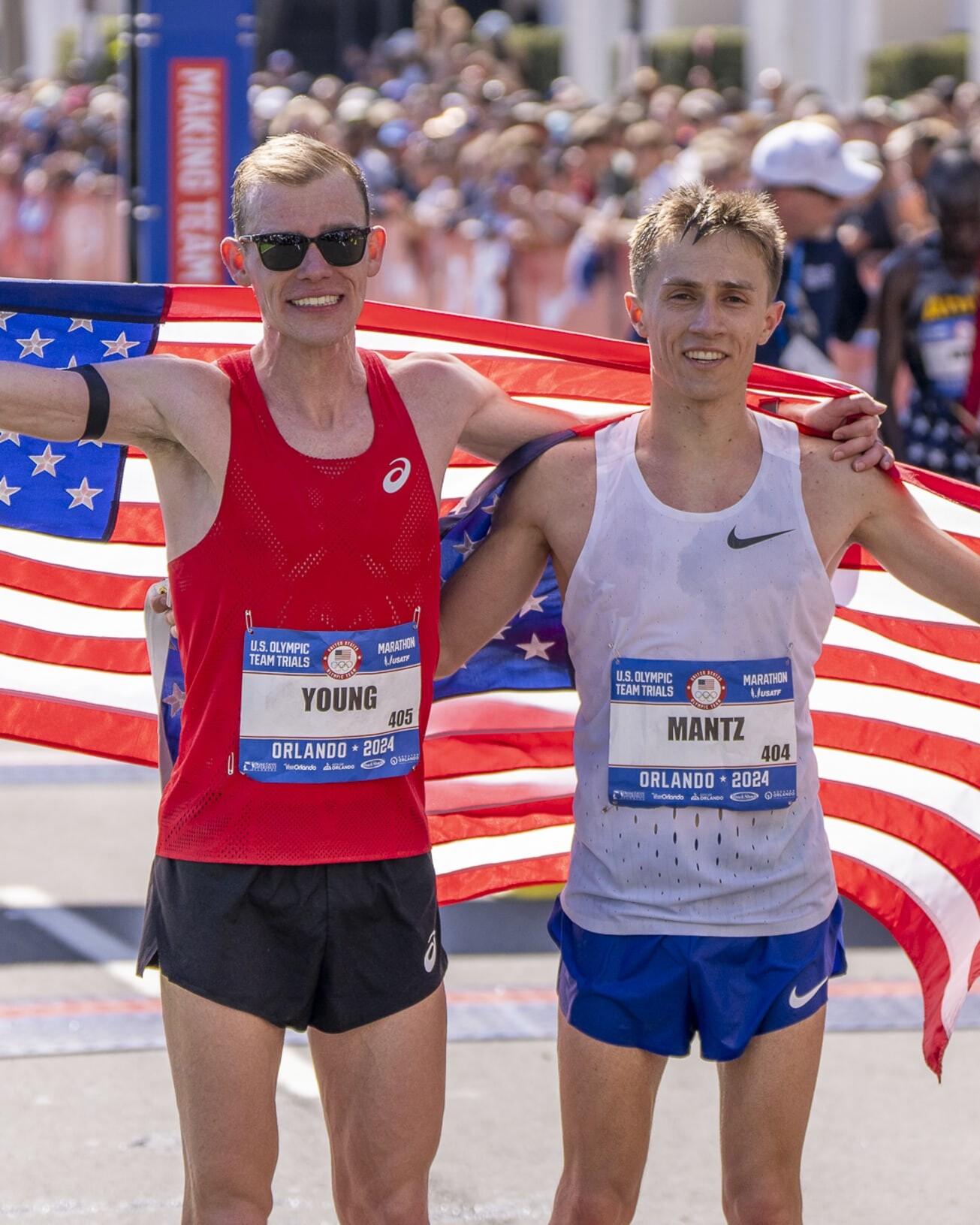
The men’s race features defending champion Sisay Lemma, who is aiming to retain his title after a dominant performance last year. Evans Chebet, the 2022 and 2023 champion, returns hungry to reclaim the crown. John Korir, fresh off a victory at the Chicago Marathon, brings world-class speed that could shake up the competition.
A strong American contingent is headlined by Conner Mantz and Clayton Young, both of whom finished in the top ten at the Olympic marathon. Mantz, in particular, has shown outstanding form, recently breaking the American half marathon record. CJ Albertson, a familiar name in Boston for his bold racing tactics, will also be in the mix, potentially pushing the early pace.
The race is expected to be tactical, with the Newton Hills playing a decisive role. If the pack remains tight through Heartbreak Hill, it could come down to a late-race battle along Boylston Street.
Women’s Elite Field
Hellen Obiri returns seeking a historic third consecutive Boston Marathon title, a feat not accomplished in over two decades. Known for her lethal finishing speed, Obiri has mastered the Boston course and will be the woman to beat.
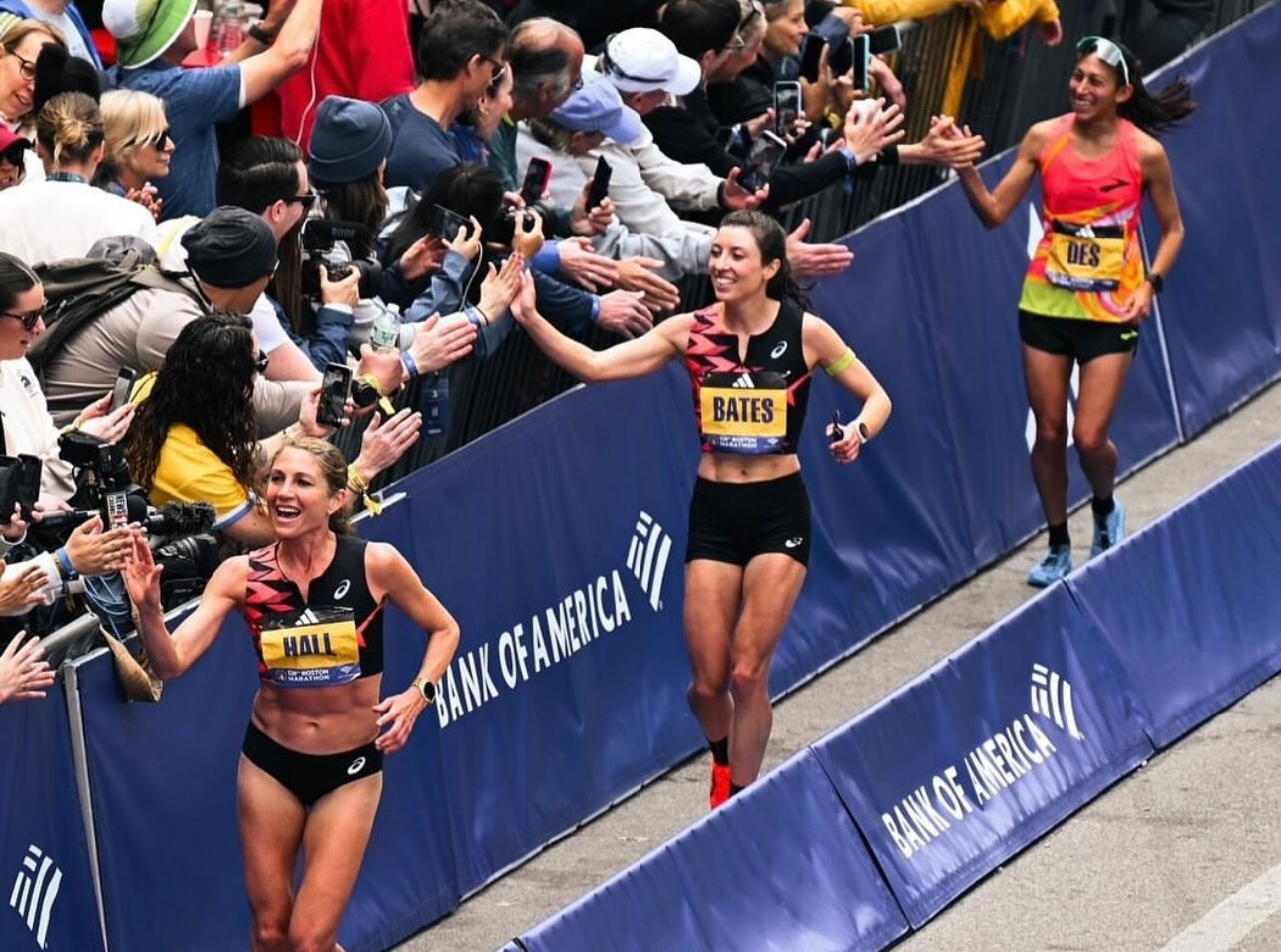
Challenging her will be Amane Beriso, the reigning world marathon champion, and Yalemzerf Yehualaw, a former London Marathon winner with sub-2:17 speed. Sharon Lokedi, last year’s runner-up, will also be in contention, having nearly edged out Obiri in a dramatic finish.
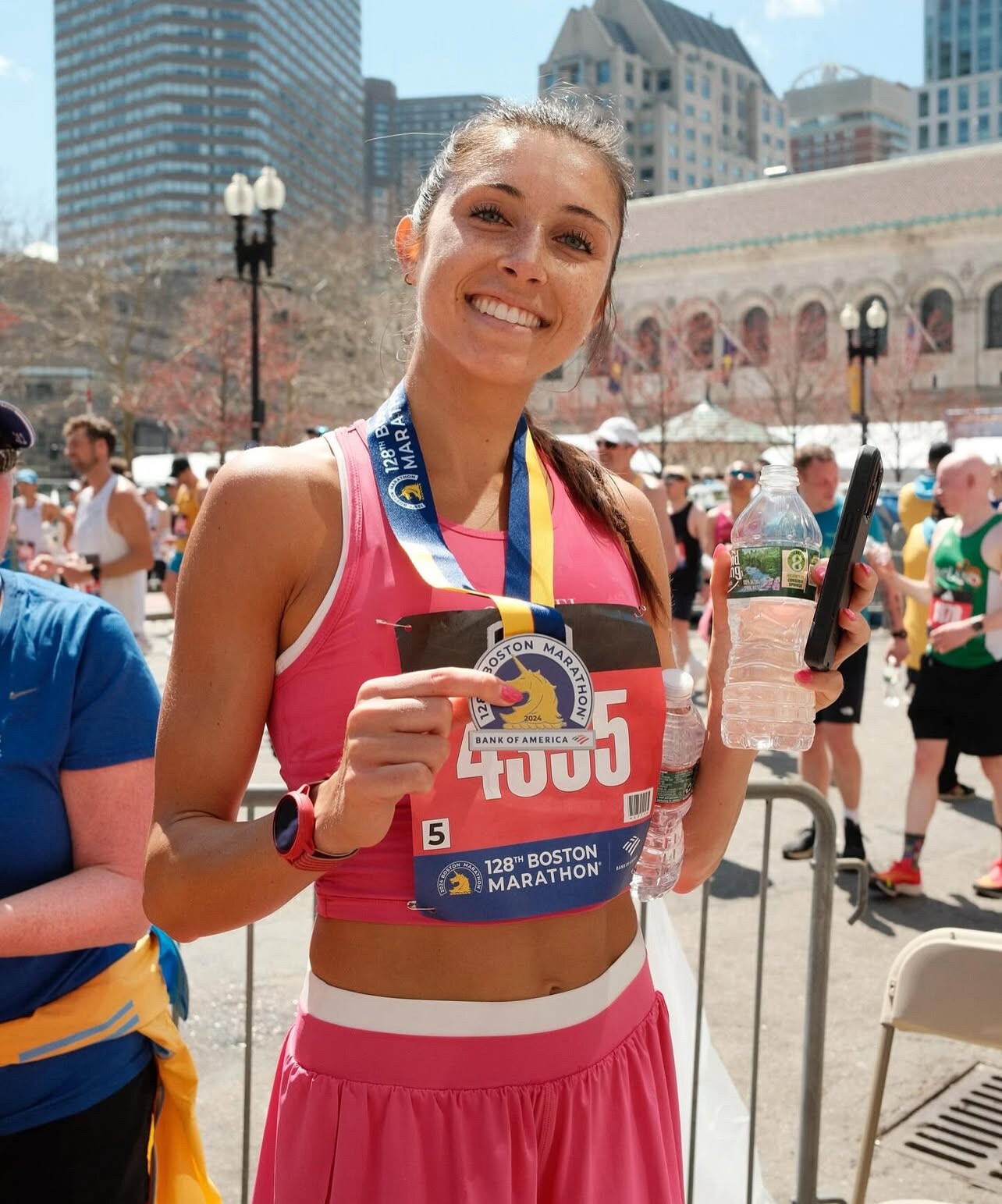
The American field is deep, with contenders including Sara Hall, Keira D’Amato, Emma Bates, and former champion Des Linden. While breaking into the top three will be a challenge, a top-five finish is within reach for the top U.S. women.
Predictions & Final Thoughts
The men’s race is expected to be a battle between the experienced champions and rising American stars. If the race is fast from the start, runners like Korir and Lemma may have the edge. However, if it becomes a strategic affair, Mantz and Young could position themselves for a breakthrough performance.
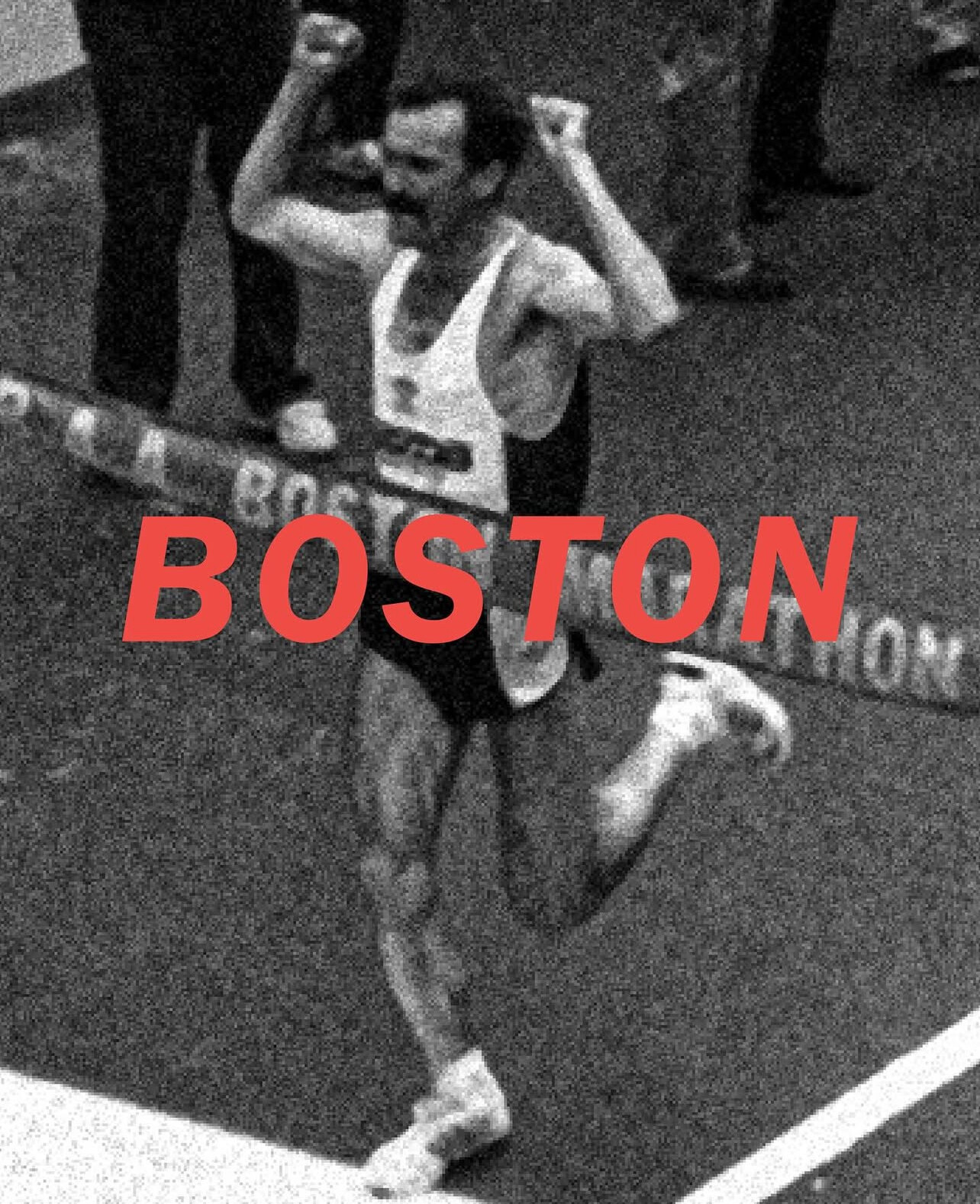
On the women’s side, Obiri’s experience and closing speed make her the favorite, but the depth of the field suggests another closely contested race. If Beriso or Yehualaw can push the pace early, it could disrupt Obiri’s plans for a late kick.
With a historic Patriots’ Day celebration and an elite field ready to compete, the 2025 Boston Marathon is shaping up to be an unforgettable race. Whether defending champions hold their ground or new winners emerge, all eyes will be on Boylston Street this April.
by Boris Baron
Login to leave a comment
Boston Marathon
Among the nation’s oldest athletic clubs, the B.A.A. was established in 1887, and, in 1896, more than half of the U.S. Olympic Team at the first modern games was composed of B.A.A. club members. The Olympic Games provided the inspiration for the first Boston Marathon, which culminated the B.A.A. Games on April 19, 1897. John J. McDermott emerged from a...
more...Hellen Obiri of Kenya will return to the Boston Marathon in April and attempt to win for the third time in a row.
In the race’s history, only four other women (Bobbi Gibb, Sara Mae Berman, Uta Pippig, and Fatuma Roba) have won three times a row, according to race organizers, who released the elite field today. The race is set for April 21.
Last year, Obiri broke the race open by covering the 24th mile in 4:41 and won in 2:22:37, 8 seconds ahead of her countrywoman Sharon Lokedi, who will also return to Boston.
Obiri, 35, trains in Boulder, Colorado, with the On Athletics Club, and she has been on the podium in five of the six marathons she has run. In addition to her two Boston titles, she won the New York City Marathon in 2023, finished second there in 2024, and won the Olympic bronze medal in Paris. (The only blemish on her marathon record was her sixth-place finish at her debut in New York in 2022.)
Obiri and Lokedi will be challenged by Amane Beriso and Yalemzerf Yehualaw of Ethiopia. Beriso has a personal best of 2:14:58 from the Valencia Marathon in 2022. She’s currently the fifth-fastest woman of all time.
Sisay Lemma of Ethiopia, the defending men’s champion, will also return to Boston. Lemma’s 2:01:48 from Valencia in 2023 makes him the fourth-fastest man in history.
Last year in Boston, Lemma got out to a large early lead, and the course record seemed almost certain to fall. But by the Newton hills, Lemma was feeling his hot early pace and slowed considerably. He held on to win in 2:06:17.
His challengers at the 2025 race will include Evans Chebet of Kenya, who has won the race twice (2022 and 2023) and was third in 2024. John Korir of Kenya, who won the 2024 Chicago Marathon in a fast 2:02:44, will also be back to race in Boston. He was fourth last year.
A Strong American Field
Many top Americans are entered into Boston. On the women’s side, they include Keira D’Amato, who briefly held the American record of 2:19:12 in 2022, and Sara Hall, who had a strong race at last fall’s Berlin Marathon, where she ran 2:23:45. She’ll turn 42 the week before the race.
D’Amato told Runner’s World in a text message that she is recovering from the injury in her left foot—stress reactions in her calcaneus and talus—that caused her to drop out of Chicago. “Hoping all the cross training has made me Boston Strong,” she wrote. “I’m building up conservatively to have a killer 2025.”
Olympians Dakotah Popehn and Des Lindenwill run (Linden for the 12th time), as will Emma Bates, the top American at Boston last year, Olympic Marathon Trials fourth-place finisher Jess McClain, and notables Sara Vaughn, Kellyn Taylor, and Lindsay Flanagan.
On the men’s side, Olympians and training partners Conner Mantz and Clayton Young, who finished eighth and ninth at the Games, respectively, will run Boston. They’ll be joined by CJ Albertson, who runs several fast marathons each year (five in 2024, including his PR of 2:08:17 in Chicago) and Zach Panning, who was fifth at the Olympic Marathon Trials.
by Runner’s World
Login to leave a comment
Boston Marathon
Among the nation’s oldest athletic clubs, the B.A.A. was established in 1887, and, in 1896, more than half of the U.S. Olympic Team at the first modern games was composed of B.A.A. club members. The Olympic Games provided the inspiration for the first Boston Marathon, which culminated the B.A.A. Games on April 19, 1897. John J. McDermott emerged from a...
more...California International Marathon is this weekend and defending champion CJ Albertson and Calli Hauger-Thackery headline the elite field
The 41st annual California International Marathon is this Sunday, Dec. 8 bringing some 10,000 runners and spectators to Folsom and the Sacramento region. Along with the many participants comes a number of road closures the day of the event.
The marathon begins at the intersection of Folsom Auburn Road and Folsom Lake Crossing at 7 a.m.The course continues through Orangevale, Citrus Heights, Fair Oaks, Carmichael, and Sacramento, and concludes at the State Capitol. Road closures include Folsom-Auburn Road from Folsom Dam Road to Greenback Lane, Folsom Lake Crossing Road from East Natoma Street to Folsom-Auburn Road, and Oak Avenue Parkway from Folsom-Auburn Road to Santa Juanita Avenue. Closures begin at 3 a.m. and roads are planned to reopen at 10 a.m. Detours will be clearly marked.
The CIM was founded in 1983 by the Sacramento Running Association, a 501(c)(3) nonprofit organization. The event brings an estimated 10 million dollar to the Sacramento County economy each year.The event is certified and sanctioned by USATF and is a Boston Marathon and U.S. Olympic Trials Marathon qualifier. Learn more at runsra.org. For a complete listing of road closures, schedules, and courses, visit the CIM website or see a summary at the conclusion of this article.
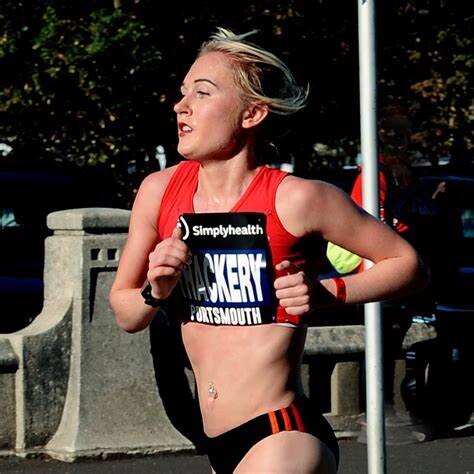
With good weather in the forecast, participants and organizers are excited about this year’s event and according to the Sacramento Running Association the event will feature 2024 Paris Olympian Calli Hauger-Thackery and defending 2023 CIM champion CJ Albertson, alongside a mix of returning veterans and first-time participants, setting the stage for potentially record-breaking performances.
The elite men’s and women’s fields will compete for a combined $100,000 prize purse, with additional bonuses for breaking course records. The current records stand at 2:10:27 for men, set in 1993 by Jerry Lawson, and 2:26:02 for women, set in 2022 by Paige (Stoner) Wood.
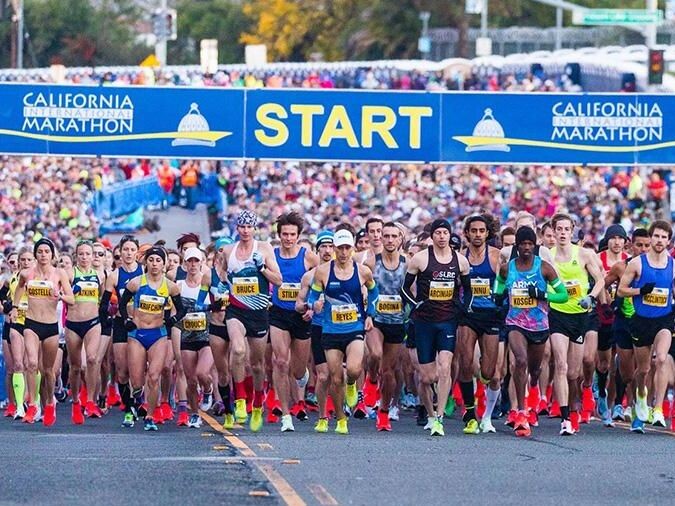
Hauger-Thackery, representing Great Britain at the 2024 Paris Olympics, holds the fastest personal best in the women’s field—2:21:24, achieved at the 2024 Berlin Marathon earlier this fall. She will make her CIM debut, joining her husband, 2:12 marathoner Nick Hauger, who is also competing.
“I’m excited to do this race for many reasons,” Hauger-Thackery said. “The main one being that my husband has had only fond experiences here over the past two years. I’m also excited because my dad raced CIM in the ’90s, and California is my favorite place! CIM has been on my radar for quite some time now.”
Hauger-Thackery will face stiff competition from four other women who have run sub-2:30 marathons: Laura Thweatt of Superior, Colo., with a personal best of 2:25:38; Jackie Gaughan of Boston, 2:27:08; Stephanie Bruce of Flagstaff, Ariz., 2:27:47; and Allie Kieffer of Austin, 2:28:12, who was the 2023 CIM runner-up.
Bruce returns to CIM with a strong record, having placed second in both the 2016 (2:32:36) and 2018 (2:29:21) editions. Since then, she has achieved milestones such as running her personal best of 2:27:47 at the 2019 Chicago Marathon and placing sixth at the 2020 U.S. Marathon Olympic Trials.
“Returning to CIM feels like an awesome homecoming because it was the first marathon I ran postpartum with my two boys in 2016,” Bruce said. “Now, eight years later, I’m coming back after giving birth to my third baby. I love the city, the energy, and the people who make this race so special.”
The men’s field includes three notable returners: defending champion CJ Albertson (Fresno, Calif.), 2023 runner-up Milton Rotich, and 2019 champion Elisha Barno. Joining them is CIM newcomer Tsegay Tuemay Weldlibanos, a 2:09:07 marathoner currently training in Flagstaff, Ariz., who is expected to push the pace.
“To race at CIM is very special for me,” Weldlibanos said. “Many of my teammates have found success here, and I hope to do the same. I want to make my family, team, and coach proud.”
Albertson has enjoyed a standout year, placing fifth at the 2024 U.S. Olympic Marathon Trials (2:10:07), seventh at the Boston Marathon (2:09:53) and Chicago Marathon (2:08:17), and tenth at the New York City Marathon (2:10:57). Another CIM victory will likely require a course record performance.
Barno, who won the 2019 CIM, has a personal best of 2:09:14. Rotich, last year’s runner-up, boasts a 2:08:55 personal best. Both are strong contenders to challenge Albertson and Weldlibanos for the win and the 2:10:27 course record.
“We’re thrilled about the 2024 elite field at CIM,” said Scott Abbott, executive director of the Sacramento Running Association. “This year has a unique homecoming feel, with so many ‘CIM alumni’ returning. It’s further evidence that CIM is a favorite among elite runners. We expect a strategic race between these battle-tested veterans, and we hope to see both course records fall.”
The Sacramento Running Association, a nonprofit organization, is dedicated to encouraging people of all ages and abilities to run. The SRA focuses on developing quality running events that appeal to a wide range of participants.
by Alan Inderkane
Login to leave a comment
California International Marathon
The California International Marathon (CIM) is a marathon organized by runners, for runners! CIM was founded in 1983 by the Sacramento Running Association (SRA), a 501(c)(3) non-profit organization. The SRA Board of Directors is comprised of runners with a combined total of 150+ years of service to the CIM. The same route SRA management created for the 1983 inaugural CIM...
more...Legese and Chepngetich lead Chicago Marathon fields
Ruth Chepngetich heads to the Bank of America Chicago Marathon on the hunt for a hat trick, while Birhanu Legese is the fastest in the men’s field for the World Athletics Platinum Label road race on Sunday (13).
The women’s race features a clash between Chepngetich, her Kenyan compatriot Joyciline Jepkosgei and Ethiopia’s Sutume Kebede – three sub-2:17 runners who form part of a field that includes another six women to have dipped under 2:20.
Chepngetich, the 2019 world marathon champion, won in Chicago in 2021 and 2022, and followed that with a runner-up finish to Sifan Hassan last year. She clocked 2:14:18 on that occasion, while her PB of 2:14:18 set in Chicago in 2022 makes her the fourth fastest women’s marathon runner in history.
She ran 2:24:36 for her most recent marathon, in London in April, and placed ninth, but then clocked 1:05:58 to win the 21k Buenos Aires half marathon in August.
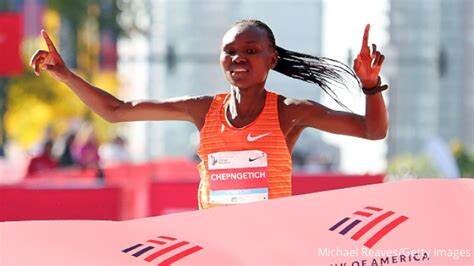
Jepkosgei, who won the London Marathon in 2021 and New York City Marathon in 2019, finished fourth in Chicago last year in 2:17:23.
She improved by one place when returning to marathon action in London in April, setting a PB of 2:16:24.
It’s Kebede who leads this season’s top list, thanks to the PB of 2:15:55 she set to win the Tokyo Marathon in March. That puts her at No.8 all time and she will be hoping to make the most of the fast course in Chicago.
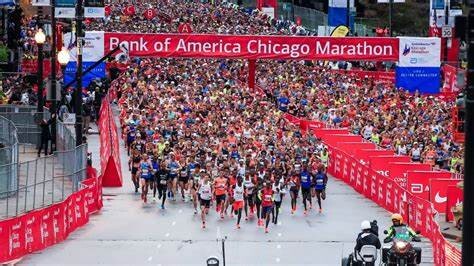
“After seeing what my teammate Kelvin Kiptum did last year, I want to come to Chicago to do something great,” said Kebede, who finished 15th in last year’s race.
Kiptum, who was part of Kebede’s training group, died in a road traffic accident in February, just four months after he set his world marathon record of 2:00:35 in Chicago. This year, the event will honour Kiptum’s legacy with a moment of silence at the start line.
Joining Chepngetich, Jepkosgei and Kebede on that start line will be three more women with PBs under 2:18 – Ethiopia’s Degitu Azimeraw, Ashete Bekere and Hiwot Gebrekidan – plus Kenya’s Irine Cheptai, who ran 2:18:22 in Hamburg in April.
The field also features the second and third fastest ever US women’s marathon runners, Keira D’Amato and Betsy Saina, who have also dipped under 2:20. They are joined in this competitive field by their compatriots Sara Hall and Emma Bates.
Ethiopia’s Legese leads the men’s field with the PB of 2:02:48 he ran in Berlin in 2019. That performance puts him sixth on the men’s world marathon all-time list but since then his highest marathon finish has been a third place, achieved in Rotterdam with a 2:05:16 run in April.
The two-time Tokyo Marathon champion will want to return to winning ways when he heads back to Chicago, where he placed 10th when making his World Marathon Majors debut in 2018, but he faces tough opposition.
Six other men in the field have PBs faster than 2:06, including Kenya’s Amos Kipruto, Vincent Ngetich and John Korir, and Ethiopia’s Dawit Wolde, Amedework Walelegn and Mohamed Esa.
Kipruto, the 2019 world bronze medallist, and Ngetich have matching PBs of 2:03:13. Kipruto won the London Marathon in 2022 and trains with Benson Kipruto, who won that year’s Chicago Marathon, while Ngetich was second in the Berlin Marathon last year, five places ahead of Kipruto. He was also third at this year’s Tokyo Marathon.
Korir ran his PB of 2:05:01 when finishing third in Chicago in 2022, while Wolde ran 2:03:48 in Valencia last year, Esa has a best of 2:05:05 from Amsterdam in 2022 and Walelegn clocked 2:04:50 in Rotterdam in April, finishing runner-up – one place ahead of Legese.
Looking to join them at the front of the field will be Kenya’s Daniel Ebenyo, the world 10,000m and half marathon silver medallist who makes his marathon debut. The 29-year-old ran a 59:30 half marathon in Berlin in April, 26 seconds off his PB set in Manama in 2022.
Ethiopia’s Jemal Yimer Mekonnen, who finished fourth in the half marathon at last year’s World Road Running Championships behind runner-up Ebenyo, is back in marathon action after his win in Seoul in March.
Among the athletes racing on home soil are USA’s Zach Panning, CJ Albertson and Brian Shrader.
Elite fields
WomenRuth Chepngetich (KEN) 2:14:18Sutume Kebede (ETH) 2:15:55Joyciline Jepkosgei (KEN) 2:16:24Degitu Azimeraw (ETH) 2:17:58Ashete Bekere (ETH) 2:17:58Hiwot Gebrekidan (ETH) 2:17:59Irine Cheptai (KEN) 2:18:22Keira D'Amato (USA) 2:19:12Betsy Saina (USA) 2:19:17Sara Hall (USA) 2:20:32Emma Bates (USA) 2:22:10Buze Diriba (ETH) 2:23:11Sara Vaughn (USA) 2:23:24Susanna Sullivan (USA) 2:24:27Gabi Rooker (USA) 2:24:35Lindsay Flanagan (USA) 2:24:43Stacey Ndiwa (KEN) 2:25:29 Lauren Hagans (USA) 2:25:56Annie Frisbie (USA) 2:26:18Jackie Gaughan (USA) 2:27:08Dominique Scott (RSA) 2:27:31Diane Nukuri (USA) 2:27:50Makena Morley (USA) 2:30:25Anne Marie Blaney (USA) 2:30:43Amy Davis-Green (USA) 2:33:09Aubrey Frentheway (USA) debut
MenBirhanu Legese (ETH) 2:02:48Amos Kipruto (KEN) 2:03:13Vincent Ngetich (KEN) 2:03:13Dawit Wolde (ETH) 2:03:48Amedework Walelegn (ETH) 2:04:50John Korir (KEN) 2:05:01Mohamed Esa (ETH) 2:05:05Jemal Yimer (ETH) 2:06:08Kyohei Hosoya (JPN) 2:06:35Toshiki Sadakata (JPN) 2:07:05Tatsuya Maruyama (JPN) 2:07:50Yuichi Yasui (JPN) 2:08:48Jorge Castelblanco (PAN) 2:09:24Zach Panning (USA) 2:09:28Brian Shrader (USA) 2:09:46CJ Albertson (USA) 2:09:53Tomoki Yoshioka (JPN) 2:10:03Reed Fischer (USA) 2:10:34Nathan Martin (USA) 2:10:45Colin Mickow (USA) 2:11:22Kevin Salvano (USA) 2:11:26Jacob Thomson (USA) 2:11:40Turner Wiley (USA) 2:11:59Shadrack Kipchirchir (USA) 2:13:02JP Flavin (USA) 2:13:27Charlie Sweeney (USA) 2:13:41Ben Kendell (USA) 2:15:49Phil Parrot-Migas (CAN) 2:15:53Aaron Gruen (USA) 2:15:56Daniel Ebenyo (KEN) debutPeter Lynch (IRL) debutAlex Maier (USA) debutAlex Masai (USA) debut
by World athletics
Login to leave a comment
Bank of America Chicago
Running the Bank of America Chicago Marathon is the pinnacle of achievement for elite athletes and everyday runners alike. On race day, runners from all 50 states and more than 100 countries will set out to accomplish a personal dream by reaching the finish line in Grant Park. The Bank of America Chicago Marathon is known for its flat and...
more...Six American runners to watch in the 2024 Chicago Marathon
Excitement is building for this year’s Chicago Marathon that takes place on Sunday 13 October. Once again, a stellar field has been assembled including some of the best American runners operating today. Read on to find out which US athletes will compete in the 2024 Chicago Marathon.
It’s been seven years since the last American was victorious in the Chicago Marathon, with Galen Rupp crowned winner of the men’s race in 2017. In the women’s race, you need to go back almost 20 years to find the last US winner, when Deena Kastor became the first female American to claim victory on the streets of Chicago in almost a decade.
But with this year’s Chicago Marathon just days away, a strong group of elite American runners will take on the challenge of the 42.195km race, bringing with them experience, pedigree and the hopes of a nation as they battle for glory on home soil.
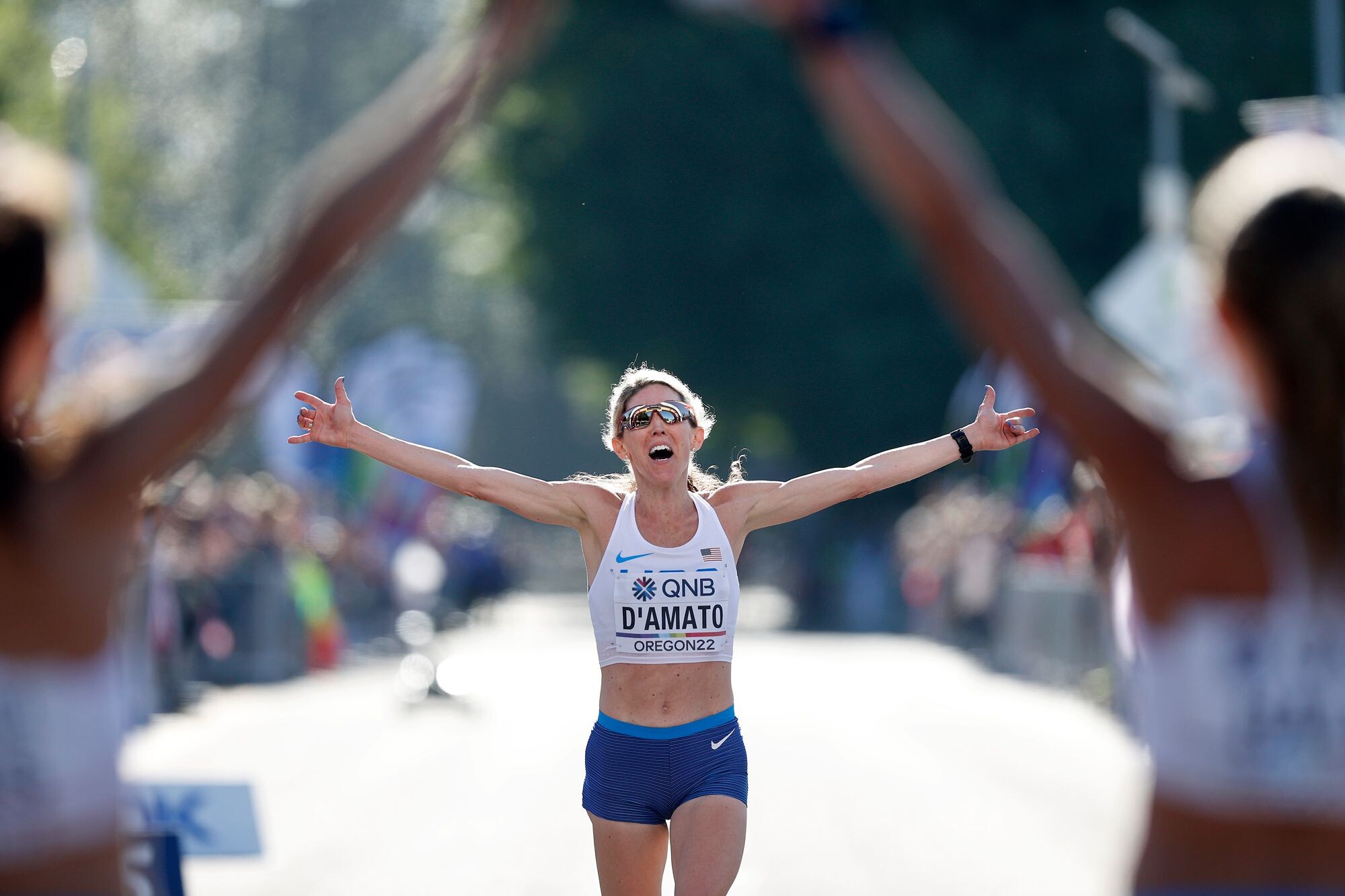
Read on to discover the top American athletes competing in the 2024 Chicago Marathon.
Top Americans in the 2024 Chicago Marathon women’s race
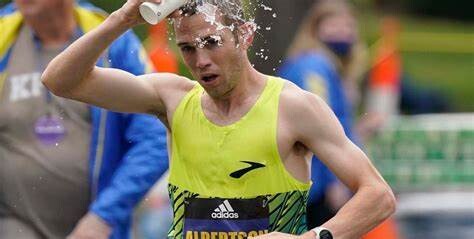
Keira D’Amato
Keira D'Amato, the former fastest female American runner of all time, has an exceptional track record in long-distance events. The 39-year-old still holds the fastest US women’s time in the half marathon at 1:06:39, set in the Gold Coast, Australia in 2023, while her best in the 42.195km race is an impressive 2:19:12, which she achieved in Houston in 2022.
This year, D’Amato will have speedy support by her side, as she revealed her pacer for the Chicago Marathon will be none other than Rio 2016 Olympic 1500m gold medallist Matthew Centrowitz. Can the addition to her race-day crew catapult D’Amato to glory in the Windy City? All will be revealed on Sunday.
Born in Kenya, Betsy Saina has since received her US citizenship and will be one of the favourites to hold the title of fastest American in this year’s Chicago Marathon women’s race. Saina became a mother in 2021 but has gone from strength to strength since then, becoming the fastest female American marathoner in 2023. While her dreams of making the Olympic team for Paris 2024 were not realised, she comes into this year’s Chicago Marathon showpiece with one of the fastest times among all US runners with a personal best of 2:19:17 set at the 2024 Tokyo Marathon.
A fan favourite and former American marathon record holder, Sara Hall has vast experience in elite marathon running, which includes a third-place finish in the 2021 Chicago Marathon.
Perhaps her most memorable performance was in the 2021 London Marathon where she produced a stunning all-out sprint finish to claim second-place in Britain’s capital.
At 41 years old, Hall will be among the older members of the elite field but she is showing few signs of slowing down. She finished fifth in the 2024 Olympic marathon trials and in April this year ended the Boston Marathon as the second-fastest American finisher in a time of 2:27:58.
Top Americans in the 2024 Chicago Marathon men’s race
Zach Panning
During the US marathon trials for the last Olympics, Zach Panning sent the crowd into a frenzy with a courageous run where he led from the front for almost three-quarters of the race. Panning eventually fell off the pace to finish the trials in sixth place, with only the top three nominated for the team.
However, the fearlessness of the 29-year-old, who holds a personal best of 2:09:28, makes him one of the most exciting runners in the field.
Following his 10th-place finish in the 2024 London Marathon, Brian Shrader is back on home soil hoping to impress on the streets of Chicago, where he finished 11th last year in a personal best time of 2:09:46.
While a DNF in the Olympic trials shattered Shrader’s dreams of going to Paris 2024 he enters this race with real aspirations of finishing as the top American and perhaps challenging the front-runners in the elite men’s race.
Perhaps best known for his exploits over distances that trickle into the category of ultrarunning, CJ Albertson’s pace over the legendary 42.195km distance makes him one of the top three American men in the Chicago Marathon field.
The former world record holder over 50km enters Sunday’s race with a best marathon time of 2:09:53 set at the 2024 Boston Marathon, where he finished seventh.
Albertson finished fifth in the 2024 Olympic trials but his recent form shows just why he is one of the most talked-about US athletes operating in the marathon today.
by Athletics
Login to leave a comment
Bank of America Chicago
Running the Bank of America Chicago Marathon is the pinnacle of achievement for elite athletes and everyday runners alike. On race day, runners from all 50 states and more than 100 countries will set out to accomplish a personal dream by reaching the finish line in Grant Park. The Bank of America Chicago Marathon is known for its flat and...
more...Tola and Obiri lead elite fields for New York City Marathon
Organisers of the 2024 TCS New York City Marathon have revealed a world-class line up for this year’s World Athletics Platinum Label road race on 3 November, led by defending champions Tamirat Tola and Hellen Obiri.
Since winning last year in a course record of 2:04:58, Tola won the Olympic title in Paris in a Games record of 2:06:26. What made his feat all the more impressive is that he was only drafted into the Ethiopian team two weeks before the Games, having initially been named as a reserve.
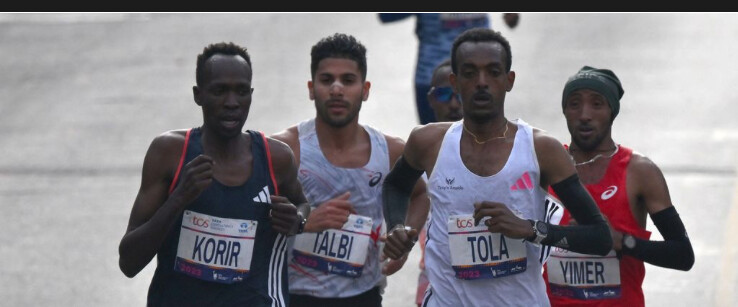
“I’m excited to defend my title in New York, especially coming off an Olympic-record marathon performance,” said Tola. “The hilly course and crowds in Paris definitely prepared me well for the bridges and spectators in New York, where maybe I can go even faster this year.”
Two-time Olympic medallist Bashir Abdi will also be one to watch; the Belgian earned silver at the recent Olympics, having taken bronze at the Tokyo Olympics in 2021 and at the 2022 World Championships.
Three past winners – all from Kenya – are also in the field: 2022 champion Evans Chebet, 2021 winner Albert Korir, and 2019 and 2017 victor Geoffrey Kamworor. Chebet has twice won the Boston Marathon, and has finished first or second in 13 marathons. Kamworor has made it on to the podium in all four of his New York Marathon appearances.
Fellow Kenyan Abel Kipchumba, who won this year’s NYC Half Marathon, will be making his New York City Marathon debut.
The US charge is led by Conner Mantz and Clayton Young, who finished eighth and ninth respectively in the Paris Olympic marathon.
Women’s Open Division
Obiri is a three-time Olympic medallist and seven-time world medallist. Last year the Kenyan became the first woman in 34 years to win both Boston and New York in the same calendar year. So far this year, she retained her Boston Marathon title and went on to earn bronze in the Olympic marathon.
“There’s no place like New York, and I am so ready to defend my title,” said Obiri. “I have been racing very well on the roads in the US, and I hope I can have another good day that sees me in contention once we enter the final stages in Central Park.”
Fellow Kenyan Sharon Lokedi, the 2022 NYC Marathon winner, will return after finishing third last year and fourth in the Olympic marathon in Paris. The Kenyan delegation will also include 2010 champion Edna Kiplagat, four-time Olympic medallist Vivian Cheruiyot, and Sheila Chepkirui, who owns the fastest personal best in the field.
Ethiopia’s Tirunesh Dibaba will make her New York City Marathon debut and is one of the world’s most accomplished long-distance runners as a three-time Olympic and 16-time world champion. She will be joined by compatriot Senbere Teferi.
Dakotah Lindwurm, the top US finisher in the marathon at the Paris Olympics, will lead the US contingent.
Elite field
WomenSheila Chepkirui (KEN) 2:17:29Tirunesh Dibaba (ETH) 2:17:56Vivian Cheruiyot (KEN) 2:18:31Senbere Teferi (ETH) 2:19:21Dera Dida (ETH) 2:19:24Edna Kiplagat (KEN) 2:19:50Eunice Chumba (BRN) 2:20:02Sharon Lokedi (KEN) 2:22:45Hellen Obiri (KEN) 2:23:10Fatima Gardadi (MAR) 2:24:12Kellyn Taylor (USA) 2:24:29Fabienne Schlumpf (SUI) 2:24:30Aliphine Tuliamuk (USA) 2:24:37Dakotah Lindwurm (USA) 2:24:40Lily Partridge (GBR) 2:25:12Jessica McClain (USA) 2:25:46Des Linden (USA) 2:25:55Tristin Van Ord (USA) 2:25:58Khishigasaikhan Galbadrakh (MGL) 2:26:32Maggie Montoya (USA) 2:28:07Katja Goldring (USA) 2:29:01Savannah Berry (USA) 2:29:13
MenEvans Chebet (KEN) 2:03:00Gabriel Geay (TAN) 2:03:00Bashir Abdi (BEL) 2:03:36Tamirat Tola (ETH) 2:03:39Geoffrey Kamworor (KEN) 2:04:23Abdi Nageeye (NED) 2:04:45Addisu Gobena (ETH) 2:05:01Abel Kipchumba (KEN) 2:06:49Albert Korir (KEN) 2:06:57Conner Mantz (USA) 2:07:47Clayton Young (USA) 2:08:00Rory Linkletter (CAN) 2:08:01Callum Hawkins (GBR) 2:08:14Ser-Od Bat-Ochir (MGL) 2:08:50Elkanah Kibet (USA) 2:09:07Noah Droddy (USA) 2:09:09Jonny Mellor (GBR) 2:09:09Jared Ward (USA) 2:09:25Colin Bennie (USA) 2:09:38Futsum Zienasellassie (USA) 2:09:40CJ Albertson (USA) 2:09:53Nico Montanez (USA) 2:09:55Yuma Morii (JPN) 2:09:59
by World Athletics
Login to leave a comment
Another Marathon Already? Top Americans from Paris Will Run New York in 11 Weeks
On Tuesday, the New York Road Runners announced the elite fields for this year’s New York City Marathon on November 3. The reigning champions are returning—Hellen Obiri and Tamirat Tola—as are three of the top Americans from the Paris Olympics marathon in August: Conner Mantz, Clayton Young, and Dakotah Lindwurm.
Also running New York are Evans Chebet, the 2022 champion and a two-time winner of the Boston Marathon, and Bashir Abdi, who won the silver medal in Paris. Tola, a last-minute addition to the Ethiopian Olympic team and NYC course record holder, enters as the presumptive favorite after winning the gold medal in Paris.
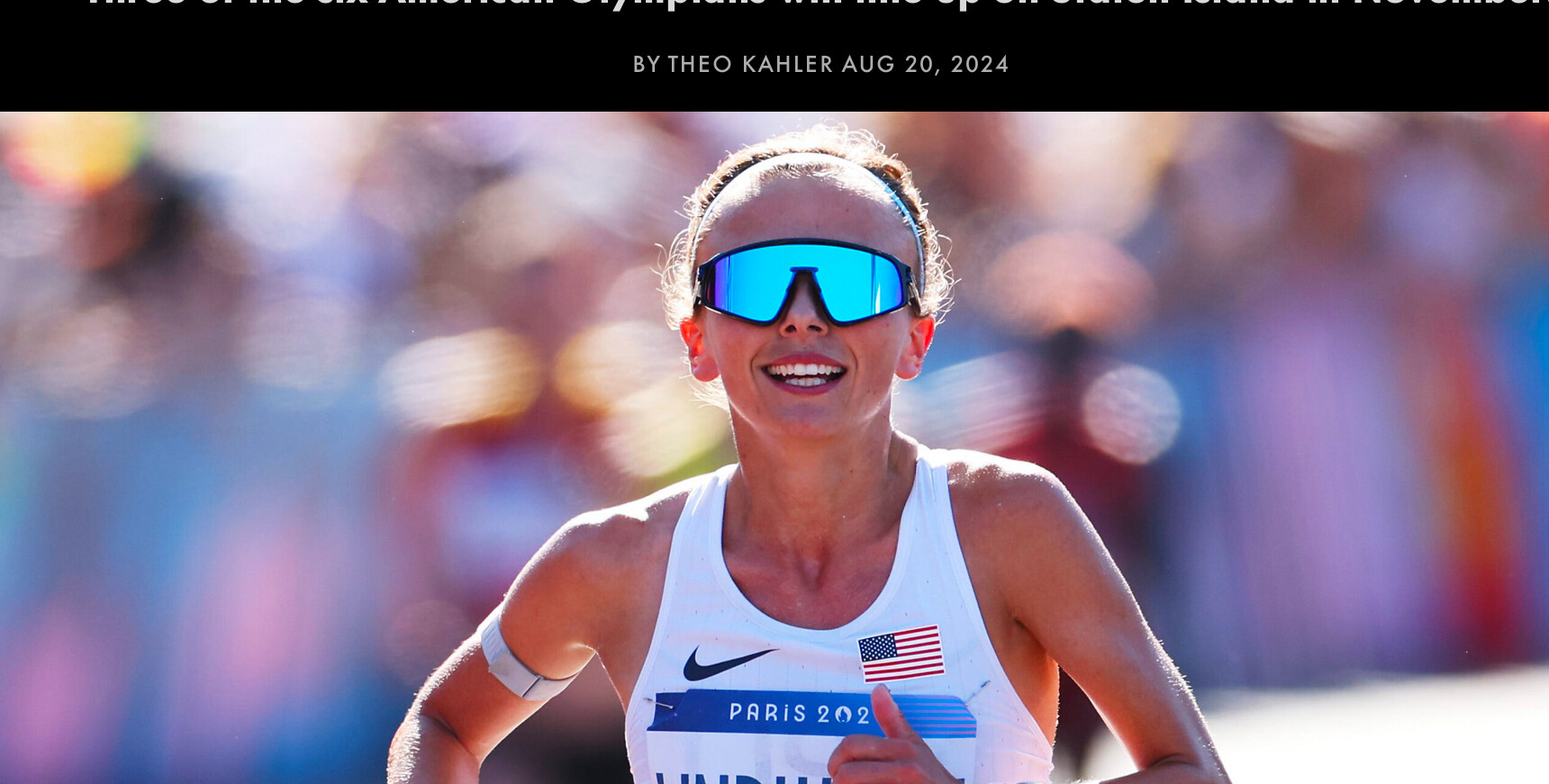
In addition to Mantz and Young, the American men will be represented by Elkanah Kibet, CJ Albertson, and Futsum Zienasellassie, among others.
The biggest competition for Obiri, who took bronze in Paris, will likely come from Sharon Lokedi, the winner of the 2022 New York City Marathon. Lokedi was just off the podium in Paris, finishing four seconds behind Obiri in fourth (2:23:14). Lindwurm, who placed 12th in Paris, will lead the Americans, but Jess McClain, Kellyn Taylor, and Aliphine Tuliamuk are all experienced, as is 2018 Boston Marathon winner Des Linden.
You can view the full elite fields here.
The two courses are both hilly, but the inclines in New York are more gradual. The Paris course had two major climbs, including a steep segment during mile 18 that averaged a 10.5 percent grade. In the men’s race, Tola made a strong move on the hill to separate from the field, which ended up getting him the gold medal. Although New York has 810 feet of elevation compared to 1,430 feet in Paris, it’s still a tough course—in fact, we ranked it the toughest of the six World Marathon Majors.
There’s a relatively tight 11-week turnaround from Paris (after you factor in a week for rest). The men’s Olympic race was August 10 and the women’s race was August 11. The New York City Marathon is scheduled for Sunday, November 3.
Young, who placed ninth at the Olympics, knows 11 weeks isn’t ideal for a full marathon build—he took 16 weeks for Paris—but he’s confident he can run well in November. He’ll resume full-on training next week and is being careful to take a physical and mental break after Paris.
“I think there can be this mentality that you want to hold onto that fitness from Paris, and that can be a debilitating mentality because if you try too hard to hang on to that fitness, you’re gonna be toast by race day by not taking a proper break,” he said. “It’s a tricky balance.”
Lindwurm, on the other hand, is used to running three marathons a year. The past two years, she’s raced the Boston Marathon in the spring, Grandma’s Marathon in June, and either the Chicago or New York City Marathon in the fall.
“For courses like New York, I like to say it’s better to show up al dente than overcooked,” she said. “I have no issues looking at an 11 week build, especially because I’ve done Boston to Grandma’s, which I think is like seven or eight weeks, quite a few times. So that never really scares me. I feel like every marathon build you’re just building off of what you did last time, so even if I don’t get any more fit than I was in Paris, I think I’m still in a really good spot.”
In 2022, when she ran New York, she had a tough race and dropped out at mile 18. But Lindwurm said she’s a totally different runner now, so this time, she’s “back for revenge.” She’s coming in with ‘A,’ ‘B,’ and ‘C’ goals: C is to finish the race, B is to crack the top 10, and A is to get on the podium.
Young wants to be more competitive, too.
He ran a fairly conservative race in Paris, holding back slightly on the steep hill at mile 18, but his apprehension caused him to run most of the later miles by himself. “I missed the move,” he admitted.
At New York, he hopes to race more aggressively, even if it comes with the risk of pushing too hard. “I’m excited to be able to cover more moves late in the race and to be more competitive towards the end, instead of finding myself in no man’s land,” he said.
He’ll run the race alongside his training partner, Conner Mantz, who finished one spot ahead of him in Paris, in eighth place. The two are longtime friends, but, at the end of the day, they’re competitors. And Young is 0-4 against Mantz in marathons.
Young wants to chip away at the score.
“I love training with Conner every day, and he’s a big reason why I was able to have such a great day in Paris and at the [U.S. Olympic] Trials and previous marathons, but man, I gotta beat him sometime, right?” he said.
“I wanna be competitive with him, and so I’m excited to toe the line with him again and to have that rivalry continue, as well as our friendship.”
Login to leave a comment
World Athletics Adds Ranking Spots to Olympic Men’s Marathon Field — American Leonard Korir Will Run in Paris
The United States will have three men in the 2024 Olympic marathon after all. Following months of uncertainty, World Athletics added one universality place and four rankings places to the Olympic marathon field on Tuesday. The four ranking spots were awarded to athletes from Chile, South Africa, the United States, and Australia, meaning that Leonard Korir will join Americans Conner Mantz and Clayton Young on the Olympic marathon start line on August 10.
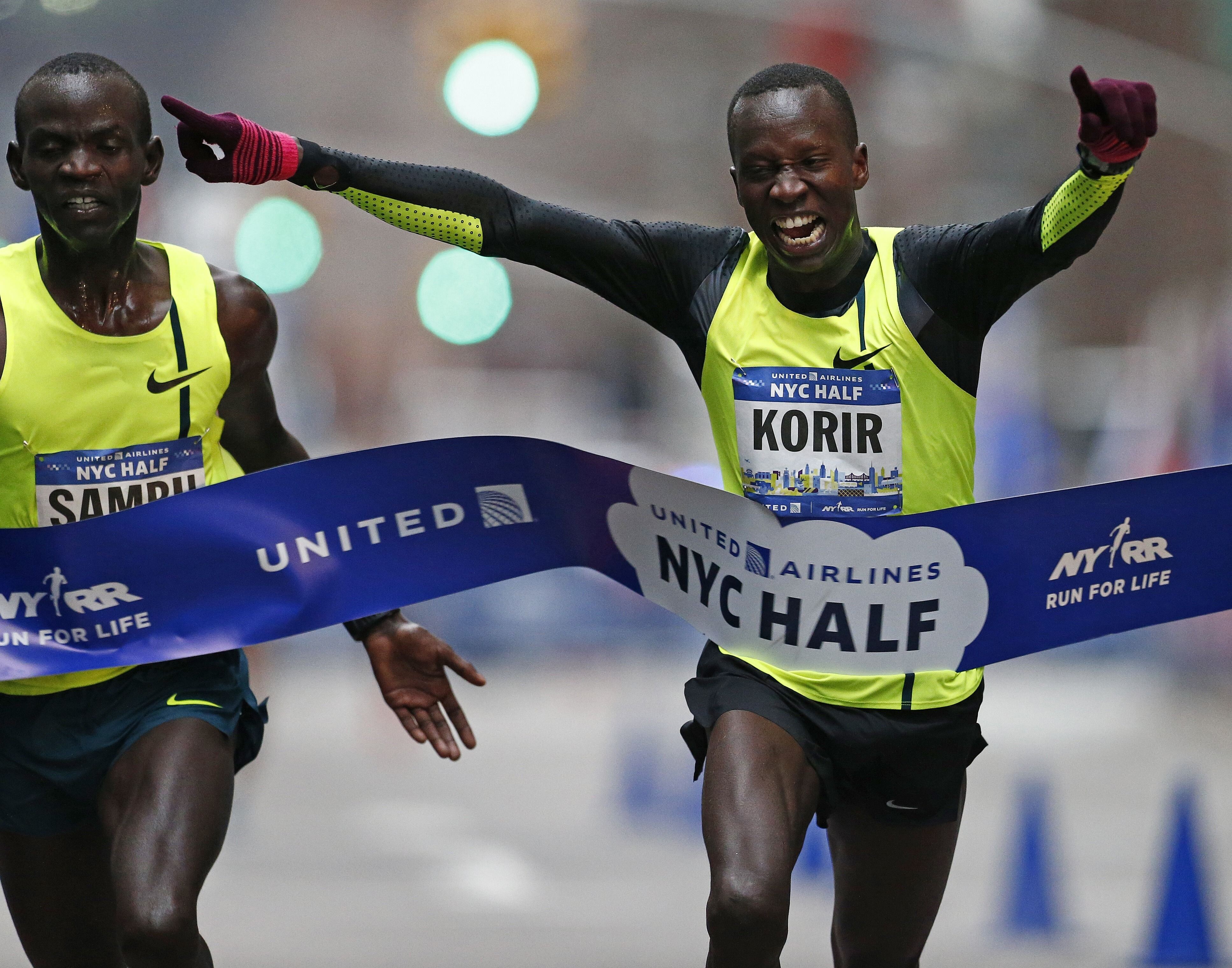
Korir’s spot had been in jeopardy after World Athletics added 11 universality places on May 8, but the Road to Paris list of qualifed athletes has been updated and American CJ Albertson is now listed as qualified at spot #84. Per USATF selection procedures, Albertson’s place will pass to Korir, the third-placer at February’s US Olympic Marathon Trials. Korir’s coach Scott Simmons confirmed to LetsRun.com that Korir is now qualified and will compete in the Olympic marathon on August 10.
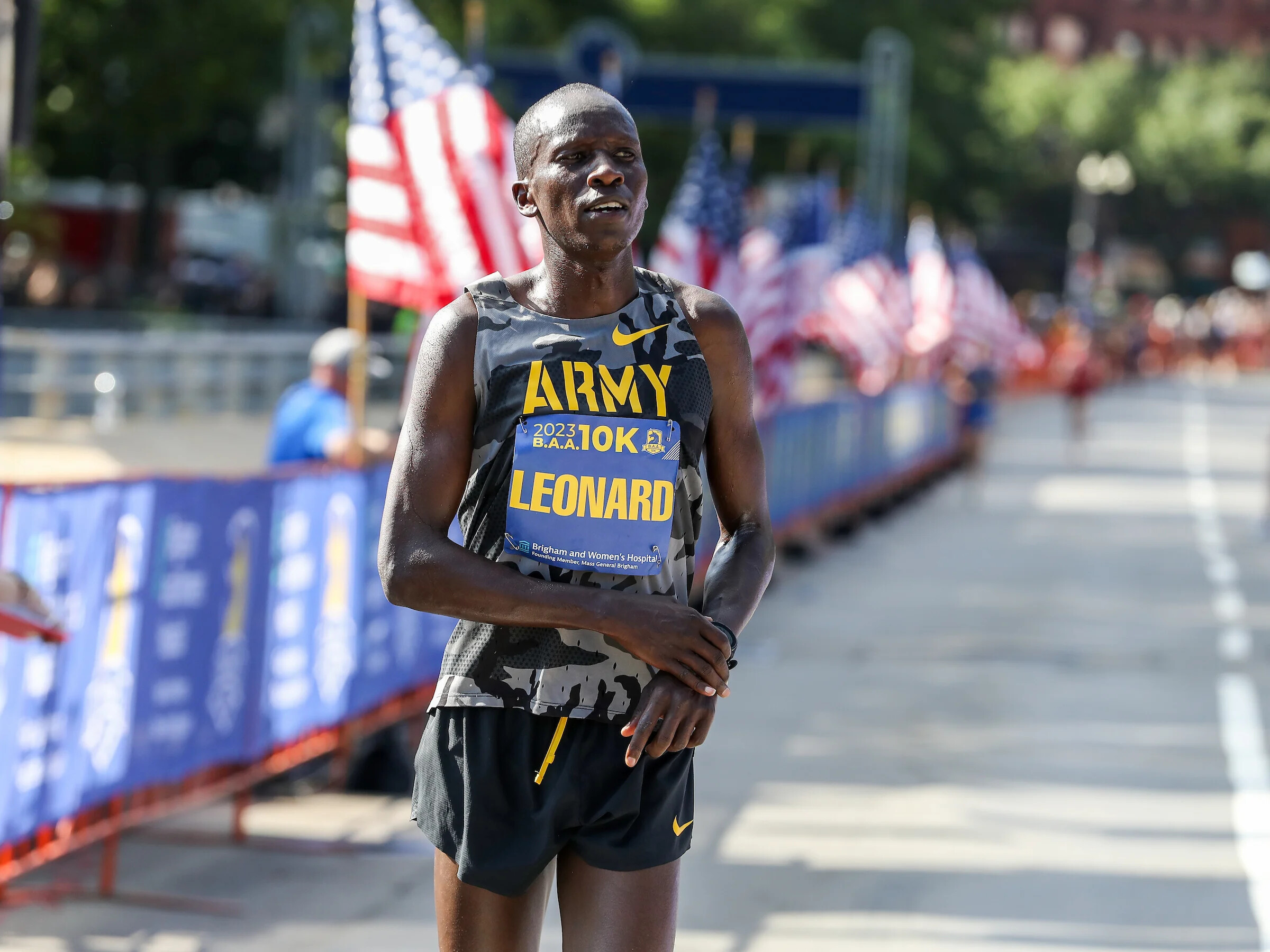
Australia’s Wide World of Sports reported that in recent weeks, World Athletics had been working on a solution to fit some highly-ranked athletes into the Olympic marathon while respecting Olympic sport quota limits set by the International Olympic Committee.
It was not immediately clear why World Athletics added four ranking places on Tuesday; this story will be updated as LetsRun.com learns more.
by Jonathan Gault
Login to leave a comment
Paris 2024 Olympic Games
For this historic event, the City of Light is thinking big! Visitors will be able to watch events at top sporting venues in Paris and the Paris region, as well as at emblematic monuments in the capital visited by several millions of tourists each year. The promise of exceptional moments to experience in an exceptional setting! A great way to...
more...How to Watch the 2024 Boston Marathon
The world’s oldest annual marathon is back for its 128th edition.
On Monday, April 15, the World Marathon Majors will return stateside to the 2024 Boston Marathon. In its 128th year, the world’s oldest annual marathon features must-see storylines, including the return of defending women’s champion Hellen Obiri and two-time men’s winner Evans Chebet.
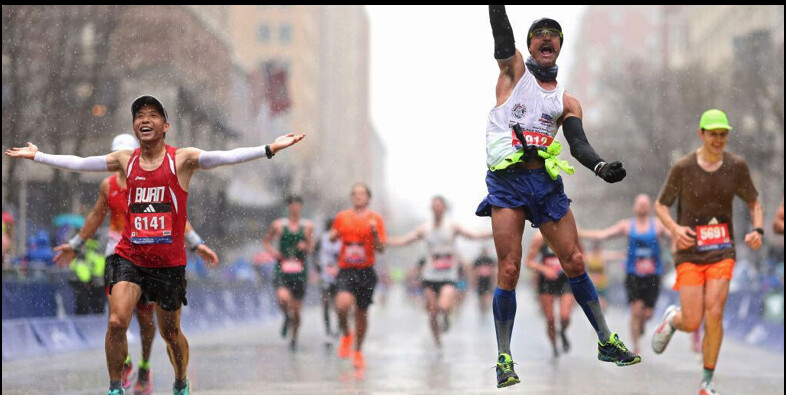
The point-to-point race is scheduled to begin in Hopkinton, Massachusetts, and ends in the Back Bay neighborhood of Boston. The weather forecast for Patriots’ Day is showing slightly warmer temperatures than average in the city. The conditions could make race day more challenging on a course famous for its hills (we ranked Boston as the second-toughest of the six World Marathon Majors).
Here’s everything you need to know about this year’s race.
How to watch the 2024 Boston Marathon
ESPN2 will broadcast the Boston Marathon from 8:30 a.m. ET to 12:30 p.m. ET. You can also live stream the race with an ESPN+ subscription, which costs $10.99 a month.
For those tuning in from Boston, live coverage will be provided by WCVB beginning at 4:00 a.m. ET and lasting throughout the day.
Boston Marathon start times (ET)
Men’s wheelchair division—9:02 a.m.
Women’s wheelchair division—9:05 a.m.
Men’s elite race—9:37 a.m.
Women’s elite race—9:47 a.m.
Para athletics division—9:50 a.m.
First wave—10 a.m.
Second wave—10:25 a.m.
Third wave—10:50 a.m.
Fourth wave—11:15 a.m.
Race preview
This year’s elite race comes with added high stakes for many international athletes. Countries that don’t host Olympic Trials for the marathon are currently in the national team selection process. A standout performance in Boston could be a game-changer for athletes looking to represent their country in Paris this summer.
Women’s race
On the women’s side, Boston podium contenders Hellen Obiri and Sharon Lokedi were included in the shortlist of marathoners under national team consideration by Athletics Kenya.
Obiri, 34, is set to return to Boston after a stellar 2023 campaign. Last year, the On Athletics Club runner won the Boston Marathon and the New York City Marathon. A former track standout with two world championship titles, Obiri aims to continue her winning streak on Monday.
Lokedi, 30, is looking to top the podium at a key moment in her career. The University of Kansas graduate is set to run her first 26.2 since finishing third at the New York City Marathon last fall—a race she won in her marathon debut two years ago.
Kenya will also be represented by 2022 World Championship silver medalist Judith Korir and two-time Boston Marathon champion Edna Kiplagat, among other standouts.
The Ethiopian contingent should be strong as well. Ababel Yeshaneh finished second at Boston in 2022 and fourth in 2023. Plus, 2:17 marathoner Tadu Teshome will be one to watch in her Boston debut.
In the weeks after the U.S. Olympic Marathon Trials in February, more Americans were added to the field. Sara Hall, 40, enters the race after finishing fifth in a new American masters record (2:26:06) at the Trials in Orlando, Florida. 2015 Boston champion Caroline Rotich, 39, joins the field after placing sixth at the Trials. Jenny Simpson, 37, also entered after dropping out in her marathon debut in Orlando. And keep an eye out for 2018 Boston Marathon champion Des Linden, 40, and Emma Bates, 31, who finished fifth in Boston last year.
Men’s race
Evans Chebet is looking for a hat trick. Last year, the Kenyan became the first athlete to repeat as men’s champion since Robert Kipkoech Cheruiyot won three in a row between 2006 and 2008. In the process, the 35-year-old took down two-time Olympic champion Eliud Kipchoge in Boston.
His biggest challenger will likely be Sisay Lemma of Ethiopia, who is returning after a breakthrough season in 2023. In December, Lemma, 33, won the Valencia Marathon in 2:01:48, making him the fourth-fastest marathoner in history. Lemma also won the Runkara International Half Marathon in 1:01:09, a new personal best.
Gabriel Geay, last year’s Boston runner-up, is returning to the field on Monday. The 27-year-old from Tanzania is coming off a fifth-place finish at the Valencia Marathon.
Other runners to watch include 2023 New York City runner-up Albert Korir; Shura Kitata, who placed third in New York last year; and Zouhair Talbi, who finished fifth in Boston last year.
The American men’s field also grew after the Olympic Trials with the addition of Elkanah Kibet and Sam Chelanga. Kibet finished fourth in Orlando in a 2:10:02 personal best, and after dropping out after mile 18 of the Trials, Chelanga will aim for redemption in Boston. They join 50K world record-holder CJ Albertson and the BAA’s Matt McDonald in the elite race.
by Runner’s World
Login to leave a comment
These were the Fastest Shoes of the 2024 Olympic Marathon Trials
Asics, Puma, and Nike had a big day.
The city of Orlando witnessed some amazing performances under a blistering sun, with tickets to Paris at stake. When the dust settled after three loops, six brands placed among the top 10 men’s and women’s finishers. There was a time Nike ruled the roads, but Asics topped them in this year’s Olympic Trials Marathon, with two men and four women making my list below.
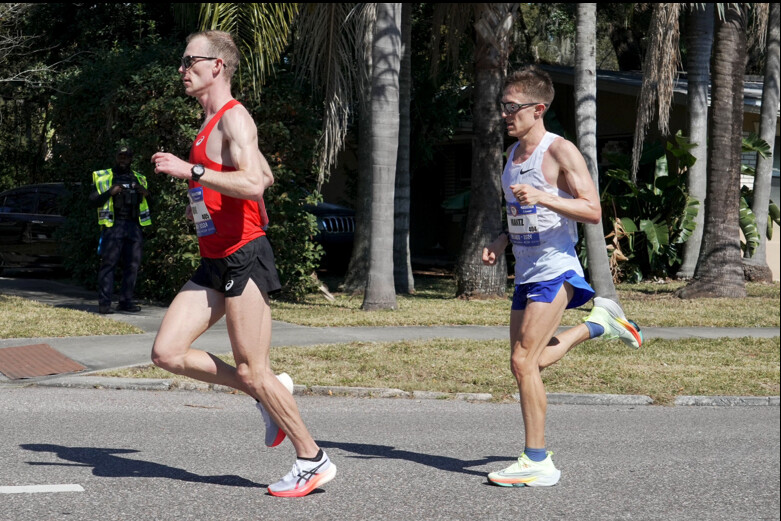
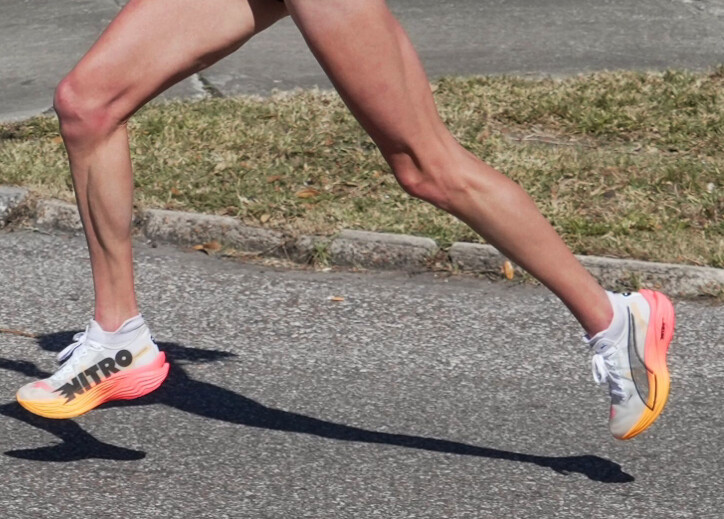
Here’s a look at what the top 10 finishers in both races wore in their quests for a spot on the Olympic team.
MEN’S TOP 10
1st — Conner Mantz, 2:09:05
Nike Air Zoom Alphafly Next% (v1)
Despite two updates to the Alphafly, Mantz (right in the image above) continues to wear the very first version. If it ain’t broke, don’t fix it.
2nd — Clayton Young, 2:09:06
Asics Metaspeed Sky 3 prototype
Young (left, above) looks to be wearing the newest, unreleased Metaspeed Sky. Asics has three “development” shoes (prototype) approved by World Athletics for use in competition, currently. This colorway looks a lot like the existing Metaspeed Sky+ and Edge+, but when we zoom in closer we don’t see any labels, and the sidewall of the midsole looks different than the shoe you can buy now.
3rd — Leonard Korir, 2:09:57
Nike Air Zoom Alphafly 3
Korir laced up the latest Alphafly and might just have run himself onto the squad headed for Paris. We reviewed the Alphafly 3 recently.
4th — Elkanah Kibet, 2:10:02
Asics Metaspeed Edge 3 prototype
Kibet is wearing a prototype, like Young. His, however, appears to be the Metaspeed Edge. You can see the ridge on the sidewall of the forefoot swoops down low toward the sole of the shoe. The Edge’s plate curves lower, allowing for more foam between your foot and the plate than in the Sky.
5th — CJ Albertson, 2:10:07
Brooks Hyperion Elite 4 prototype
It looks like CJ is wearing Brooks’s top racing shoe, which was just announced. But, the company also has a “Hyperion Elite 4 RD.010” prototype shoe that was approved by World Athletics for use in competition just two weeks ago. It’s likely he wore that version (we don’t have details yet) but the outsole of CJ’s race shoe has gray rubber, whereas the newly announced version has a web of black and orange rubber.
6th — Zach Panning, 2:10:50
Brooks Hyperion Elite 4 prototype
Panning seems to be wearing the same prototype of the Hyperion Elite 4 that CJ wore.
7th — Nathan Martin, 2:11:00
Nike Air Zoom Alphafly 3
8th — Josh Izewski, 2:11:09
Nike Air Zoom Alphafly 3
9th — Reed Fischer, 2:11:34
Adidas Adizero Adios Pro 3
Fischer rolled to a top-10 finish with an all-white version of the Adios Pro 3. Adidas does not have any prototypes on the list of approved shoes as of race day.
10th — Colin Bennie, 2:12:17
Brooks Hyperion Elite 4 prototype
Bennie seems to be wearing the same prototype as Albertson and Panning.
WOMEN’S TOP 10
1st — Fiona O’Keeffe, 2:22:10
Puma Deviate Nitro Elite 3
Not a bad first effort for O’Keeffe and Puma. Fiona won her first marathon in record fashion. And Puma claimed victory with the Deviate Elite 3 on the first day it was approved for use in competition. The World Athletics approved shoe list shows the 3 green lighted for use as a “development” as of Feb. 3, 2024.
2nd — Emily Sisson, 2:22:42
New Balance FuelCell SuperComp Pacer
New Balance has a new super shoe, the FuelCell SuperComp Elite v4, out. But Sisson laced up the thinner, lighter Pacer. It’s a shoe most of us recreational runners might only grab for a 5K or 10K (maybe). Seems like it’s working just fine for the American record holder.
3rd — Dakotah Lindwurm, 2:25:31
Puma Deviate Nitro Elite 3
Lindwurm also wore the new Puma racer. Hey, Puma, need me to re-send my address?
4th — Jessica McClain, 2:25:46
Nike Vaporfly 3
This marks an insane shift in racing footwear. On the men’s side, four of the top 10 runners laced up Nike. Only McClain, the team’s first alternate, cracked the top 10 women’s runners wearing the swoosh. Folks, we’re living in the golden age of running shoes. Pick the pair that fits and feels best—and rip it.
5th — Sara Hall, 2:26:06
Asics Metaspeed Edge 3 prototype
Like Kibet, it appears Hall wore the Metaspeed Edge prototype.
6th — Caroline Rotich, 2:26:10
Asics Metaspeed Edge+
Unlike Hall, Kibet, and Young, Rotich’s shoe seems to be the current Metaspeed Edge+ that you can buy right now.
7th — Makenna Myler, 2:26:14
Asics Metaspeed Sky 3 prototype
Myler is likely wearing the Sky 3 prototype—again, check out that ridge in the forefoot; it’s closer to the foot. One heck of a day for Asics, if I do say so.
8th — Lindsay Flanagan, 2:26:25
Asics Metaspeed Edge 3 prototype
N + 1.
9th — Emily Durgin, 2:27:56
Adidas Adizero Adios Pro 3
Durgin held onto a top-10 finish wearing Adidas’s most popular marathon racer.
10th — Annie Frisbie, 2:27:56
Puma Deviate Nitro Elite 3
Asics packed four runners in the top 10, but Frisbie finished strong to give Puma a triumphant trio, all wearing the new Deviate Elite 3.
by Runner’s World
Login to leave a comment
Conner Mantz, Clayton Young Finish 1-2 At U.S. Olympic Trials Mens Marathon
Conner Mantz and Clayton Young, the two former BYU teammates and training partners, took the top two spots with Mantz winning in 2:09:05 and Young finishing in 2:09:06 at the U.S. Olympic Marathon Trials in Orlando.
Leonard Korir finished third in 2:09:57.
As of right now, only the Mantz and Young have guaranteed their spots on the team. Mantz, who ran a 2:07:48 at the 2023 Chicago Marathon, and Clayton Young, who tallied a time of 2:08:00 in Chicago, earned their qualifying times prior to the Trials.
Because Korir did not finish under the Olympic qualifying standard of 2:08:10, he can qualify achieving a high enough world ranking on the World Athletics list by May 5, or via that third spot becoming unlocked by a U.S. men's Top 5 finish in any of the remaining platinum-level marathons (Tokyo, Seoul, Boston) within the qualification window.
Zach Panning controlled the race from its early stages. The three-time NCAA Division 2 champion from Grand Valley State took a group of eight men through the half in 64:07. The pack remained tight through 17 miles when things started to string out. Defending champion Galen Rupp was among those who began falling back at this point as a five-second gap formed between the top five and sixth place.
Panning pushed the tempo a bit more at Mile 19 and with Mantz and Young in tow, the trio pulled away from the field and established themselves as the prime contenders for the team. The three ran together for the next three plus miles until Mantz and Young made their move to the front at the 23 mile mark and quickly opened a 20-meter gap on Panning that continued to swell.
With a mile to go in the race, Panning faded badly. Now gapped by Mantz and Young by almost a minute, the chasers had a target to focus on again within striking distance of a shot at the Olympics. Elkanah Kibet and Korir were the first to pass Panning and dueled over the final mile for that third-place spot. With a half mile to go, Korir emerged as the stronger of the two and held position.
Kibet finished fourth in 2:10:02. CJ Albertson moved up in that final mile and finished fifth in 2:10:07 while Panning wound up sixth in 2:10:50.
Rupp, who was attempting to make a fifth Olympic team, placed 16th in 2:14:07.
Scott Fauble, the top American at the last two Boston Marathons, dropped from the lead pack in the eighth mile and pulled out before the half marathon mark.
Five-time Olympian Abdi Abdirahman, 47, dropped out of the race around the same time.
by Flo track by Joe Battaglia
Login to leave a comment
2028 US Olympic Trials Marathon
Most countries around the world use a selection committee to choose their Olympic Team Members, but not the USA. Prior to 1968, a series of races were used to select the USA Olympic Marathon team, but beginning in 1968 the format was changed to a single race on a single day with the top three finishers selected to be part...
more...Conner Mantz And Clayton Young Lead Charge At U.S. Olympic Marathon Trials
The months leading up to the U.S. Olympic Marathon Trials have been anxiety-inducing, but race day is nearly upon us.
From the intense back-and-forth exchanges between the Athlete Advisory Board and the Greater Orlando Sports Commission, to the uncertainty on exactly how many American men will be toeing the line this summer in Paris, the build-up to the trials has been nothing short of newsworthy.
That being said, we are just a few days out of the Trials, and there are certainly a few storylines at play.
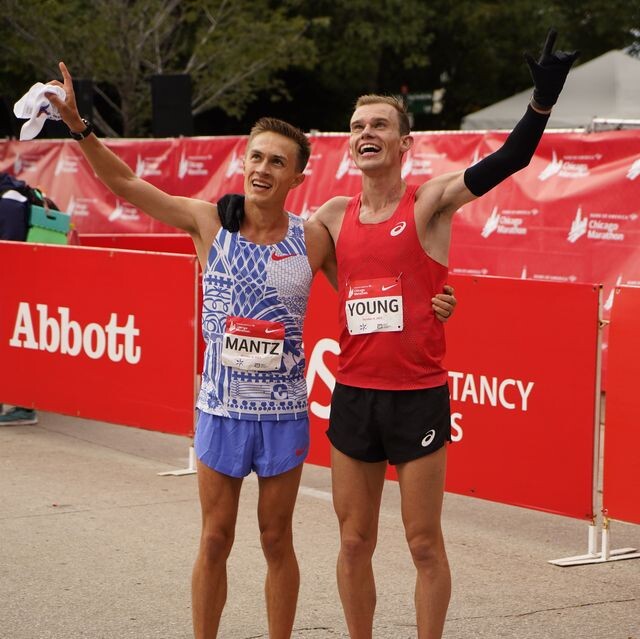
The Young Guns
Conner Mantz, 27, and Clayton Young, 30, will step to the line on Saturday as the two fastest men in the field during the qualifying window. Mantz, a two-time national champion while at Brigham Young University, finished sixth at the Bank of America Chicago Marathon back in October. He was the top American and crossed in 2:07:47, which is tied for fourth on the all-time U.S. list.
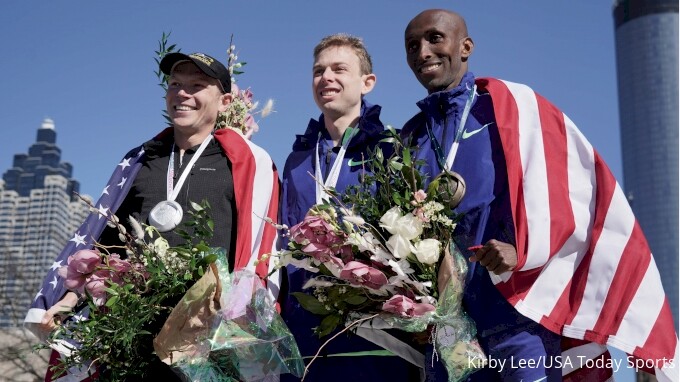
Young, an NCAA champion himself while also attending BYU, was just a few spots behind his former college teammate and training partner, finishing seventh in 2:08:00, which was good enough for a U.S. No. 7 standing all-time among American men.
Both of Ed Eyestone's former studs left the 'Windy City' with lifetime bests, and most importantly, unlocked two American spots for Paris 2024.
Following superb performances in Chicago just months ago, the Provo-based training partners would love nothing more than to claim the spots they earned on Saturday and officially punch their ticket to the Olympics.
However, they are both well-aware that nothing is earned in the sport, especially when the marathon is the distance of choice. Both are looking more than prepared, just check out the workout video:
The Veterans
While some of the field is preparing for their first-ever U.S. Olympic Trials, there are more than a few experienced marathoners that have been here before and are accustomed to the pressure.
One of those men is none-other than Galen Rupp, the two-time Olympic medalist and current/former American record holder.
Rupp has run his fair share of marathons, with the 2024 Trials marking his 15th attempt on the brutal race.
Not only is he a veteran at the distance, but he's also qualified for two Olympic marathons -- Rio 2016 and Tokyo 2020 -- and competed at the 2022 World Athletics Championship.
After battling a nagging back injury, Rupp returned to the marathon in October, was one of four Americans under 2:09 and ran 2:08:48 in his return.
Rupp will see some familiar faces in Orlando, as fellow marathon veterans Sam Chelanga, Scott Fauble and CJ Albertson are all jockeying for a spot as well.
The 38-year-old Chelanga is coming off a 2:08:50 from the 2023 Chicago Marathon, which shaved over six minutes off of his previous best along the way.
Fauble's most recent marathon unfortunately ended with a 'DNF', but a seventh-place finish at Boston last year paired with a 2:08:52 personal best from 2020 says he's in the mix as well.
For Albertson, this will be his fourth marathon since April. After finishing 12th in Boston, he ran and won both the California International Marathon (CIM) and the Baja California California on back-to-back weekends in December, running 2:11:09 and 2:11:08, respectively.
Any of these four men could see themselves in the final three come Saturday, but despite none of them having the Olympic Standard, they could still snag one of two guaranteed spots thanks to their sub-2:11:30 performances during the qualifying window. And a third auto-spot could get unlocked if an athlete runs 2:08.10 or faster on the day.
A few of the many notable names to keep an eye out include Elkanah Kibet, Zach Panning, Leonard Korir, and Futsum Zienasellassie.
The gun goes off for the men at 10:10 a.m. EST on Saturday, with the women following close behind at 10:20 a.m. EST.
You can tune in live on Peacock, with coverage starting at 10:00 a.m. EST, and NBC will begin broadcasting at noon.
by Maxx Bradley
Login to leave a comment
2028 US Olympic Trials Marathon
Most countries around the world use a selection committee to choose their Olympic Team Members, but not the USA. Prior to 1968, a series of races were used to select the USA Olympic Marathon team, but beginning in 1968 the format was changed to a single race on a single day with the top three finishers selected to be part...
more...Chebet, Lemma and Geay to clash at Boston Marathon
Evans Chebet and Gabriel Geay, the top two finishers at last year’s BAA Boston Marathon, will return to the World Athletics Platinum Label road race on April 15, to take on recent Valencia Marathon winner Sisay Lemma.
Chebet successfully defended his Boston title last year in 2:05:54. In fact, the Kenyan has won six of his past seven marathons.
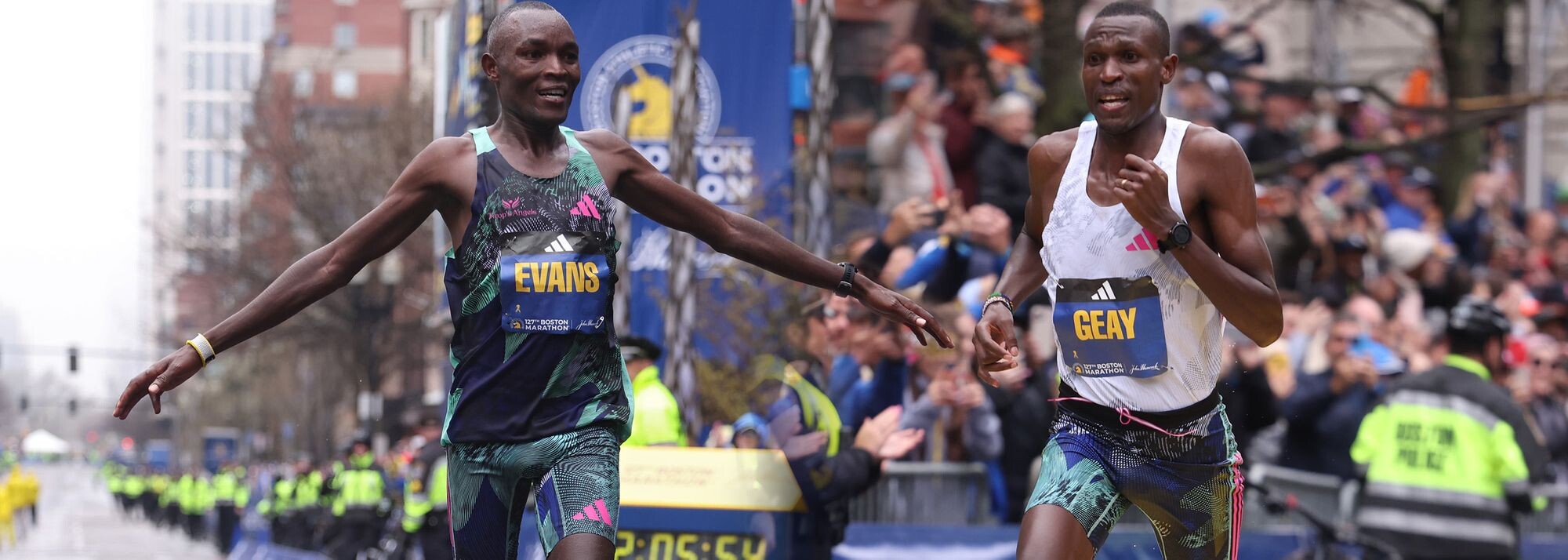
Lemma won in Valencia last month in 2:01:48, making him the fourth-fastest man in history. The Ethiopian, who also won the 2021 London Marathon, is the fastest man in this year’s Boston Marathon field, which features 20 men with sub-2:10 PBs.
Tanzania’s Geay, runner-up in Boston last year, has an identical PB to Chebet – 2:03:00 – and, like Chebet, it was also set in Valencia.
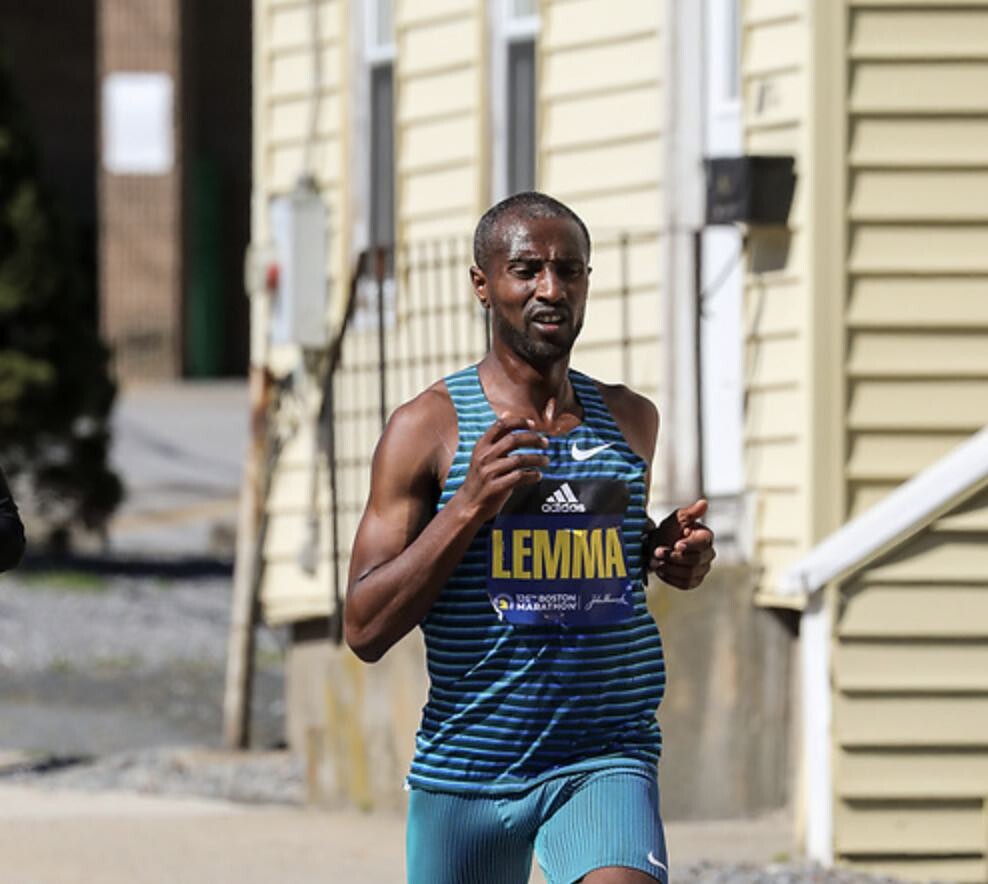
Other men in the field with sub-2:05 PBs are Kenya’s Joshua Belet (2:04:18), Ronald Korir (2:04:22), and Cyprian Kotut (2:04:34), as well as Ethiopians Haftu Teklu (2:04:43) and London and New York City runner-up Shura Kitata (2:04:49).
New York Marathon champion Albert Korir, former Japanese record-holder Suguru Osako, and Norwegian record-holder Sondre Moen are also in the field, as are Morocco’s Zouhair Talbi, winner of last week’s Houston Marathon in a course record 2:06:39, and multiple NCAA champion Edward Cheserek.
Elite field
Sisay Lemma (ETH) 2:01:48
Evans Chebet (KEN) 2:03:00
Gabriel Geay (TAN) 2:03:00
Joshua Belet (KEN) 2:04:18
Ronald Korir (KEN) 2:04:22
Cyprian Kotut (KEN) 2:04:34
Haftu Teklu (ETH) 2:04:43
Shura Kitata (ETH) 2:04:49
John Korir (KEN) 2:05:01
Mohamed Esa (ETH) 2:05:05
Suguru Osako (JPN) 2:05:29
Sondre Moen (NOR) 2:05:48
Filmon Ande (ERI) 2:06:38
Zouhair Talbi (MAR) 2:06:39
Isaac Mpofu (ZIM) 2:06:48
Albert Korir (KEN) 2:06:57
Kento Otsu (JPN) 2:08:15
Ryoma Takeuchi (JPN) 2:08:40
Segundo Jami (ECU) 2:09:05
Tsegay Tuemay (ERI) 2:09:07
Matt McDonald (USA) 2:09:49
David Nilsson (SWE) 2:10:09
Tristan Woodfine (CAN) 2:10:39
CJ Albertson (USA) 2:10:52
Chris Thompson (GBR) 2:10:52
Edward Cheserek (KEN) 2:11:07
Yemane Haileselassie (ERI) debut
by World Athletics
Login to leave a comment
Boston Marathon
Among the nation’s oldest athletic clubs, the B.A.A. was established in 1887, and, in 1896, more than half of the U.S. Olympic Team at the first modern games was composed of B.A.A. club members. The Olympic Games provided the inspiration for the first Boston Marathon, which culminated the B.A.A. Games on April 19, 1897. John J. McDermott emerged from a...
more...A Marathon Where Victory Isn’t Reserved for the Winners
CJ Albertson and Grace Kahura-Malang won the California International Marathon while dozens more fulfilled lifelong dreams to qualify for the U.S. Olympic Trials in their last chance
If there’s one race where the adage ‘To the victor go the spoils” does not ring entirely true, it’s the California International Marathon (CIM). The commanding wins of CJ Albertson and Grace Kahura-Malang were certainly deserving of celebration. But they shared in the sweet taste of victory with dozens more high-level runners on last Sunday morning.
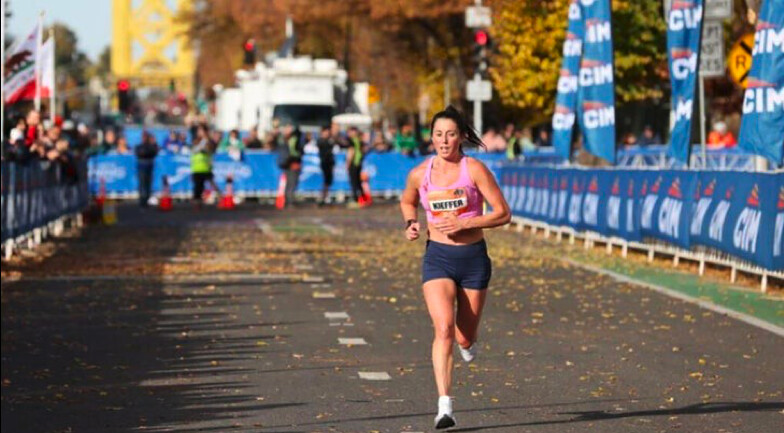
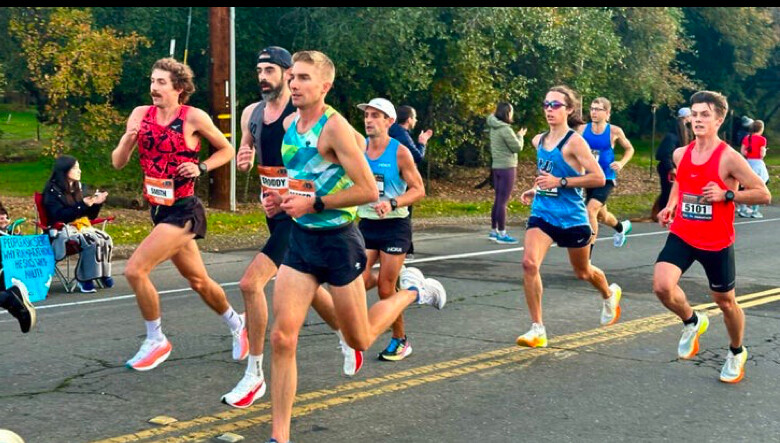
For several minutes after Albertson stormed from behind to take the men’s race in 2:11:09 and Kahura broke the tape in the women’s race with a personal best of 2:29:00, the finish line exhilaration continued to build as numerous runners sprinted their way to the finish line on M Street, adjacent to the California Capitol Mall in downtown Sacramento.
That’s because the winning prizes extended far beyond the $10,000 to something money can’t buy. American runners who could get to the finish line in time earned a qualifying berth for the 2024 U.S. Olympic Trials Marathon on February 3 in Orlando, Florida. That event will determine the six U.S. runners who will compete in next summer’s Paris Olympics, but it’s also a quadrennial benchmark of domestic distance running excellence, and the chance to run in it—especially for those who have no chance at making the Olympic team—is a badge of honor that lasts a lifetime.
Sunday’s CIM was the last opportunity to grab that proverbial brass ring, and as the time ticked down to the cutoffs—2:18 for men and 2:37 for women—41 runners realized dreams that had been several years in the making. That’s a considerably smaller number than the 109 runners who qualified four years ago, but the Olympic Trials are four weeks earlier this time around and many runners opted for earlier races.
To reach the lofty Olympic Trials qualifying (OTQ) standards, many runners had to face their inner demons as they accepted the physical, mental, and emotional challenge of running 26.2 miles faster than they ever have.
“It was very hard-fought,” said Mary Denholm, a Colorado runner who lowered her personal best by more than four and half minutes to finish in 2:36:28 and earned the OTQ time. “During the race, I tried to think as little as possible, but you know those little negative thoughts creep in. I kept saying to myself, Well, you’d be happy with a 2:37 or a 2:38, which is true, but I had to not allow myself to accept that and slow down. Marathoning is so hard. It’s a process. You really have to love the journey.”
Celebrating its 40th year, CIM has developed a reputation as one of the best domestic races for elite and age-group runners seeking personal best efforts, whether that’s chasing an OTQ or Boston Marathon-qualifying time. The race’s point-to-point, net-downhill 26.2-mile course from Folsom to Sacramento amid Northern California’s typically favorably cool, dry early December weather is ideal for running fast for any of the 10,000 participants. But what makes fast times more likely is the communal effort of the large packs of runners at nearly every pace group.
With the Trials-qualifying deadline of December 5 looming, about 200 American runners lined up at CIM to specifically chase the 2024 OTQ marks. While a few have been training with the aid of sponsorships or trying to become professional runners, the majority were amateur runners who work full-time jobs.
For some—like first-time marathoners and twenty-somethings Charlie Sweeney, Christian Allen, Ava Nuttall, and Abbie McNulty—it was the initial opportunity to meet the mark. But it wasn’t the first rodeo for many others who were back after coming up short in previous years, including thirty-somethings Denholm, Noah Droddy, Allie Kiefer, and Chad Beyer. For some who are slowing with age, or on the verge of hanging up their racing shoes for bigger career pursuits, CIM might have been the final shot of their competitive running careers.
In the moments before the race in Folsom, the nervous energy of every elite runner was palpable as they did their final pre-race strides and stretches, each one carrying with them their own long backstory that brought them to the brink of their dreams. After a brief moment of calm on the starting line, the gun went off and the enticing challenge began.
“This was my shot,” said Droddy, a 33-year-old Salomon-sponsored pro from Boulder, Colorado, who had a breakthrough 2:09:09 runner-up performance at The Marathon Project in 2020 but, because of a variety of injuries, hadn’t finished a marathon since. “I qualified on the last day in 2016, and so this was another full-circle moment to try to do it on the last day again.”
For the next two-plus hours, every runner locked into the silent rhythm of their race pace—each with their own goal in mind—holding onto the cadence of the random runners nearby. This is all the while knowing that consistent effort would gradually transition from being smooth and tolerable to eventually becoming extremely difficult by the later miles of the race.
Allen, a marathon rookie from Salt Lake City eager to make his mark, boldly opted to run off the front from the start with New Zealand’s Matt Baxter and Kenyan Milton Rotich, while Albertson, a Fresno-based runner who has been one of the most consistent elite-level marathoners in the U.S. for the past several years, looked calm and content as he ran just off the lead near the front pack.
While many OTQ-seeking American women grouped together in the quest for a 2:33 to 2:37 finish, Kahura-Malang, a 30-year-old Kenyan runner who lives near Boulder, started quickly and tagged along with a much-faster group of men with hopes of breaking 2:30 for the first time.
“I really didn’t know how far I was from the other women, but I didn’t want to focus on that,” she said. “I just wanted to keep running fast.”
Achieving success in a marathon can be a fickle task—one that relies on equal parts sufficient training, optimal fueling, and mental tenacity. But the magic of an elite-level marathon, especially CIM during a pre-Olympic Trials year, can be tied to finding confidence running amid the collective rhythm of a pack of like-minded runners, at least until things get difficult at the crux of the race somewhere near mile 20.
Maintaining race pace and grinding through the final miles is something every runner experiences, each one to varying success. That’s where inspirational mantras, acknowledging motivational words written on an arm, or a variety of other mental tricks come into play.
“We had a great group for a while, and then about 20 miles, it started to thin out,” said Jacob Shiohira, 27, from Bentonville, Arkansas. He sliced seven minutes off his personal best with his 13th-place, 2:16:34 finish to make the OTQ cut. “The last three miles turned into a grind, but everyone’s in the same boat, and that’s what makes it special.”
The 26-year-old Allen, fresh off finishing an All-American track and cross country collegiate career at Brigham Young University, spent the summer racing shorter distances on roads and trails. He stuck with his gutsy strategy to lead the race until his legs began to tighten up at the 23-mile mark. Albertson had let Allen and Rotich get ahead of him on a few of the later hills in the race but patiently stayed within himself and seized the lead late in the race to open up a two-minute advantage before the finish.
Rotich finished two minutes after Albertson in 2:13:04 for second, followed by Charlie Sweeney, a 24-year-old runner from Boulder, who completed a stunning debut marathon with a third-place, 2:13:41 finish to earn the Olympic Trials-qualifying standard. After that, Baxter, a Kiwi runner who runs for NAZ Elite, put down a new personal best of 2:14:08, followed by Eritrea’s Amanuel Mesel (2:14:11). From there, Robert Miranda (2:14:43), Jerod Broadbooks (2:14:58) and Allen (2:15:01) led a parade of 27 American men who celebrated securing their OTQ times.
Droddy made it too, finishing 17th in 2:16:56, to earn one of the celebratory golden OTQ flags CIM handed out to each of the qualifiers.
“I didn’t care about the time at all, just as long as it was under 2:18,” said Droddy, who also qualified in 2016 and 2020. “I was just happy to get it done. It means a lot because now I know I can join my teammates at the Olympic Trials.”
More than four minutes after Kahura-Malang ran away with the women’s title, Kiefer (2:33:26) led the charge of a long string of American women who cruised in under the OTQ cutoff. Once a top American runner, the 36-year-old from Austin, Texas, hadn’t finished a marathon since she placed seventh in New York in 2018. Like a lot of runners, she’s been through a lot of challenges in recent years, including injuries, races she’s dropped out of (including the 2020 U.S. Olympic Trials in Atlanta), relocating to new cities, changing coaches, and general motivation.
“I’m back to the basics of having fun with it,” Kiefer said. “There’s no pressure right now. I just wanted to have a good experience, and it was a great experience. It feels validating to get back to the Trials. It’s just nice to go out there and do the part you love.”
Nuttall, 22, was perhaps one of the positive surprises of the day. A senior at Miami University in Ohio, where she was the top cross country runner for the Redhawks this fall, she finished her debut marathon in third place in 2:35:09. After that it was Kaylee Flanagan, 28 who earned her first OTQ with a strong 2:35:24 effort to join her older sister and Asics pro Lindsay Flanagan in Orlando. After that it was professional trail runners Rachel Drake (2:35:28) and Peyton Thomas (2:35:42), who finished fifth, and sixth, respectively. (Drake is also the mother to 14-month-old son, Lewis.)
Nine more women earned the OTQ time—14 total—including Denholm, who finished 13th in 2:36:28.
But amid the joy of dreams coming true, there was also the heartbreak of near-misses. Tammy Hsieh sprinted to the finish just in the nick of time, crossing in exactly 2:37:00 to make the women’s cut, but moments later Gina Rouse (2:37:10) and Jennifer Sandoval (2:37:11) narrowly missed it and went home disappointed.
On the men’s side, Duriel Hardy dashed across the line in 2:17:56 to become the final men’s OTQ’er, but then Alexander Helmuth came across the line two seconds too late in 2:18:02.
After a record 511 women qualified for the 2020 U.S. Olympic Trials Marathon in Atlanta—nearly double the number of male qualifiers—the women’s standard was lowered by eight minutes, down from 2:45 to 2:37. The new mark equates to a hefty 18 seconds per mile faster, down from 6:18 minute mile pace to 6 minutes flat. Denholm, who qualified in 2020 with a 2:42:02 effort at the 2019 CIM, was one of hundreds of women who spent the past several years trying to make that big leap.
After running a personal best of 2:40:59 at the 2022 Boston Marathon, Denholm hoped to continue her progression and earn her qualifying time months ago. But the marathon is a fickle event because training never goes perfectly and something—injuries, work, life—always gets in the way. And sometimes everything goes right and it’s just not your day on race day.
After dealing with a torn labrum and then going through a divorce, career changes, and a move from California to Colorado, the 36-year-old running coach targeted last summer’s Grandma’s Marathon in Duluth, Minnesota—another domestic race on par with CIM when it comes to providing a competitive platform for elite and sub-elite runners to excel.
But despite a good training block, Denholm struggled in that race and finished in 2:43:19. After that, she refocused her training with the help of coach and three-time OTQer Neely Gracey and set her sights on the September 24 Berlin Marathon, only to come down with COVID after she arrived in Germany. Not wanting to give up, she retooled her training one more time and registered for CIM as a last-ditch effort.
She was on 2:36 pace the entire way, running near-identical 13.1-mile splits of 1:18:17 and 1:18:11, but needed the encouragement of friend, Sofie Schunk, to get her through the final miles. Schunk, 31, of Albuquerque, finished six seconds ahead of her in 2:36:22.
“I went to a really dark place out there and had to fight through that,” she said. “It was awesome to have other women out there to go for it with and encourage along the way. I split some of my faster miles near the end, and I’ve never been able to do that, so that was a huge victory for me. I hope this can be encouraging to other women because I really think everyone is limitless. I’ve just worked really hard to get where I am and I just want others to feel encouraged.”
by Outside Online
Login to leave a comment
Fresno Kid CJ Albertson rallies to take California International Marathon title in Sacramento
CJ Albertson of Fresno came from behind and Kenyan runner Grace Kahura logged a personal best, each defeating a deep, fast field Sunday to win the 40th annual California International Marathon in Sacramento. The course, unchanged in its 40-year history, a Boston Marathon and U.S. Olympic Trials qualifier dubbed by marathon watchers as the fastest in the West, did not disappoint.
More than 9,600 runners took to the 26-mile downhill course from Folsom to the streets of downtown Sacramento on a cool, dry day under ideal conditions. But it was Fresno’s Albertson, 30, and Kahura, 30, of Longmont, Colorado, who emerged victorious.
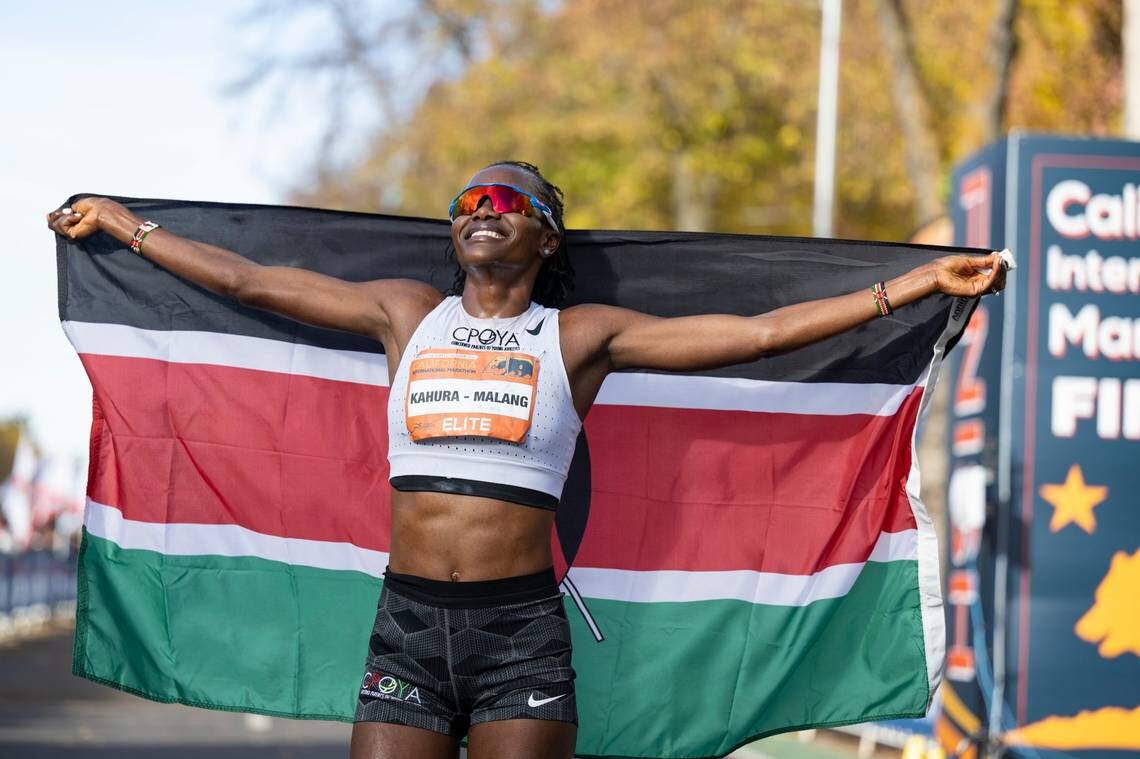
Albertson clocked in at 2:11:09, flirting with CIM course record territory; followed by Milton Rotich, of Duluth, Minnesota, at 2:13:04; and Charlie Sweeney, of Boulder, Colorado, at 2:13:41, in a near-photo finish for second and third. Kahura’s finish at 2:29 flat outpaced Austin, Texas’ Allie Kieffer’s 2:33:26 and Ava Nuttall, of Rochester, Minnesota, who finished third in 2:35:09.
The Kenyan runner’s 2:29 also beat her personal best of 2:30.14, posted in June at the Grandma’s Marathon in Duluth. Kahura’s time led a deep and fast women’s field in 2023 that featured 43 runners ahead of the 2:37 Olympic trial qualifying pace at the marathon’s halfway mark.
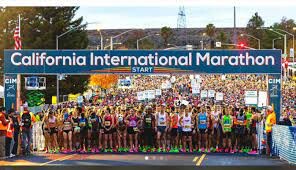
Kahura exulted in triumph at the finish, stretching her nation’s banner wide behind her. Albertson is among the country’s elite marathon runners. A cross-country and track standout at Arizona State University who ran seventh in the marathon at the 2020 Olympic Games in Tokyo, and set an indoor marathon world record in 2019, Albertson finished eighth at last year’s California International Marathon and was a near-miss second-place finisher in Sacramento in 2019.
Albertson lurked for miles as Christian Allen of Orem, Utah, and Amanuel Mesel, of Flagstaff, Arizona, dueled in tandem for the top spot. But Albertson made his move as the race pushed into Sacramento.
He overtook a fading Mesel for second at the 35K mark, then set his sights on the frontrunning Allen. By Mile 23, Albertson had overtaken Allen for a lead he would never relinquish.
by Darrell Smith
Login to leave a comment
California International Marathon
The California International Marathon (CIM) is a marathon organized by runners, for runners! CIM was founded in 1983 by the Sacramento Running Association (SRA), a 501(c)(3) non-profit organization. The SRA Board of Directors is comprised of runners with a combined total of 150+ years of service to the CIM. The same route SRA management created for the 1983 inaugural CIM...
more...Ethiopian runner breaks women-only world 50K record in South Africa
Ethiopia’s Emane Seifu Hayile broke the women-only 50K record at a race in South Africa on Sunday, running 3:00:29. Competing in the Nedbank Runified Breaking Barriers Ultramarathon in Gqeberha, a coastal South African city, Hayile shaved almost four full minutes off the previous women-only world record. She was less than a minute off American Des Linden‘s 50K women’s mixed-gender race world record of 2:59:54 from 2021.
Women-only races mean that there are no men in the field. Because of the potential benefit that female runners can receive while pacing off male athletes, World Athletics recognizes two types of records for road races, making it possible for Hayile’s 50K record to co-exist with the one belonging to Linden, which she ran alongside male pacers.
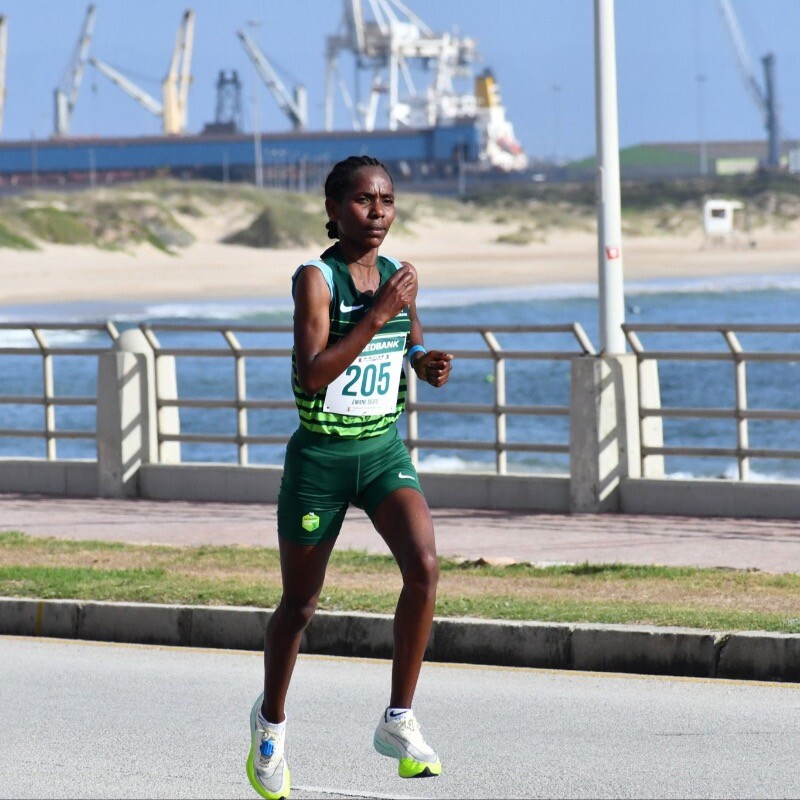
Despite running in a women-only race, Hayile came extremely close to claiming the outright 50K world record, finishing mere seconds behind Linden’s time. She ran with two fellow Ethiopians and a Swedish athlete in the opening stages of the race, passing through 10K in just over 36 minutes and 15K in 54. At around 20K, Hayile and her compatriots dropped the Swedish runner and carried on in a three-way battle. At the halfway mark, the trio clocked a split of 1:30:28, just shy of sub-three-hour pace.
Over the next 10K or so, Hayile dropped her two remaining challengers, and by the 40K checkpoint she was almost a minute ahead of second place. She clocked a 2:32 marathon and managed to accelerate as she neared the finish, crossing the line just north of three hours. Hayile won the race by six minutes and bettered the women-only record by four minutes.
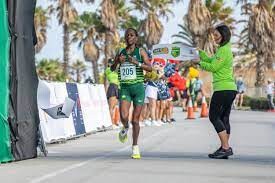
“I am lost for words and don’t know how to describe it,” Hayile told World Athletics after the race. “All in all, it was an exciting event. I’m very happy.”
In the men’s race, South Africa’s Tete Dijana ran a course record of 2:39:04. This result is the second-fastest 50K of all time, sitting just 20 seconds behind American CJ Albertson‘s world record of 2:38:44, which he ran in Oct. 2022.
by Ben Snider-McGrath
Login to leave a comment
Albert Korir, Shura Kitata and Gabriel Geay confirmed to take on Kipchoge in Boston
Major marathon winners Albert Korir and Shura Kitata, as well as 2015 world champion Ghirmay Ghebreslassie, are among the many additions to the men’s elite field for the Boston Marathon on April 17, organizers of the World Athletics Elite Platinum Label road race announced today (11).
Today’s announcement expands upon four previously announced men’s entrants including world record-holder and double Olympic champion Eliud Kipchoge, reigning Boston Marathon champion Evans Chebet, 2021 winner Benson Kipruto, and two-time victor Lelisa Desisa.
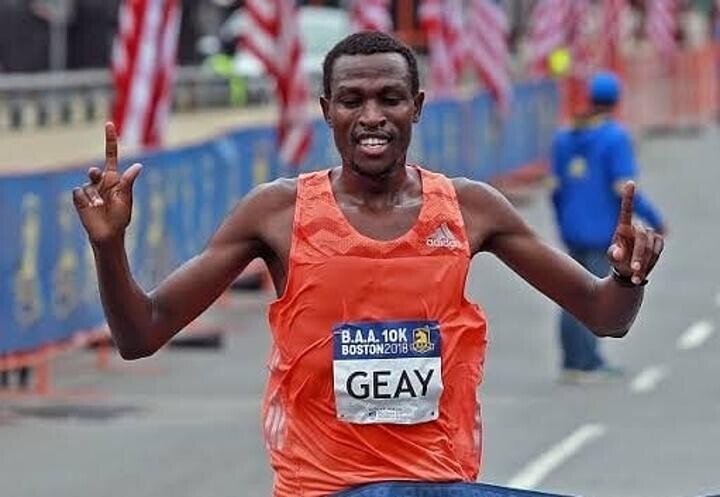
It brings the total number of sub-2:07 performers in the field to 15. Eight of those have bettered 2:05.
Korir, the 2021 New York Marathon champion, made his Boston debut last year and finished sixth. But Kitata, who beat Kipchoge to win the 2020 London Marathon champion, and Ghebreslassie will be making their Boston Marathon debuts.
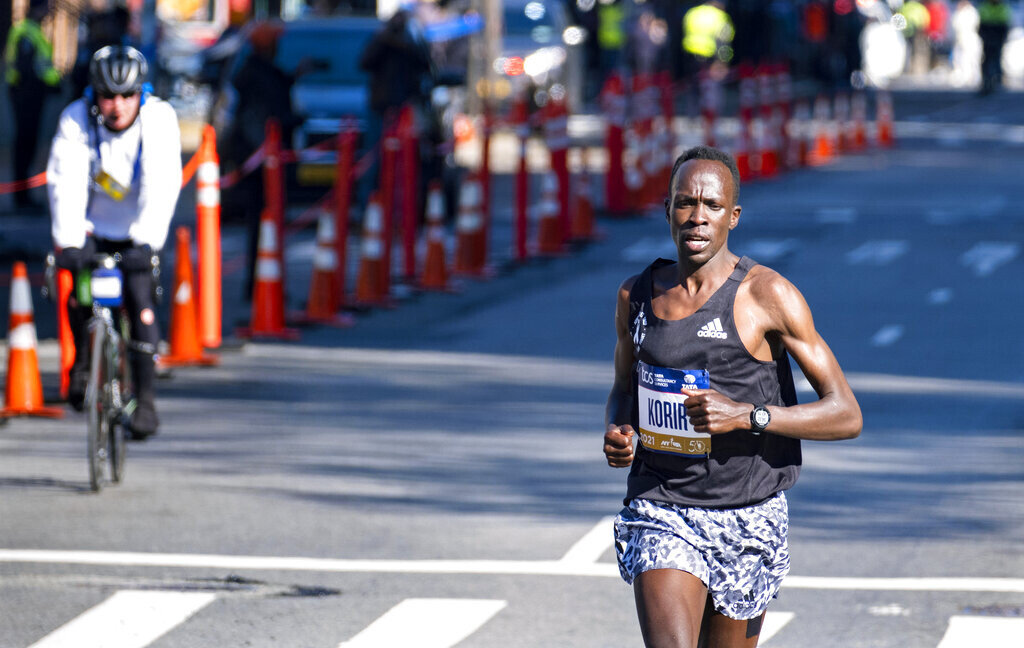
Tanzanian record-holder Gabriel Geay is the third fastest man in the field, after Kipchoge and Chebet. Geay, who finished runner-up at the Valencia Marathon last month in 2:03:00, has had success racing on the roads of Boston, winning the 2018 Boston 10K and placing fourth at last year’s Boston Marathon.
“I am excited to be returning to the Boston Marathon this year,” said Geay. “I fulfilled a dream by racing in Boston last year, but my goal is to one day win the race, and I hope that 2023 will be my year.”
Brazilian Olympian and national record-holder Daniel Do Nascimento will make his Boston debut, as will Ethiopia’s Herpasa Negasa, a 2:03:40 marathon runner. Augustine Choge, one of the most versatile runners in the world, will also line up in Boston, hoping to conquer the marathon distance once and for all.
After a 2:08:16 marathon debut in Chicago last year, USA’s Conner Mantz will take on the Boston course for the first time. He will be joined by world 50km record-holder CJ Albertson.
by World Athletics
Login to leave a comment
Boston Marathon
Among the nation’s oldest athletic clubs, the B.A.A. was established in 1887, and, in 1896, more than half of the U.S. Olympic Team at the first modern games was composed of B.A.A. club members. The Olympic Games provided the inspiration for the first Boston Marathon, which culminated the B.A.A. Games on April 19, 1897. John J. McDermott emerged from a...
more...Boston Athletic Association announces 2023 Boston Marathon men´s field
The Boston Athletic Association (B.A.A.) announced today the men’s professional field for the 127th Boston Marathon, featuring 15 men who’ve run under 2:07 for the marathon distance, as well as multiple Abbott World Marathon Major race champions, Olympic and Paralympic stars.
Today’s announcement expands upon four previously announced men’s entrants including world record holder and double Olympic gold medalist Eliud Kipchoge, reigning Boston Marathon champion Evans Chebet, 2021 winner Benson Kipruto, and two-time victor Lelisa Desisa. A total of 109 men’s athletes from 21 countries are in this year’s professional field across the men’s Open, Wheelchair, and Para Athletics Divisions.
“The Boston Marathon is known for its competitiveness, with many races decided in the final meters on Boylston Street,” said Mary Kate Shea, B.A.A. Director of Professional Athletes. “This year’s field brings together athletes who’ve excelled at both speed and championship-style racing. Combined with the women’s professional field announced on Monday, this will be the fastest and most decorated Boston Marathon across all of our divisions in race history.”
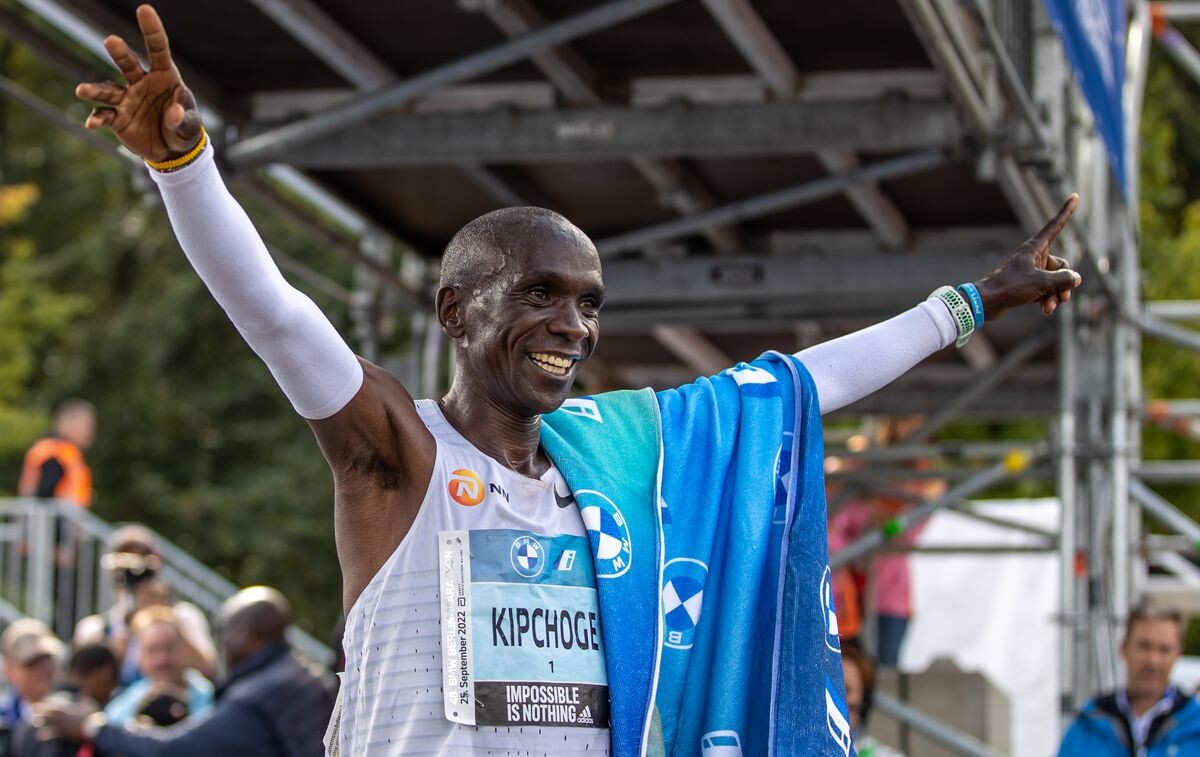
Behind Kipchoge and Chebet, the fastest man in the field will be Tanzanian national record holder Gabriel Geay, who finished runner-up at the Valencia Marathon last month in 2:03:00. Geay has had success racing on the roads of Boston, winning the 2018 B.A.A. 10K, placing fourth at last year’s Boston Marathon, and finishing in second and third at the B.A.A. Half Marathon in 2019 and 2018, respectively.
“I am excited to be returning to the Boston Marathon this year,” said Geay. “I fulfilled a dream by racing in Boston last year, but my goal is to one day win the race, and I hope that 2023 will be my year. Thank you, Boston for the opportunity!”
Joining Geay will be past Abbott World Marathon Majors winners including Albert Korir of Kenya (2021 New York City champion), Ghirmay Ghebreslassie of Eritrea (2015 World Championships gold medalist and 2016 New York City champion), and Shura Kitata of Ethiopia (2020 London Marathon champion). Brazilian Olympian and national record holder Daniel Do Nascimento will make his Boston debut, as will Ethiopia’s Herpasa Negasa, a 2:03:40 marathoner.
Last year’s seventh-place finisher and top American, Scott Fauble, returns for his fourth Hopkinton-to-Boston race, and will be joined by 50K world record holder CJ Albertson. After a 2:08:16 marathon debut in Chicago last year, Conner Mantz will take on the Boston course for the first time. He is coached by Olympic marathoner Ed Eyestone.
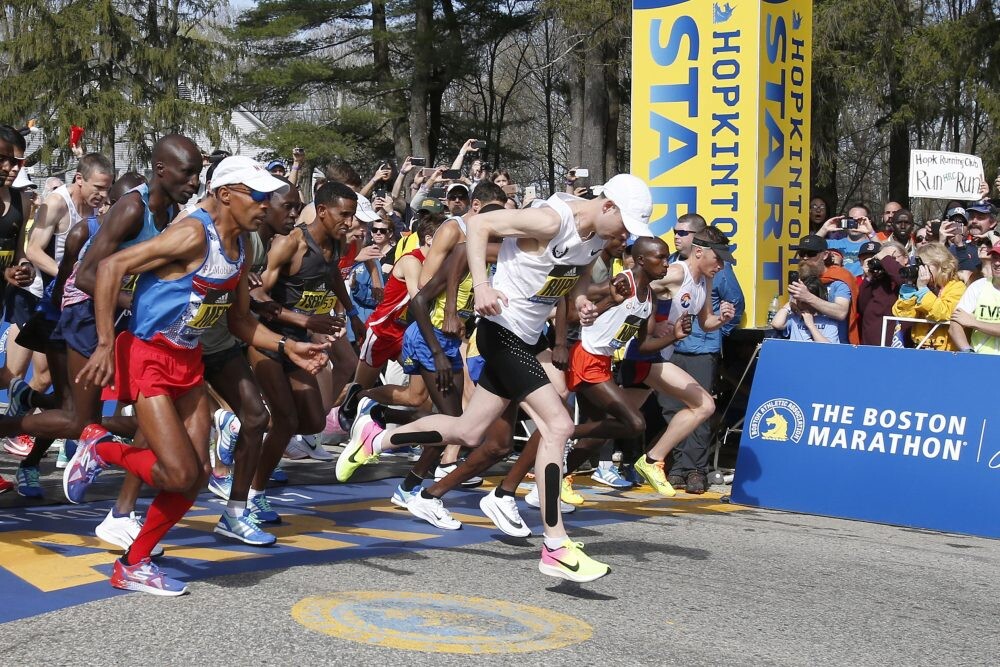
“I love the Boston Marathon. It’s one of the greatest sporting events in the world,” said Fauble. “It has a way of bringing the best out of people.”
"Boston is such a historic marathon, and I want to be a part of that history,” said Mantz. “I love the aspect of racing with no pacers and hills that break up rhythm, and Boston has both of those. When you add in the competition Boston is bringing this year with Eliud Kipchoge and many others, it makes the race so exciting!"
Ben True, a Maine native and four-time winner of the B.A.A. 5K, also is part of the American field. B.A.A. High Performance Team members Matt McDonald, Paul Hogan, and Jonas Hampton will have the hometown edge; McDonald set a new B.A.A. club record and lifetime best of 2:09:49 in Chicago last fall.
American Daniel Romanchuk will return as defending champion in the wheelchair division, coming off a 1:26:58 victory last April. Romanchuk also won Boston in 2019 (1:21:36), though he looks to be challenged by wheelchair marathon world record holder and reigning Paralympic marathon gold medalist Marcel Hug. Hug returns in search of his sixth Boston Marathon title and holds the Boston course record of 1:18:04. In 2022 the Swiss ‘Silver Bullet’ won the B.A.A. 5K in 10 minutes, 5 seconds, a course record time.
“Nothing can compare with the excitement and anticipation at the Boston Marathon,” said Romanchuk. “I’m incredibly excited and honored to be part of what should be a great race through the hills and all the way to Boylston Street.”
Aaron Pike, last year’s wheelchair division runner-up, and Ernst van Dyk, a ten-time Boston winner, are also racing. A $50,000 course record bonus is available to any open division or wheelchair division athlete who breaks a course record.
Paralympians Matthew Felton and Atsbha Gebre Gebremeskel lead the Para Athletics Division in the T46 classification (upper-limb impairment). American record holder and Massachusetts native Chaz Davis will look to defend his T12 (vision impairment) Para title.
Headlining the T62 and T63 classification are Marko Cheseto Lemtukei and Brian Reynolds. Cheseto Lemtukei earned a victory in 2:37:01 last year, while Reynolds set a pending T62 world record of 1:25:46 at the B.A.A. Half Marathon in November.
“A perfect society is one that sees diversity of its members as her strength,” said Cheseto Lemtukei, who returns as a two-time Boston Marathon Para Athletics Division champion.
The 127th Boston Marathon will be held on Monday, April 17, 2023 – Patriots’ Day in the Commonwealth of Massachusetts—and will feature 30,000 participants.
by Boston Athletic Association
Login to leave a comment
Boston Marathon
Among the nation’s oldest athletic clubs, the B.A.A. was established in 1887, and, in 1896, more than half of the U.S. Olympic Team at the first modern games was composed of B.A.A. club members. The Olympic Games provided the inspiration for the first Boston Marathon, which culminated the B.A.A. Games on April 19, 1897. John J. McDermott emerged from a...
more...Ratified: world records for Yehualaw, Knighton, Nugent and Mokoka
Women’s world 10km record (mixed race)29:14 Yalemzerf Yehualaw (ETH) Castellon 27 February 2022
Men’s world U20 200m record19.69 Erriyon Knighton (USA) Eugene 26 June 2022
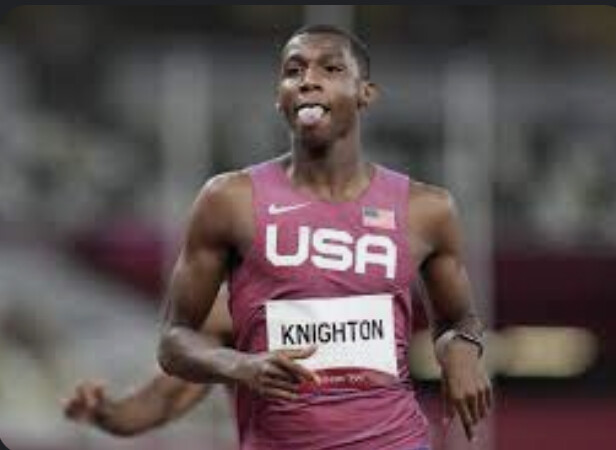
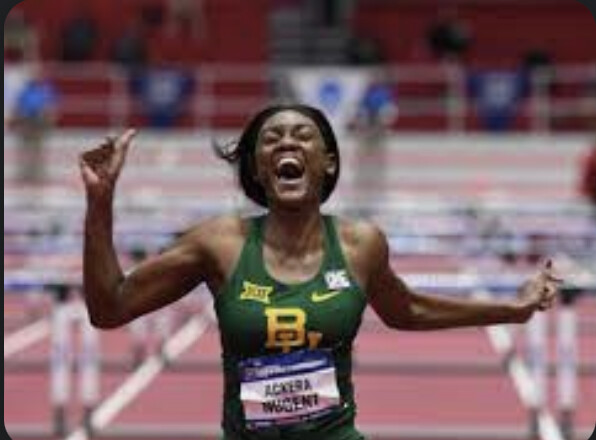
Women’s world U20 indoor 60m hurdles record7.92 Ackera Nugent (JAM) Fayetteville 13 March 2021
Men’s world 50km record2:40:13 Stephen Mokoka (RSA) Gqeberha 6 March 2022
The world 10km record of 29:14 set by Yalemzerf Yehualaw in Castellon on 27 February has been ratified.
The world U20 marks by Erriyon Knighton in the 200m and Ackera Nugent in the 60m hurdles are also now officially in the record books, as is the world 50km record set by Stephen Mokoka.
In Castellon, Yehualaw became the first woman in history to dip under the 29:30 and 29:20 barriers on the roads, running 29:14 to improve the ratified record of 29:43 set by Joyciline Jepkosgei in Prague on 9 September 2017 and the mark of 29:38 achieved on 3 October 2021 by Bahrain’s Kalkidan Gezahegne in Geneva.
In a race held under ideal weather conditions, and with pacing assistance from Dutch distance runner Richard Douma, Yehualaw set off at a swift pace. They covered the opening kilometre in 2:51 and by 3km, reached in 8:36, Yehualaw was on target for a sub-29-minute finish.She went through halfway in 14:28 – one of the fastest 5km clockings in history – and was still inside 29-minute pace. The Ethiopian slowed a bit during the second half, but a final kilometre of 2:52 (and a second half of 14:46) was enough to carry her to a 29:14 finish.
“I knew I had the world record in my legs and wanted to produce a challenging performance for any athletes who may attempt the record in the near future,” she said.
Knighton achieved his world U20 200m record at the US Championships on 26 June, running 19.69 to improve on his own previous ratified record of 19.84, also set at Hayward Field in Eugene on 27 June 2021. Knighton had opened his season with a time of 19.49 in Baton Rouge, but that mark could not be ratified as a world U20 record because specific anti-doping testing requirements were not met.
Nugent, meanwhile, achieved her world U20 indoor 60m hurdles record when winning at the NCAA Indoor Championships in Fayetteville on 13 March 2021. Other performances that were faster than the previous ratified world record of 8.00 set by Klaudia Siciarz in Torun on 18 February 2017 – including Nugent’s own 7.91 earlier in 2021 – did not fulfil all the criteria for ratification. Nugent’s 7.92 does meet the criteria, so becomes the world U20 record.
In March this year, Mokoka ran 2:40:13 at the Nedbank Runified 50km in Gqeberha to improve on the inaugural world 50km record of 2:42:07 that had been set by Ethiopia’s Ketema Negasa at the same event last year.
Mokoka is now the official world 50km record-holder, although CJ Albertson clocked 2:38:43 in San Francisco on 8 October, and that performance has also been submitted for record ratification.
by World Athletics
Login to leave a comment
Mokoka retains title, Dinke breaks record in Cape Town
Defending champion Stephen Mokoka claimed a third win in the Sanlam Cape Town Marathon, a World Athletics Elite Label road race, while Meseret Dinke broke the race record to win the women’s event on Sunday (16).
Multiple South African champion Mokoka broke the tape in 2:09:59, two seconds faster than his winning 2:10:01 last year and the fourth-fastest winning time in the race’s history. Second place went to Ethiopian Derseh Kindie in 2:11:27, with his compatriot Dagnachew Adere outsprinting Kenya’s Raymond Kipchumba Choge to take third place, 2:11:55 to 2:11:56.
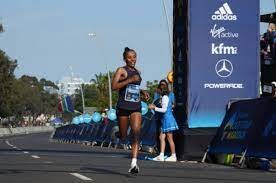
“This was a tough, tough course,” said Mokoka. “Normally at 25km you start enjoying a marathon, but at 28km today, we climbed that hill in District Six and it got really hard for a while, but overall I really enjoyed the race.”
Mokoka ran a world 50km record of 2:40:13 in Gqeberha in March, a record that CJ Albertson took to 2:38:43 eight days ago. Asked what his Cape Town Marathon win means, Mokoka added: “I am delighted to win in Cape Town for a third time. I have won races overseas, too, but this is still special. Records are meant to be broken, but titles stay forever, and this win means more to me than just running a fast time. It’s also about the memories of our runs.”
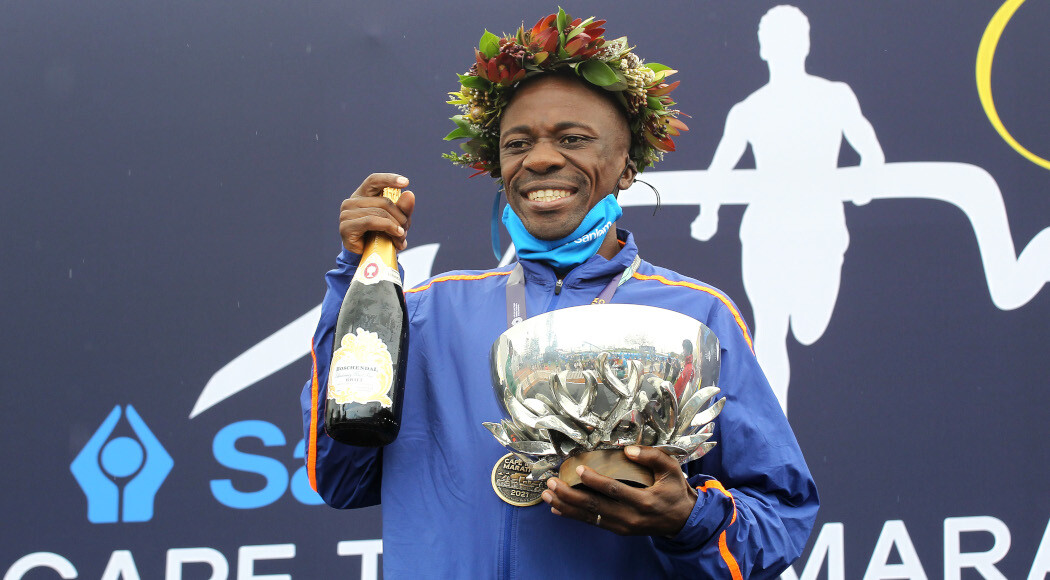
In the women’s race, Dinke of Ethiopia took top honours in 2:24:04, smashing the 2:25:44 event record run in 2021 by Lydia Simiyu and also improving her personal best of 2:25:12. Second over the line was Tecla Kirongo in 2:27:57, also setting a PB, with her Kenyan compatriot Judith Cherono taking third in 2:30:34.
“I enjoyed the race thoroughly, but unfortunately I had to do it by myself,” said Dinke. “When you run by yourself it is so difficult to control your pacing, but I managed. If everything had been perfect, I had hoped to run a 2:20 or 2:21. The course was a little tougher than other international races, but I was running within myself, and felt confident that I could keep a consistent pace until the end.”
Leading results
Women
1 Meseret Dinke (ETH) 2:24:04
2 Tecla Kirongo (KEN) 2:27:57
3 Judith Cherono (KEN) 2:30:34
4 Zinashwork Yenew (ETH) 2:34:03
5 Webalem Bazanew (ETH) 2:34:24
Men
1 Stephen Mokoka (RSA) 2:09:59
2 Derseh Kindie (ETH) 2:11:27
3 Dagnachew Adera (ETH) 2:11:55
4 Raymond Kipchumba Choge (KEN) 2:11:56
5 Samuel Moloi (RSA) 2:14:39.
by World Athletics
Login to leave a comment
Cape Town Marathon
The Sanlam Cape Town Marathon is a City Marathon held in Cape Town, South Africa, which is sponsored by Sanlam, the City of Cape Town and Vital Health Foods. The marathon is held on a fast and flat course, starting and finishing in Green Point, near the Cape Town Stadium. Prior to existing in its current format, the Cape Town...
more...U.S. marathoner CJ Albertson reclaims 50K world record
Fresno, Calif.’s CJ Albertson, 29, set out to reclaim the 50K world record on Saturday at the 35th Annual Ruth Anderson Memorial Run in San Francisco, and he accomplished exactly that in 2:38:44. The Ruth Anderson Memorial Run is held on a certified, 7.24 km (4.5-mile) loop on either an asphalt path or groomed dirt shoulder around a lake. There is approximately 30.5 meters (100 feet) of elevation gain and loss per loop.
A coach and pro-runner for Brooks, Albertson previously held the 50K record in 2020, from a 50,000 meter race held on a Fresno track in 2:42:30. Albertson was the lone runner in the event (although he did have pacers), which was organized by Brooks and billed as an official record attempt.
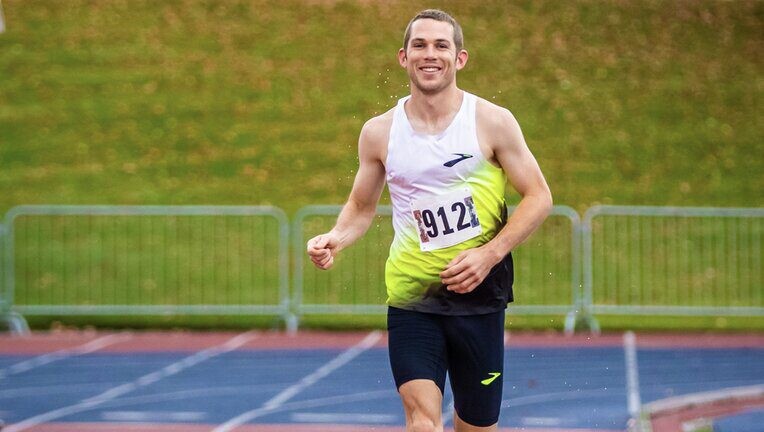
In most other types of racing, road and track results are kept separate, but that’s not the case with ultra distances due to a 2014 rule introduced by the International Association of Ultrarunners (IAU).
Albertson’s 2020 record had been bested several times since 2020, most recently when South Africa’s Stephen Mokoka ran 2:40:13 at the 2022 Nedbank Runified 50K in Gqeberha, South Africa, breaking compatriot Ketema Negasa’s former world record of 2:42:07, also set at the 2021 Nedback event. Alberson currently also holds the indoor marathon world record of 2:17:59, set in 2019 at The Armory in New York City.
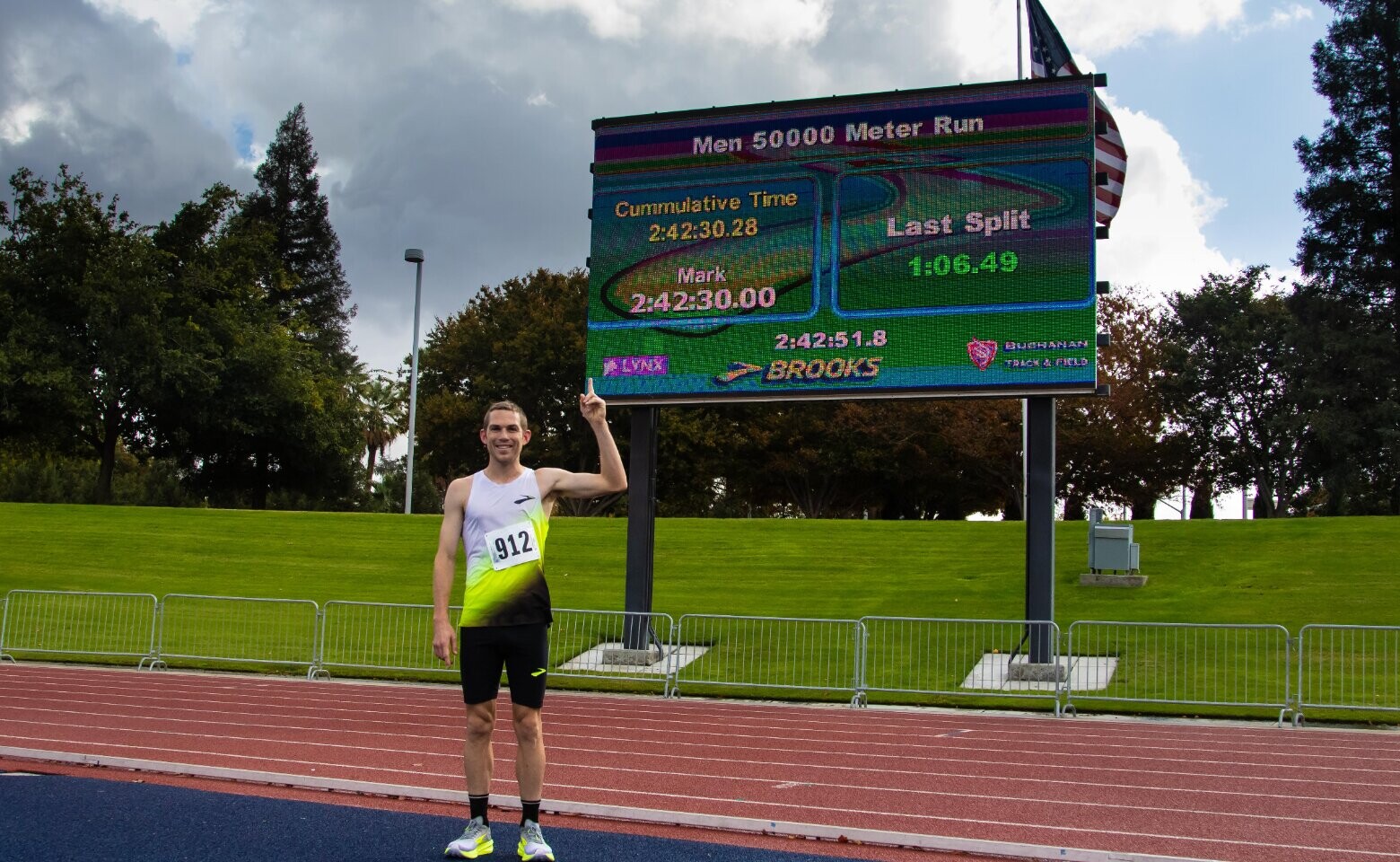
Albertson, whose primary event is the marathon, is also known for his unconventional race strategy: he led for 20 miles of the 2021 Boston Marathon, and ran with the same tactic at the 2022 Boston Marathon; he finished in 10th and 13th place, respectively, setting a PB in the 2022 event in 2:10:23. Albertson says upping the distance to tackle 50K record attempts is natural.
“The 50k distance has never seemed super long or much different from a marathon,” Albertson says. When asked about the role of mental toughness in his racing by iRunFar, he explained: “I don’t think that I endure pain for a long time, because I don’t really think that’s possible. I think that I don’t feel it. I put myself in the position and the mind frame where it’s fun.”
by Keeley Milne
Login to leave a comment
Here's How How Evans Chebet of Kenya Won the 2022 Boston Marathon
He led a Kenyan podium sweep in the deepest Boston men’s pro field ever.
Thanks to covering the stretch between 35 and 40 kilometers in an astounding 13:55, Evans Chebet of Kenya won the 2022 Boston Marathon in 2:06:51.
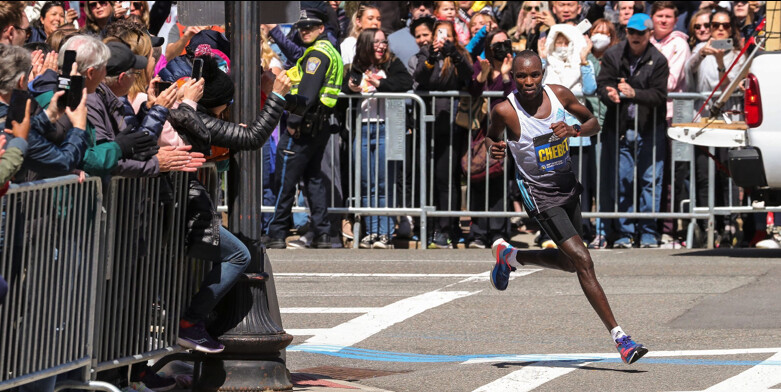
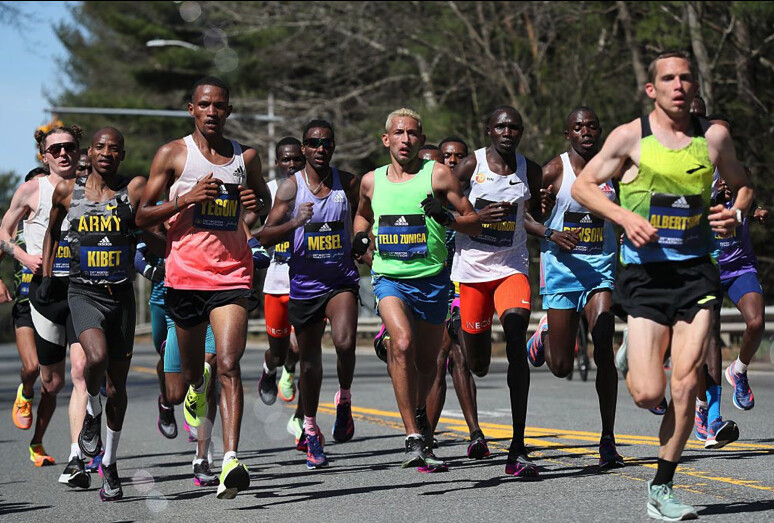
Lawrence Cherono, the 2019 winner, and Benson Kipruto, the 2021 champion, made it a Kenyan podium sweep. Cherono placed second in 2:07:21. Kipruto took third in 2:07:27.
Scott Fauble was the top American, placing seventh in 2:08:52. Fauble was also the top American in 2019, when he also finished seventh. Elkanah Kibet, ninth in 2:09:07, and CJ Albertson, 13th in 2:10:23, were the second and third U.S. finishers. All three set personal bests.
Here’s a full breakdown of the 2022 Boston Marathon men’s race, from how the race was won to the biggest surprise to the $$$.
The Winner: Evans Chebet
Chebet, 33, has been near the top of world marathoning for the past few years. Only one man in the field has a better personal best than his 2:03:00, and before today he had placed first or second in 10 marathons. But his Boston win was still a big step forward in his career.
Chebet’s best races before today were in high-level marathons such as Valencia, Prague, and Seoul, not in World Marathon Majors. He placed third in Berlin in 2016, fourth in Tokyo in 2017, and fourth last fall in London. He started Boston once before today, in 2018, when he was among the one-third of elite entrants who dropped out during that year’s horrific wind, rain, and cold.
Certainly his momentum was heading in the right direction for today’s Boston. Other than that fourth in London in October, he has been on a winning streak, taking titles in Buenos Aries in 2019 and Lake Biwa and Valencia (where he set his PR) in 2020. Chebet will no doubt cherish but not be complacent about his new status among the world’s best. He likely knows that since 2009, only one man, Lelisa Desisa of Ethiopia (2013 and 2015), has won more than one Boston title.
Where the Race Was Won
Chebet covered the 22nd mile in 4:27. Or as Geay apparently thought, “4:27?!” The Tanzanian looked at his watch, either in disbelief or in regret about how much time remained in the race now that he’d opted to go with Chebet. Whatever the case, Chebet dropped Geay a couple of minutes later en route to a 4:26 23rd mile. Then he ran another 4:26 mile.
Chebet’s 13:55 5K between 35K and 40K is good enough to win most open 5K road races. Cherono and Kipruto gave chase and overtook Geay in the process, but Chebet’s victory was never in doubt once he started his fabulous display of late-race speed. Chebet acknowledged as much at the postrace press conference, saying through an interpreter he was confident that his move would get him the win.
The Biggest Surprise
It was a fast, deep race. The 10th finisher, Kinde Atanaw of Ethiopia, ran 2:09:16. That’s 35 seconds faster than Benson Kipruto ran to win the 2021 edition.
Wait, that’s surprising? Wasn’t this said to be the best Boston field in years? Didn’t the postponement of the London Marathon to October funnel that many more elites to the start line in Hopkinton? And doesn’t everyone run fast in the super shoe era?
Well, there were super shoes six months ago when winner Kipruto was the only one to break 2:10. Also, despite what may have appeared to be the case on television, the weather was challenging. The wind was slight—usually no more than 5 miles per hour while the pros were racing—but not favorable. Des Linden, who won during the 2018 monsoon and knows from wind, said there was a persistent headwind. A weather team from the University of Massachusetts at Lowell who tracked conditions confirmed to Runner’s World there was an atypical easterly (i.e., in-their-race) wind throughout the race.
And, as we noted above, it’s become common at Boston for the men to not really start racing until the final five miles. Today, they happened to do so after an opening half of 1:03:24, almost three minutes faster than the main pack ran last year.
So, yes, a bunch of really fast guys ran fast today at Boston. But that outcome was neither predictable nor weather-enabled.
In recent years, the men’s race at Boston has often featured a large lead pack cresting Heartbreak Hill together, and then someone shattering the pack with an aggressive move soon after. That trend continued today.
Chebet was among a pack of 20 that hit halfway in 1:03:24. He occasionally appeared near the front of the pack as they moved through the Newton hills, looking eager to get going, then perhaps reminding himself it was too early, and disappearing back into the group.
Fifteen men came up and over the most famous hill in running together. With five miles to go, two-time New York City winner Geoffrey Kamworor and last year’s champ, Benson Kipruto, appeared at the front for the first time. Chebet looked around some more. Then he started to push.
Within a minute, the field was single file. Only Gabriel Geay of Tanzania went with Chebet. Kipruto and 2019 winner Lawrence Cherono ran together in third and fourth
Tidbits From the Top 20
In addition to runner-up Lawrence Cherono (2019) and third-place finisher Benson Kipruto (2021), there were two other former Boston champions in the top 20. Lemi Berhanu of Ethiopia, the 2016 winner, placed 11th in 2:09:43. Yuki Kawauchi of Japan, winner during the apocalyptic storm of 2018, finished 20th in 2:12:55.
If sixth-place finisher Albert Korir and his knock-kneed gait looked familiar, that’s because he won the 2021 New York City Marathon in November.
Besides Scott Fauble, Elkanah Kibet, and CJ Albertson, there were four other American men in the top 20: Matthew McDonald, 14thin 2:10:35 (a PR); Reed Fischer, 16th in 2:10:54 (also a PR); Mick Iacofano, 17th in 2:11:48; and Colin Bennie, 19th in 2:12:08.
The Prize Money
Evans Chebet, $150,000
Lawrence Cherono, $75,000
Benson Kipruto, $40,000
by Runner’s World
Login to leave a comment
Boston Marathon
Among the nation’s oldest athletic clubs, the B.A.A. was established in 1887, and, in 1896, more than half of the U.S. Olympic Team at the first modern games was composed of B.A.A. club members. The Olympic Games provided the inspiration for the first Boston Marathon, which culminated the B.A.A. Games on April 19, 1897. John J. McDermott emerged from a...
more...Peres Jepchirchir wins Boston in a final sprint and Evans Chebet takes the men's title
It was not until 1972 that the Boston Marathon’s organizers allowed women to race as official entrants. Before then, those who were brave enough to defy the ban were often jeered or forcibly pulled off the course. Among the rationales cited? That women were “physiologically incapable” of running 26.2 miles.
It all seems so painfully misguided now, of course, but that pockmarked piece of the event’s history was worth remembering Monday as Peres Jepchirchir of Kenya and Ababel Yeshaneh of Ethiopia charged through Kenmore Square, in the shadow of Fenway Park, not far from the finish line. The rest of a decorated women’s field had splintered in their wake, and now Jepchirchir and Yeshaneh went back and forth, trading the lead several times as they staged a memorable duel.
Finally, with one last push, Jepchirchir lengthened her stride to create some separation as she sprinted to the finish, her narrow win coming 50 years after women first vied for Boston Marathon glory. Perhaps the only person surprised by the outcome was Jepchirchir herself.
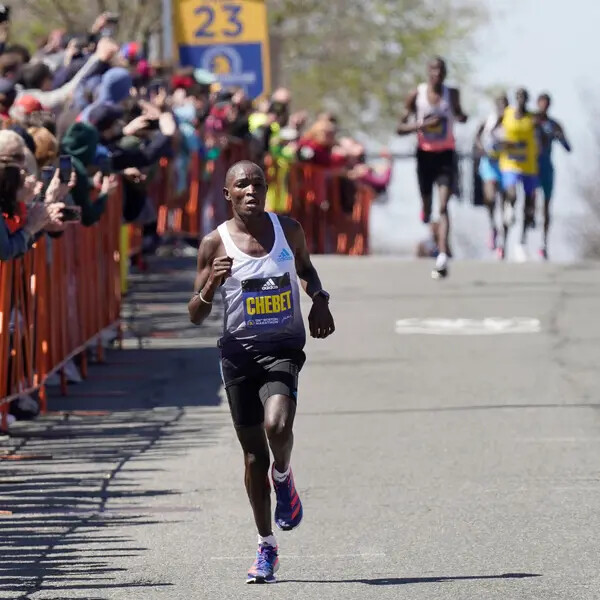
“I was not expecting to win,” said Jepchirchir, the reigning Olympic champion. “But I’m feeling grateful, and now I can say that I believe in myself more.”
For the first time since 2019, the Boston Marathon returned to its traditional slot on the calendar. Until the coronavirus pandemic, the marathon had been staged every April since 1897. But in 2020, the race was canceled for the first time in its history. And last year, the race was pushed to October, when it competed for elite entrants with a cluster of other marathons.
Order was restored this year, as a full field of about 30,000 participants — runners, wheelchair racers, para athletes, hand cyclists — formed a giant wave from Hopkinton, Mass., to Boston on a cool, sun-splashed day.
No one shined brighter than Jepchirchir, 28, who finished in 2 hours 21 minutes 1 second, just four seconds ahead of Yeshaneh. Mary Ngugi of Kenya placed third after running a smart race: She knew enough to pace herself when Jepchirchir and Yeshaneh pounded the gas, blowing away the field.
“I’m glad I didn’t follow them and just die,” Ngugi said.
Establishing herself as the most formidable female marathoner on the planet, Jepchirchir has now won her last five marathons and three in the last eight months: After surviving extraordinarily hot conditions to win at the Tokyo Games in August, Jepchirchir won the New York City Marathon in November. Now, after another triumph, she is already looking ahead.
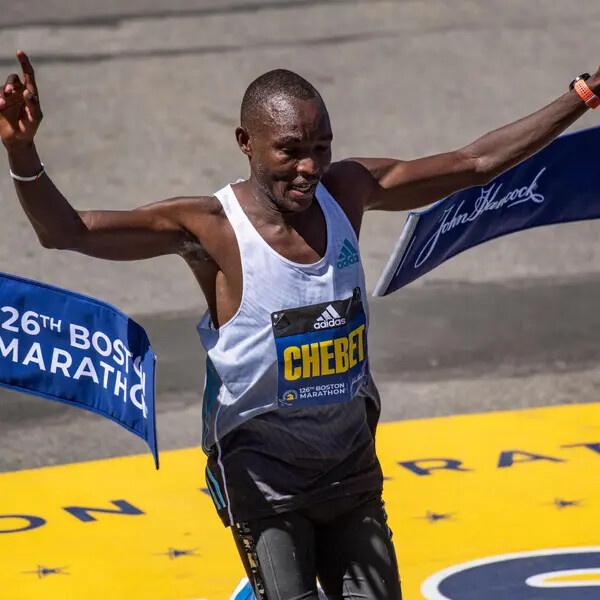
“I still have more to do,” she said.
Kenyans swept the men’s podium. Evans Chebet, 33, won his first world marathon major when he broke clear of a large pack, finishing in 2:06:51. Lawrence Cherono was second, and Benson Kipruto, last year’s winner, was third.
The pack began to dissolve behind Chebet after he covered the 22nd mile in 4:27, a preposterous tempo. Crushing his opposition only seemed to spur him forward.
“My counterparts were nowhere close to me,” he said through a translator, “and that gave me the motivation and the determination to hit it off and seize the win.”
On Monday, fortune largely favored the brave — but not everyone. CJ Albertson, a 28-year-old Californian who trains for marathons by doing marathons, pushed the pace from the start.
“My only chance to really win or be up there in the top is to kind of break some people,” he said. “I had the mind-set that I’m invincible, and you kind of have to run like that.”
The problem: “There are limits,” he said.
Albertson faded to a 13th-place finish in 2:10:23, which was still a personal best. Scott Fauble, 30, was the top American man, in seventh. “I think I do well with hills,” he said.
Molly Seidel, a crowd favorite and a former Boston-area resident, struggled in her Boston debut, dropping out at Mile 16. She said in a statement that she had been dealing with a hip injury.
“I had to make the difficult call to stop at a medical tent to avoid really damaging anything,” she said.
Seidel, the bronze medalist in the women’s marathon at the Tokyo Games, was coming off a fourth-place finish at the New York City Marathon with broken ribs.
Nell Rojas was the fastest American woman, finishing 10th in 2:25:57.
Manuela Schӓr of Switzerland won the women’s wheelchair race, cruising to her fourth victory in the event, and Daniel Romanchuk of the United States won the men’s title for a second time in Boston.
Many runners were drawn to this year’s race by the opportunity to accomplish a one-of-a-kind feat: running back-to-back Boston Marathons mere months apart.
“It feels almost a little bit too soon,” said Joyce Lee, who was running her sixth Boston Marathon after serving as guide for a visually impaired runner in the October race.
Many were also grateful for the chance to compete on the 50th anniversary of women’s official inclusion in the marathon. “It’s incredible to think that was a thing back then and women had to work so hard to participate in this event,” said Christine Valdes, 46. “They paved the way for us.”
Sport is seldom immune from global politics, and this year’s marathon was no different. Amid the war in Ukraine, runners from Russia and Belarus were barred from competing by the Boston Athletic Association, which organizes the race. (Citizens of Russia and Belarus who are residents of other countries were still allowed to take part.)
And there were, as always, reminders of the terror that tore through the marathon nine years ago. Henry Richard, 20, crossed the finish line at 2:52 p.m., and the timing could not have been more poignant: It was around that time in 2013 when two bombs exploded and killed his 8-year-old brother, Martin, and two other people, and wounded 264 others.
“I know Martin would have been doing it with me,” Richard said after the race on Monday. “That’s all I could think about.”
Richard finished in 4:02:20. “I did it for both of us, and my sister and the rest of our family,” he said. “I couldn’t be more happy now. I’m going to do it again.”
In her own subtle way, Jepchirchir offered a counterpoint to some of the world’s divisions. In the race’s late stages, she and Yeshaneh appeared to work together to extend their lead. At one point, Jepchirchir offered Yeshaneh some of her water.
It all seemed straight from the Jepchirchir playbook. Consider her performance in New York last year, when she encouraged Viola Cheptoo, a fellow Kenyan, to stick with her as they entered Central Park side by side. Jepchirchir eventually pulled away, but Cheptoo lauded her sportsmanship.
On Monday, it was more of the same, all those years after eight women broke the gender barrier by racing against more than a thousand men.
“I love my competitors,” Jepchirchir said, “because I can’t do it by myself.”
by New York Times
Login to leave a comment
Boston Marathon
Among the nation’s oldest athletic clubs, the B.A.A. was established in 1887, and, in 1896, more than half of the U.S. Olympic Team at the first modern games was composed of B.A.A. club members. The Olympic Games provided the inspiration for the first Boston Marathon, which culminated the B.A.A. Games on April 19, 1897. John J. McDermott emerged from a...
more...Who is Ready? Who is Not? What the Pros Said at Boston Marathon Media Day
2022 Boston Marathon and it’s time to get excited. The weather is nice, the trees are starting to bloom (well, some of them), and two dozen of the world’s best distance runners have descended upon the Hub for the most loaded Boston Marathon in race history.
LetsRun.com will have boots on the ground all weekend, and we had a chance to talk to a number of top athletes, agents, and coaches at this morning’s media availability ahead of Monday’s race. The B.A.A. announced two race updates, with 2017 champ Geoffrey Kirui scratching from the marathon and US 10,000m champ Emily Sisson scratching from Saturday’s B.A.A. 5K. Here are the other things we learned on Friday from speaking to Molly Seidel, Peres Jepchirchir, Geoffrey Kamworor, CJ Albertson, and many more.
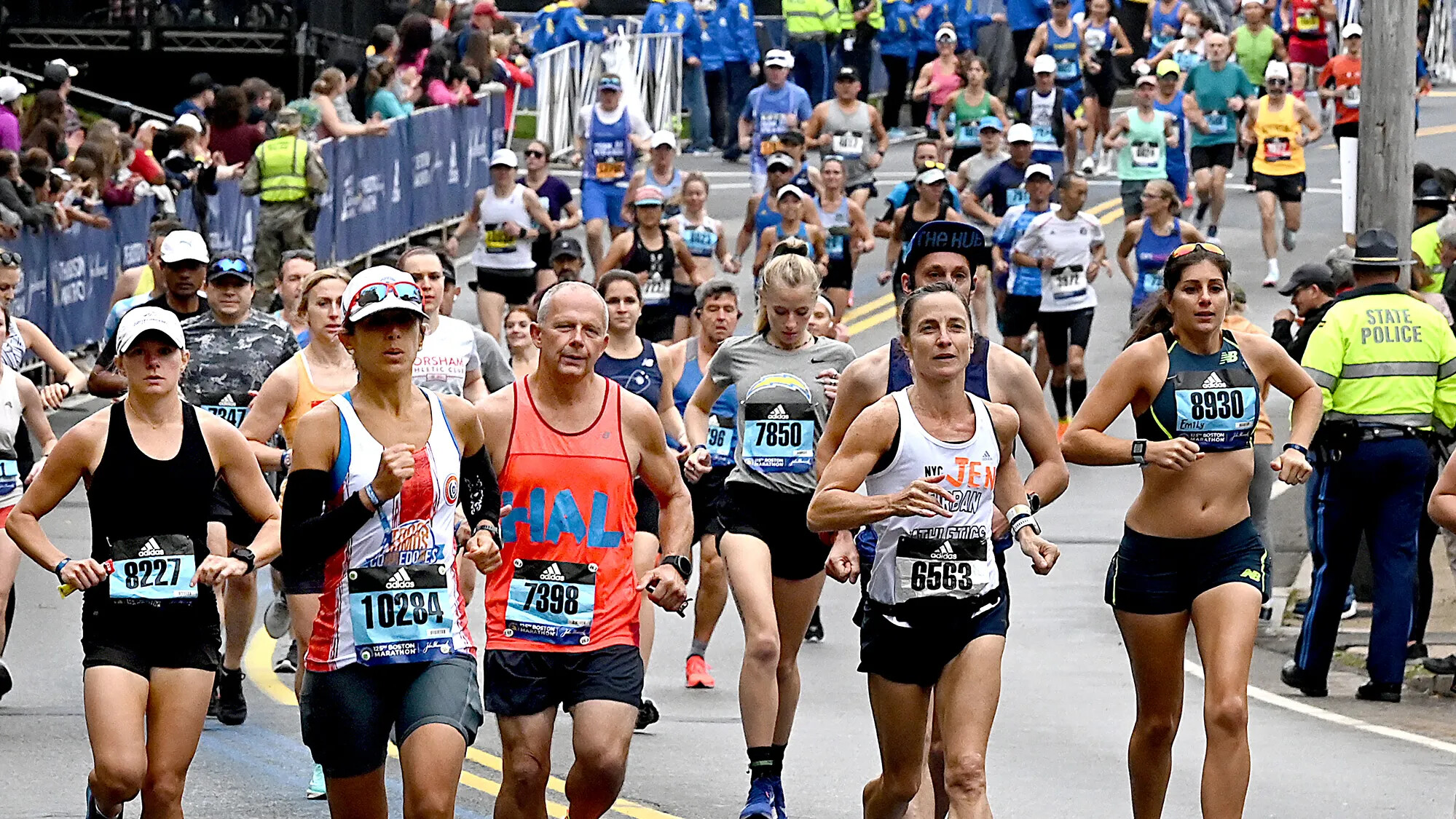
Molly Seidel says she has had some privacy concerns with her Strava account but is feeling excited and fit for Boston
Seidel will run two marathons in the first seven months of 2022, with Boston on Monday and the World Championship marathon in Eugene in July, and she and coach Jon Green have built their strategy for the year around those two races.
“We were looking [at] Boston as coming into this with a lot of strength and using this to try and carry through and hone the speed for Worlds,” Seidel said. “Right now I feel like we’ve set it up really well like that, and I’m hoping that the speed’s gonna be there. Fingers crossed.”
Seidel will likely need that speed over the final, mostly downhill 10k in Boston, as that is where the race is often broken open. And with two top half marathoners leading the field – World Half champ Peres Jepchirchir and former HM world record holder Joyciline Jepkosgei – the pace could get very hot at the end of the race.
Challenging for the overall win will be tough, but Seidel said she is excited to race the best in the world on Boston’s hallowed course.
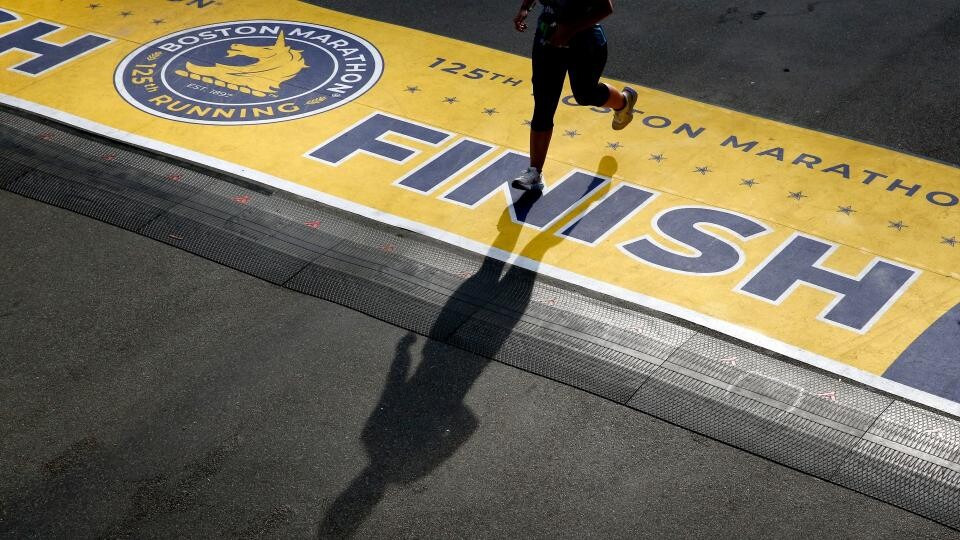
“Obviously intimidated, they’re incredible, and I’ve gotten my ass kicked by Peres the two times I’ve raced her,” Seidel said. “But getting to be in a race with a huge amount of competition like that, women with incredible credentials, that fires me up like nothing else.”
Seidel’s buildup wasn’t perfect, as she dealt with a hip impingement about a month ago and had to miss the NYC Half as a result. But she’s logged multiple 130+ mile weeks since then, which you can tell by visiting her Strava page. And while it’s great for most of the running community to be able to see what an Olympic medalist does for training – transparency that Seidel says she values – recently, she has met with some of the Strava staff out of concerns that some people have been using the data to figure out where she lives.
“It can be a lot sometimes, realizing you’ve got 60,000 people following your every move and a little bit scary sometimes when people start tracking that,”’ Seidel said. “So it’s something that I’m still figuring out, honestly. And I’ve wavered back and forth on getting off the platform, mainly because of that.”
Geoffrey Kamworor (photo) is all-in on the marathon and ready to go in his Boston debut
For the first decade of his professional career, Kamworor developed a reputation as a man for all seasons. He ran 12:58 and 26:52 on the track and earned a silver in the 10,000 at Worlds, won World XC twice, and won the World Half three times. He also mixed in two NYC Marathon titles during that span, but the marathon was never his full focus.
That, says his agent Valentijn Trouw, has now changed. Boston will be Kamworor’s first spring marathon since 2014, and he has already committed to the World Championship marathon in July. At this point, he is all-in on the marathon.
And that could be a scary prospect for the rest of the field. Kamworor’s 2:05:23 pb may only be 10th-best in the field, but he ran that in Valencia in December in a race Kamworor had barely been able to train for due to an ankle injury. For this buildup, Trouw said, Kamworor did not miss a step.
While the deep men’s field is pretty wide-open on paper, one prominent agent we spoke to (not Trouw) said he views Kamworor as the favorite due to his two NYC wins and his killer speed in the half marathon – two assets that should help significantly in Boston.
Defending champ Benson Kipruto ready to take on some big names
Kipruto was a surprise winner last year, but will not be able to sneak under anyone’s radar this year. He gave the platitudes about being “happy to be back” this year. But he said his training has gone well and the goal is the same as last year — to win, despite the field being stronger this year. “There are some strong guys, but I don’t care…my preparation was good.”
CJ Albertson isn’t a 2:06 guy yet, but he’s trying to think of himself that way
Albertson has run some insane efforts in practice, including a 2:09 marathon on a treadmill in 2020 and a 2:10:28 “split” three weeks ago at the Modesto Marathon (his result is listed officially as 2:11:56, but the lead bike led Albertson the wrong way, causing him to run extra distance). Yet Albertson’s official marathon personal best is still 2:11:18 from the Marathon Project in 2020. Is he leaving his best efforts in practice? Albertson doesn’t view it that way.
“At some point, I’m gonna run fast,” he said. “Hopefully it’s on Monday.”
Albertson also had an interesting perspective when we asked about all those hard efforts in practice. They might seem crazy for a guy whose official pb is 2:11, but Albertson said his goal is to run 2:06 one day and that he tries to think of his training in that context.
“Whatever you want to be, you have to mentally be there first before you’re actually there,” Albertson said. “I want to work out and train like I am an American record holder. Because one day I’m going to be or I’ll have a shot to be in that position and those two weeks before aren’t gonna matter, it’s gonna be what I did the five years leading up to it…The workouts that I’m doing, if you look at me like an American record holder and it’s like, he’s going out and running 5:00 pace on the weekends, it’s no big deal.”
He had one of those workouts on Sunday, running 4:50 pace (2:06:43 marathon pace) for 15 miles and feeling great doing it.
As for Monday, Albertson, who led for the first 20 miles last year and ultimately finished 10th, said he will likely go out hard again but expects he will have more company this time given the strength of the field and great conditions in the forecast.
Colin Bennie is running Monday’s race for the Play Ball Foundation while his contract situation with Reebok is sorted out
Bennie was the top American at last year’s Boston Marathon, finishing 7th in 2:11:26. It is a bit of a surprise, then, that he will not be racing on Monday in the colors of the Reebok Boston Track Club. The reason why is a bit complicated. Reebok has been undergoing an ownership change, and in March was officially sold by adidas to Authentic Brands Group. Bennie’s Reebok contract was up at the end of 2021, and as a result he’s in limbo as Reebok did not want to offer a new contract in the midst of an ownership change. The new owners are still figuring out what to do with the Reebok Boston Track Club, but Bennie is hopeful that the group’s strong recent performances, such as Josette Norris’ 5th-place finish in the 1500 at World Indoors, are proof that the team is still worth supporting (he is still training with the team and coach Chris Fox in Virginia).
“There’s been good support throughout,” Bennie said. “These things just do take time.”
With no sponsor for the moment, Bennie, a Massachusetts native, will be running Monday’s race for the Play Ball Foundation, a local charity dedicated to providing sports opportunities to middle schoolers in underserved communities. Play Ball’s logo is the letters PB in large, blue font – good letters for a marathoner.
“It’s a very good thing to have on you on race day,” Bennie said.
Jake Riley and Jared Ward are hoping things turn a corner for them in Boston
Riley and Ward are both US Olympians, but both have hit some rough patches recently. They’re hoping Boston is a first step back in the right direction.
Riley, 34, had been struggling in practice and had an awful tuneup race for Boston, running 46:27 at the US 15K champs on March 5 to finish in 35th place. After searching for answers, Riley finally determined, with the help of his nutritionist, that he was underfueling between runs, which meant that he struggled to finish workouts and races strong.
Riley pointed out that he was able to go out with the pack at the 15K but just could not get his body to go faster over the final 5k when the racing picked up.
But Riley said that he has made some changes to his diet and that the last four weeks of training have gone very well.
“Since I’ve tried to fix that, things have finally started to come around,” Riley said. “My energy levels are better, I’ve been able to close out workouts better.
”Four weeks may not be enough to turn things around for a big race in Boston, though. Riley admitted that there is a wide range of outcomes for him on Monday.
As for the 33-year-old Ward, he was wondering, after a rough 2020 season, whether he might be nearing the end of his marathon career. Now a father of five, Ward was feeling more tired in practice and daily live and simply chalked it up to getting older
“I just kind of thought, this is just, I guess, how you feel,” Ward said.
But in marathon years, 33 really isn’t that old. So Ward endeavored to find out what was wrong. Ultimately, he was diagnosed with hypothyroidism and prescribed Levothyroxine, a thyroid-replacement drug, by his doctor. But Ward is well aware of the stigma around thyroid medication in the running world, and for two weeks, the medication sat untouched in his cupboard. Ultimately, however, he decided that he would take the supplement – which is legal under the WADA Code and does not require a TUE – but that he would be open and honest about exactly what he was taking and why ( this Instagram post has more details). So far, Ward says, the reaction has been positive from fellow athletes, who are grateful that Ward has addressed the issue in an honest manner.
“It’s around us a lot more than you might think, and for people that need it, it’s important,” Ward says.
Ward says that since taking the medication, his energy levels feel back to normal, which have made it easier for him to train – and to play with his kids. But he also said that his fatigue issues before that meant that he was not able to push as hard in practice as he would have liked, meaning he probably doesn’t have the base quite yet to get back to his best marathoning.
“I think it might take a year or two to climb back to where I’d like to be,” Ward says.
Jared Ward starting new pro group in Utah: the Run Elite Program
Utah has produced a lot of really good runners, but up until now it was not known for its pro training groups, despite being at altitude and a good place to train. Jared Ward and Isaac Wood (of the Wood Report) wanted to change that and set out to get funding for a pro running group in Utah. Mike McKell, a state senator in Utah and a big runner, said they should try to get state funding, which they did to the tune of multiple hundreds of thousands of dollars a year. Wood talks about the foundation of the group below, which is designed to be shoe brand agnostic.
Peres Jepchirchir and Joyciline Jepkosgei ready to battle
Jepchirchir and Jepkosgei will battle for the title of World’s #1 marathoner on Monday. They sat next to each other in the media room and were both confident they would handle the Boston course on their first try.
Both said their preparations have gone well. While neither has run Boston, they both are New York City Marathon champions and have shown they can win non-rabbited hilly marathons.
Viola Cheptoo Lagat has found her event
Viola is the sister of 1500m star Bernard Lagat. So she naturally thought she was a 1500m runner and made the Olympic team for Kenya. But she never ran faster than 4:04. Turns out her event really was the marathon. Coming off her 2nd place finish at the New York City Marathon where she battled Jepchirchir nearly to the line, Lagat’s goal is to win on Monday, but with this tough field knows a top 3 finish would be a good accomplishment.
Ageless Edna Kiplagat discusses longevity: “This year the field is so strong, but I have no fear”
Kiplagat was born in the 1970s and she’s still a force in the pro running ranks, getting 2nd at 2021 Boston in the fall. Winning may be out of the question but it’s a strong bet Kiplagat will have a good race on Monday. She said the key to her longevity has been staying focused and not over racing. As for this year, “This year the field is so strong, but I have no fear.”
Scott Fauble doesn’t mind flying under the radar in 2022
Since Meb Keflezighi’s win in Boston in 2014, no American man has run faster in Boston than Scott Fauble’s 2:09:09 in 2019. That led to a lot of attention and expectations over the next couple of years, but also pressure.
“I sort of was the belle of the ball and I put a lot of pressure on myself,” Fauble said.
The spotlight on Fauble has faded recently, however, as he was only 16th in Boston last year and is currently unsponsored (he will race Monday’s race in a Lululemon singlet he bought himself). But it would be a mistake to sleep on him: Fauble, now working with coach Joe Bosshard, ran 61:11 in the Houston Half and knows what it takes to succeed on this course.
Login to leave a comment
Boston Marathon
Among the nation’s oldest athletic clubs, the B.A.A. was established in 1887, and, in 1896, more than half of the U.S. Olympic Team at the first modern games was composed of B.A.A. club members. The Olympic Games provided the inspiration for the first Boston Marathon, which culminated the B.A.A. Games on April 19, 1897. John J. McDermott emerged from a...
more...Two-time New York City Marathon champion Geoffrey Kamworor will be making his debut on the streets of Boston on April 18
Three-time World Half marathon champion Geoffrey Kamworor has set his focus on next month's Boston marathon after shaking off a groin injury that ruled him out of last month's Agnes Tirop Memorial World Cross Country Tour.
The two-time New York City Marathon champion will be making his debut on the streets of Boston on April 18 seeking to add to his burgeoning accolades on American soil.
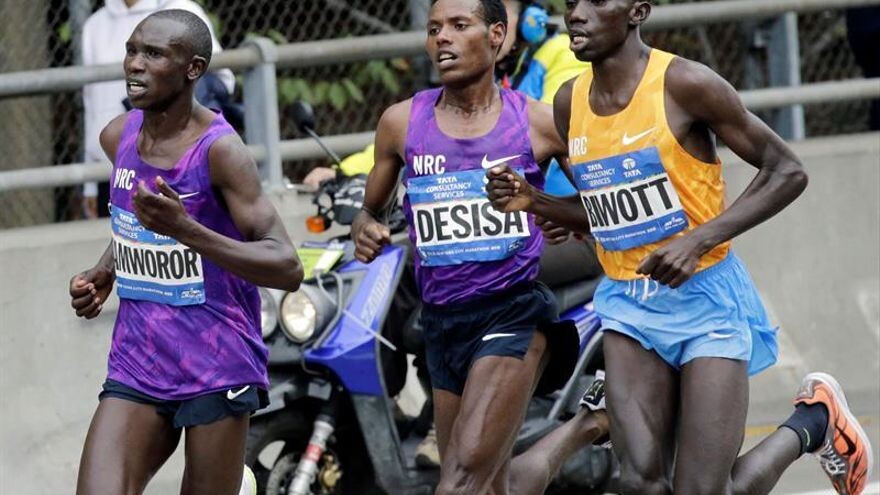
“I was well prepared for the Agnes Tirop World Cross Country Tour but it was very unfortunate that two weeks to the event, I got a groin injury and I had to pull out,” said the 2015 world championships 10,000m silver medalist.
Kamworor said he is targeting a podium finish on debut.
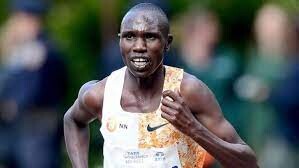
“I feel in great shape, just trying to sharpen my skills a little bit. My training has been flawless and I am hoping for a good result in Boston,” he added.
The four-time world cross country champion (two in senior and two in junior) will be joining a host of top athletes in Boston including compatriots Benson Kipruto (defending champion), Geoffrey Kirui (2017 champion) Evans Chebet, Titus Ekiru, Lawrence Cherono (2019 winner), Bernard Koech, Eric Kiptanui, Bethwell Yegon and Albert Korir (New York City Marathon champion).
Rivals Ethiopia are also represented by a huge, talented contingent led by three-time Olympic champion and the second-fastest marathon runner in history with a best of 2:01:41 Kenenisa Bekele, Lemi Berhanu (2016 winner), Lelisa Desisa (2015 and 2013 winner), Bayelign Teshager and Jemal Yimer.
Italian Eyob Faniel of Italy, Japan's Yuki Kawauchi (2018 winner), Amanuel Mesel, Tsegay Tuemay Weldibanos (Eritrea), Scott Fauble, Colin Bennie, Jared Ward, Ian Butler, Mick Iacofano, Jake Riley, Jerrell Mock, Matt McDonald, Matt Llano, Elkanah Kibet, CJ Albertson, Diego Estrada (USA), Trevor Hofbauer (Canada), Juan Luis Barrios (Mexico) and Gabriel Geay of Tanzania are also in the mix.
by Emmanuel Sabuni
Login to leave a comment
Boston Marathon announces their fastest ever men’s field
Organisers of the Boston Marathon have revealed their fastest ever men’s field for the 126th edition of the World Athletics Platinum Elite Label road race on 18 April.
It features 12 men with lifetime bests faster than 2:06, led by three-time Olympic champion Kenenisa Bekele of Ethiopia, the second fastest marathon runner in history with a best of 2:01:41.
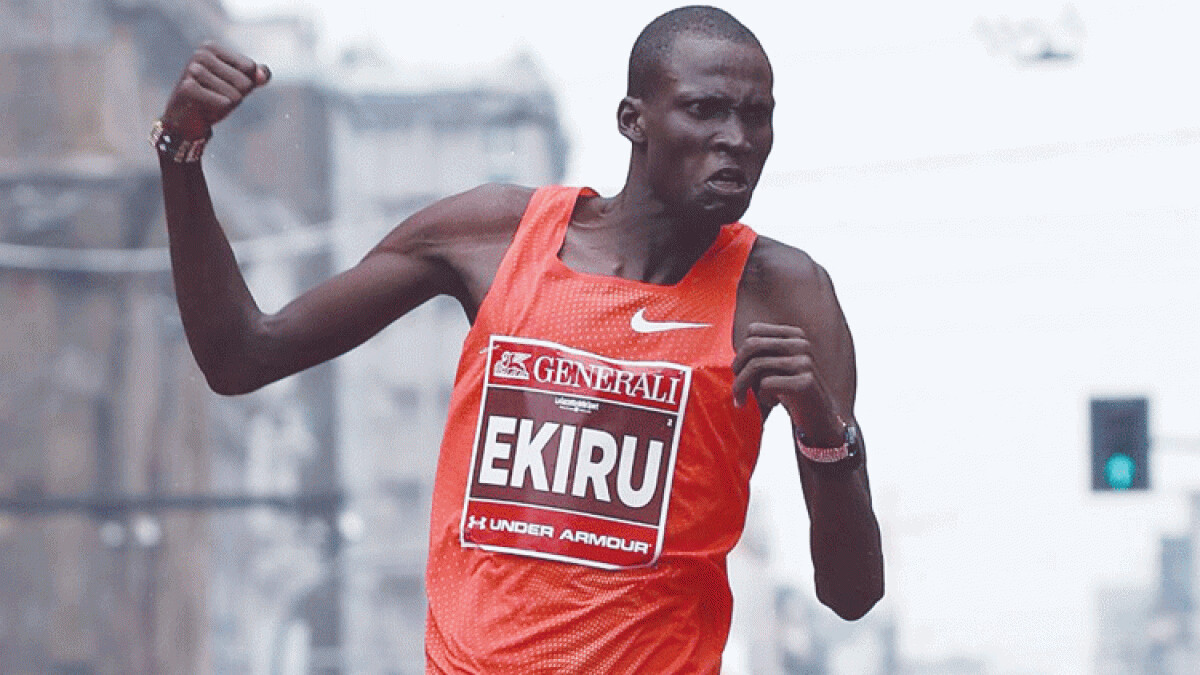
“I recognise the tradition of the Boston Marathon and look forward to racing in April,” said Bekele. “For many years Ethiopia has had a strong tradition in Boston, and I am excited to join that legacy. I have long looked forward to racing the Boston Marathon.”
Seven of the past eight winners will also return to Boston, including 2021 champion Benson Kipruto of Kenya. Lawrence Cherono (2019), Yuki Kawauchi (2018), Geoffrey Kirui (2017), Lemi Berhanu (2016), and Lelisa Desisa (2015 and 2013) are the other six former winners.
“Being back in Boston as a champion is very exciting, but at the same time I feel the pressure and the responsibility to defend my title,” said Kipruto. “I really admire those athletes that managed to be multiple champions in big races. I really want to do my best to be one of them and I really hope to make my name among those Boston champions that people will remember for a long time.”
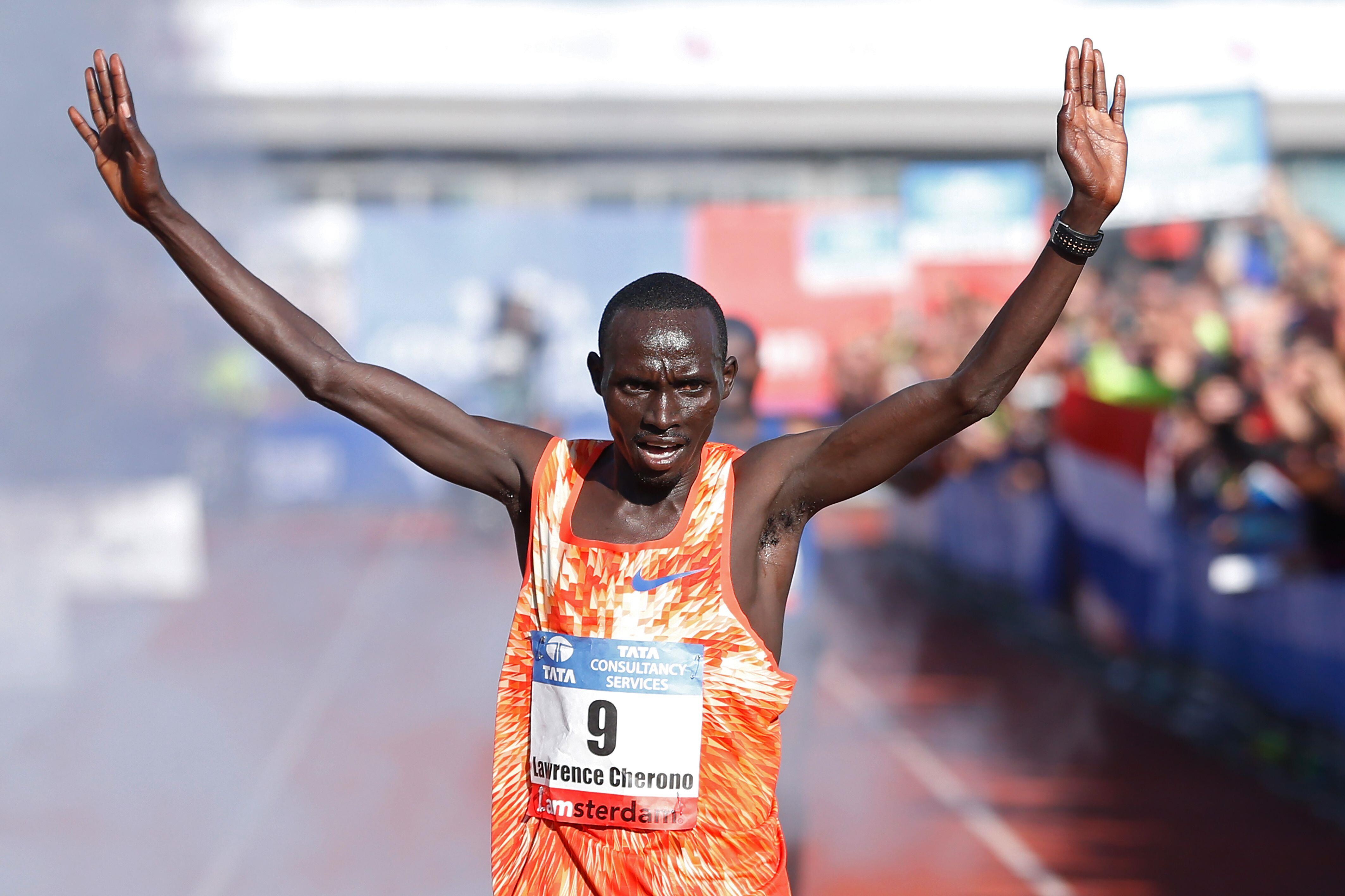
Other strong contenders include Titus Ekiru, the fastest marathon runner in the world last year having run 2:02:57 in Milan, 2020 world leader Evans Chebet, New York City Marathon winner Albert Korir, and three-time world half marathon champion Geoffrey Kamworor.
Men’s elite field
Kenenisa Bekele (ETH) 2:01:41Titus Ekiru (KEN) 2:02:57Evans Chebet (KEN) 2:03:00Lawrence Cherono (KEN) 2:03:04Bernard Koech (KEN) 2:04:09Lemi Berhanu (ETH) 2:04:33Lelisa Desisa (ETH) 2:04:45Gabriel Geay (TAN) 2:04:55Benson Kipruto (KEN) 2:05:13Geoffrey Kamworor (KEN) 2:05:23Eric Kiptanui (KEN) 2:05:47Bethwell Yegon (KEN) 2:06:14Geoffrey Kirui (KEN) 2:06:27Eyob Faniel (ITA) 2:07:19Yuki Kawauchi (JPN) 2:07:27Albert Korir (KEN) 2:08:03Amanuel Mesel (ERI) 2:08:17Bayelign Teshager (ETH) 2:08:28Tsegay Tuemay Weldibanos (ERI) 2:09:07Scott Fauble (USA) 2:09:09Colin Bennie (USA) 2:09:38Trevor Hofbauer (CAN) 2:09:51Jared Ward (USA) 2:09:25Ian Butler (USA) 2:09:45Mick Iacofano (USA) 2:09:55Jake Riley (USA) 2:10:02Jerrell Mock (USA) 2:10:37Jemal Yimer (ETH) 2:10:38Juan Luis Barrios (MEX) 2:10:55Matt McDonald (USA) 2:11:10Matt Llano (USA) 2:11:14Elkanah Kibet (USA) 2:11:15CJ Albertson (USA) 2:11:18Diego Estrada (USA) 2:11:54
by World Athletics
Login to leave a comment
Boston Marathon
Among the nation’s oldest athletic clubs, the B.A.A. was established in 1887, and, in 1896, more than half of the U.S. Olympic Team at the first modern games was composed of B.A.A. club members. The Olympic Games provided the inspiration for the first Boston Marathon, which culminated the B.A.A. Games on April 19, 1897. John J. McDermott emerged from a...
more...Crush a New Distance By Busting Through Your Mental Barriers
Your first 5K? Making the leap from marathons to ultras? These tricks can help you anticipate and overcome any hurdles
After two disappointing races—in the 5,000 and 10,000 meters—at last year’s U.S. Olympic Track and Field Trials, pro runner Erika Kemp had to take a step back in order to move forward with the rest of her season.
She took a week and a half off from running, and her coach, Mark Carroll, issued a challenge that he hoped would reignite Kemp’s spark for competing—a jump up in distance to 20K for her next race.
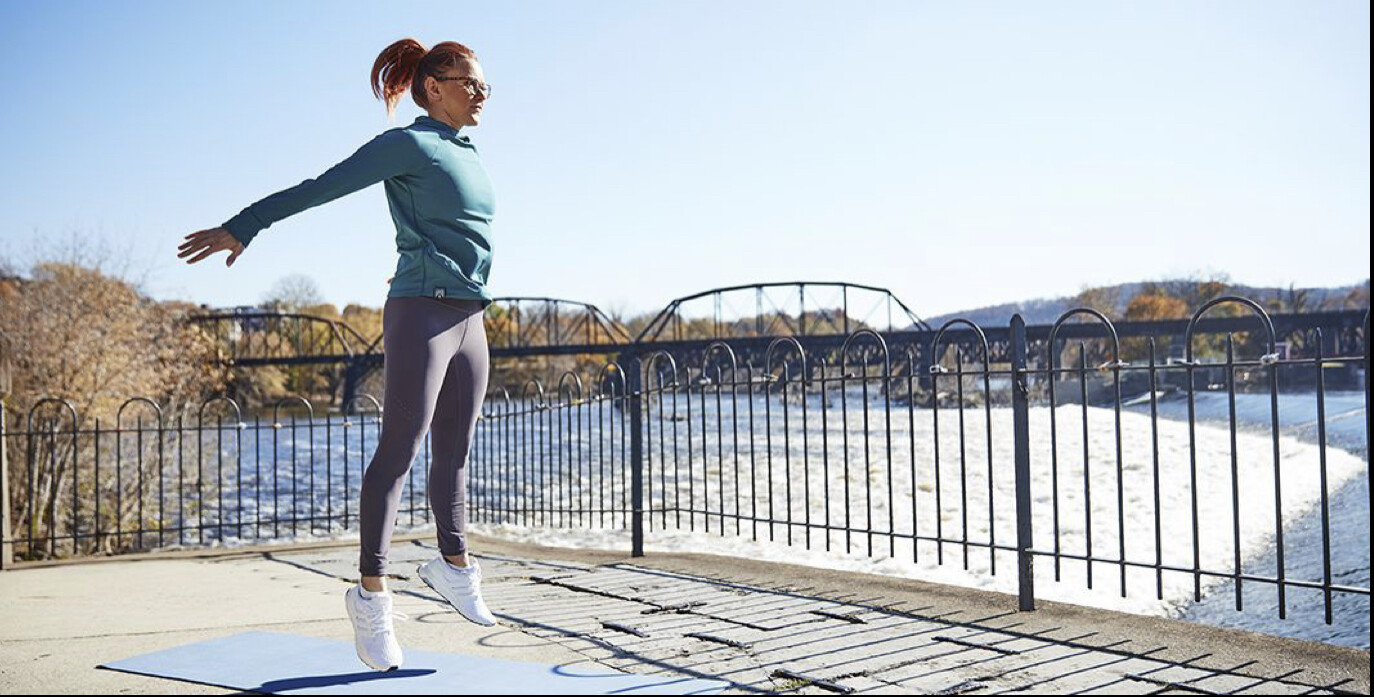
With a refreshed mindset, Kemp not only took the top honors in the USATF 20K Championships in New Haven, Connecticut, but also placed second at the 25K championships the following month, which was the longest distance she’d ever run or raced. “It was nice because whenever you do a new event, there’s just nothing else to compare it to without a previous benchmark,” Kemp says. Another bonus: It’s an automatic personal best.
Whether you’re eyeing your first 5K, upping your training volume, or making the jump from marathons to ultras, getting over the mental hurdles of attempting something that’s longer and more physically demanding is just as important as improving your fitness.
Here’s how you can anticipate and overcome those barriers, with the help of top runners and coaches who’ve taken the leap to new distances.
Practice proper pacing, visualize the unknown
While she may have found her sweet spot in racing longer distances, Kemp says she has to mentally break those longer efforts into chunks based on how she typically feels over 2 miles, 5K, or 10K.
Dakotah Lindwurm, a professional runner with Minnesota Distance Elite who also coaches recreational runners, shares that sentiment. Longer-than-normal runs shouldn’t hurt if you’re pacing yourself properly, she says.
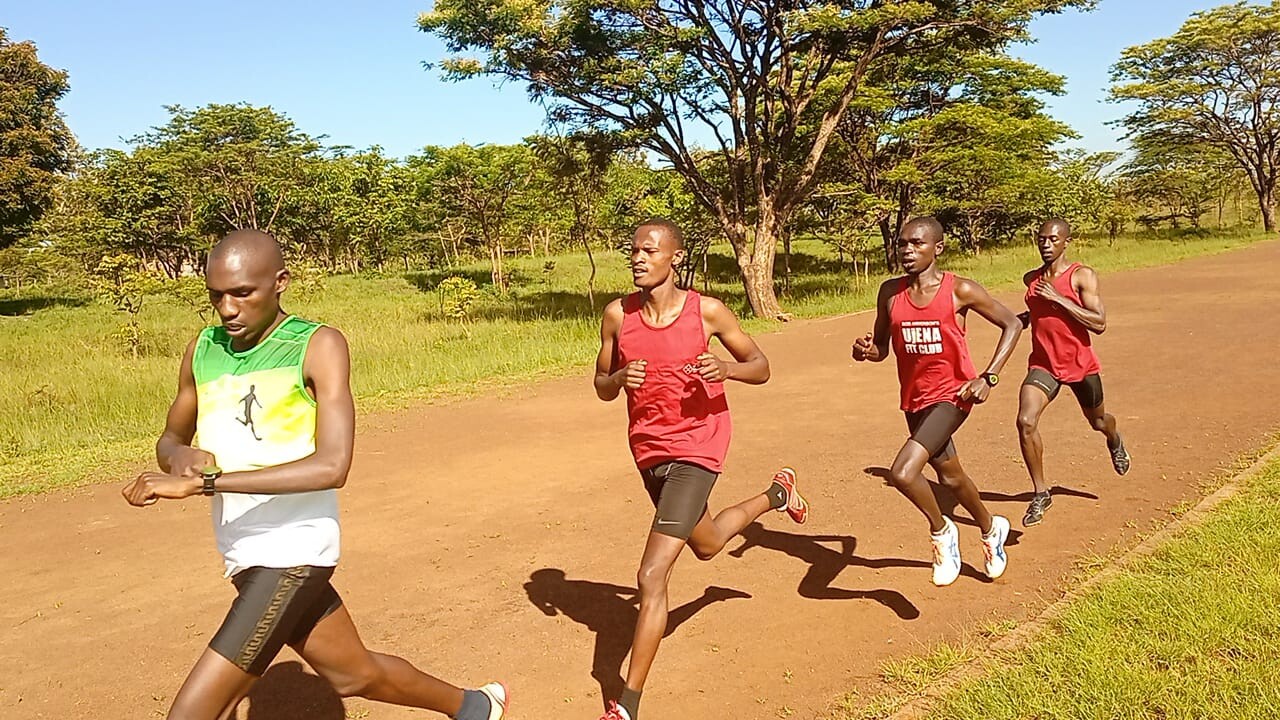
You’ll probably still enter an unfamiliar pain level when you creep up in distance, though, which is why visualizing how you’re going to feel in those later tough parts is important even in your ordinary runs.
“Everybody’s been extremely tired when they’re running, whether they’re a brand new runner or not,” Lindwurm says. “I use visualization every day while training for my marathons by thinking about how exhausted I’m going to feel and how I’m mentally going to overcome that.”
This can also be key for figuring out where you usually start to hurt physically or mentally, a process that should begin prior to your longer event, says Lennie Waite, 35, a 2016 Olympian in the 3,000-meter steeplechase and a Houston-based sports psychology consultant. Waite says it’s rare to feel amazing for the entire duration of a race, but it’s possible to identify where things usually go south so you can work on your mental toughness when you need it.
That way you’ll be less shocked if it happens and less likely to question whether you can finish, Waite says. Then you can shift back more quickly to a positive mindset and focus on the final miles ahead.
Test yourself when the pressure is off
With a lack of racing in 2020, CJ Albertson, threw together an event to attempt to break the world record for a 50K on the track. It was his first attempt at the distance, and while he wouldn’t have had it on his race calendar during a normal year, Albertson managed to break the previous record with a time of 2:42:30. The run also served as a confidence-boosting workout for the Marathon Project race six weeks later, where he set his current 26.2 PR of 2:11:18.
Veering from your scheduled plan can be beneficial if you’re in a good spot with training. For example, running 13 miles several weeks before your first official half marathon can break up your routine and prove you can do the distance.
Albertson says that once he does a trial run in practice—even if he’s unfamiliar with it at first—it allows him to look forward to a race of that length when it fits into his schedule.
Find a distraction
If you watched this year’s Boston Marathon, you probably saw that Lindwurm led for much of the first 10 miles. You may have also noticed the smile on her face while she was doing it.
“Even if I may not be smiling on the inside,” she says, “I’m smiling on the outside because I’m tricking my brain into thinking that this is great, even when it hurts.”
According to a new study published in the Journal of Motor Learning and Development, tactics that draw your attention away from negative internal thoughts—how much longer you have to run, for instance, or your legs feeling heavy—may help you improve your endurance, performance, and even running economy.
Any type of external distraction could help you get out of a funk in a race. Try looking at the cheering crowd or funny race signs, or chat with the person next to you to take your mind away from tough moments.
Embrace your goals
Waite says it’s easy for recreational runners to minimize goal setting if they run strictly for pleasure. And she’s found that when this kind of person starts striving to run better at a distance or reach a new milestone, this mindset can sometimes become a mental roadblock and make it difficult to find success.
If this sounds like you, working with a coach or sports psychologist can help you identify what might be holding you back—mentally or physically—and give your training added purpose. Because even if you aren’t running for a spot on the podium, the work you put in is still important.
And you can empower yourself by repeating positive affirmations, such as “This is important to me, I trained for this, and I belong out here,” the next time you lace up for a longer run or race that seems daunting.
Bust Out of Your Rut
You can shift your mindset before or during a long, hard workout or race with a mantra or fun mental distraction. Here, some top runners reveal their favorite fixes.
→ Dakotah Lindwurm writes “strong, fast, and last” on her hand before a marathon to remind her of her motto: “I am strong, I am fast, my speed will last.”
→ CJ Albertson tells himself to run as if he’s looking good, even if it’s not true. He says this helped him after the pack caught up to him at the 2021 Boston Marathon, where he led through 20 miles.
→ Before those challenging long runs, Erika Kemp reminds herself that training is hard, but racing is the reward, and sports are supposed to be fun.
→ Lennie Waite encourages runners to do a quick body scan—from head to toe— to make sure they don’t waste energy by holding any unnecessary tension in their brow, jaw, shoulders, or hands.
by Runner’s World
Login to leave a comment
Kenyan Benson Kipruto crosses the finish line to win at the125th boston marathon
Kenya’s Benson Kipruto won the pandemic-delayed Boston Marathon on Monday as the race returned from a 30-month absence and moved to the fall for the first time in its 125-year history.
Kipruto waited out an early breakaway by American CJ Albertson and took the lead as the race turned onto Beacon Street at Cleveland Circle. By the time he approached the 1 Mile to Go marker in Kenmore Square, he was in front by 12 seconds.
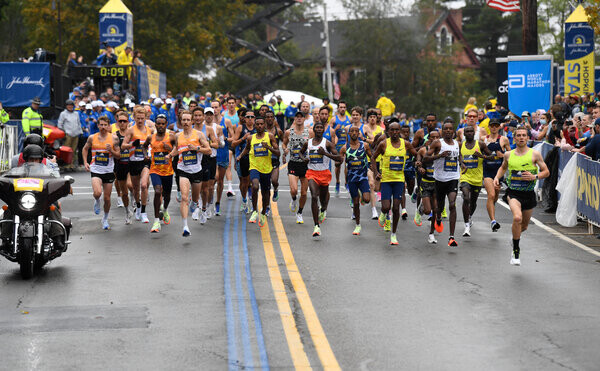
A winner in Prague and Athens who finished 10th in Boston in 2019, Kipruto finished in 2 hours, 9 minutes, 51 seconds to claim the $150,000 first prize. Lemi Berhanu, the 2016 winner, was second, 46 seconds behind; Anderson was 10th, 1:53 back.
Marcel Hug of Switzerland won the men’s wheelchair race earlier despite making a wrong term in the final mile, finishing the slightly detoured route just seven seconds off his course record in 1:08:11.
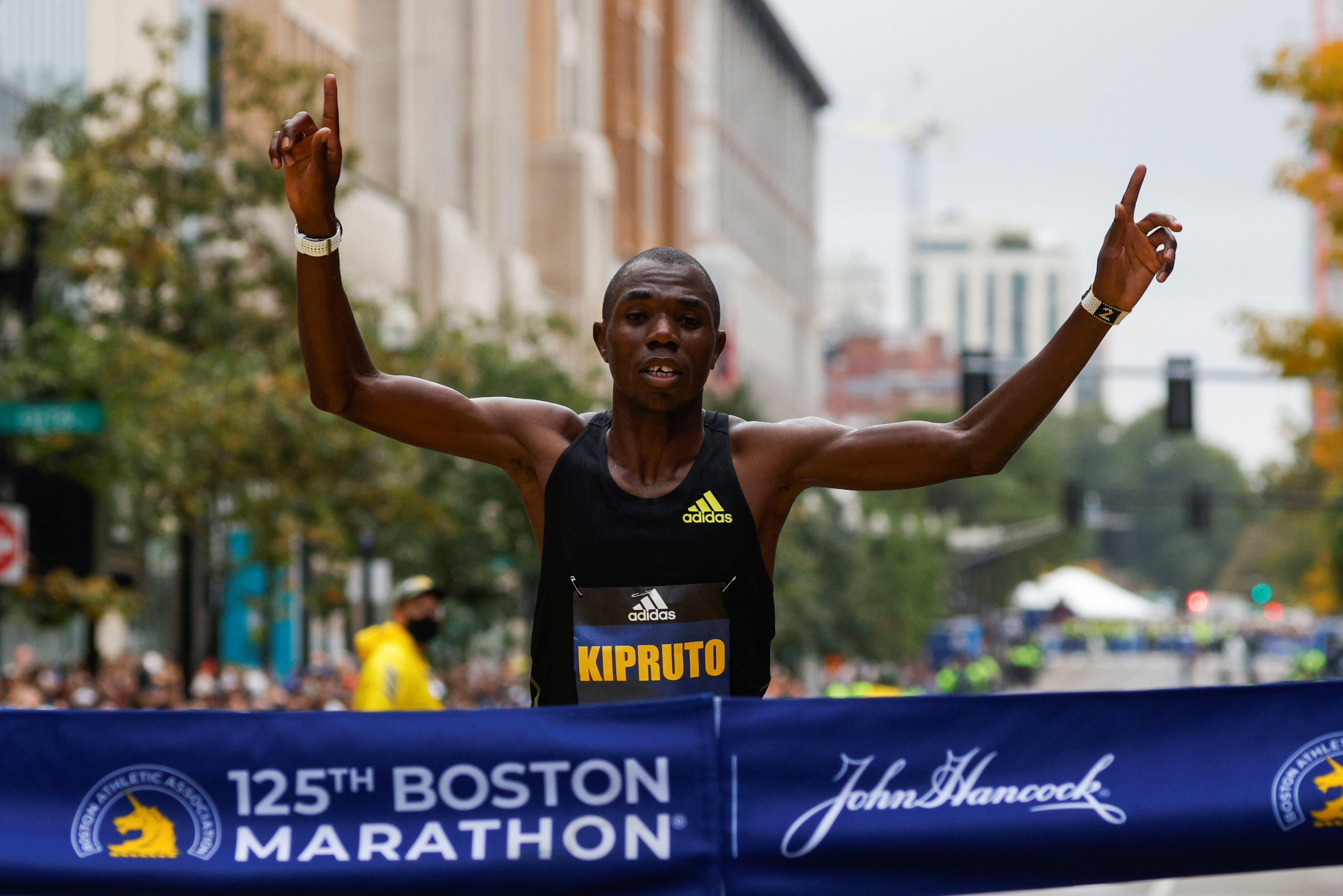
Manuela Schär, also from Switzerland, won the women’s wheelchair race in 1:35:21.
Hug, who has raced Boston eight times and has five victories here, cost himself a $50,000 course record bonus when he missed the second-to-last turn, following the lead vehicle instead of turning from Commonwealth Avenue onto Hereford Street.
“The car went straight and I followed the car,” said Hug, who finished second in the Chicago Marathon by 1 second on Sunday. “But it’s my fault. I should go right, but I followed the car.”
With fall foliage replacing the spring daffodils and more masks than mylar blankets, the 125th Boston Marathon at last left Hopkinton for its long-awaited long run to Copley Square.
A rolling start and shrunken field allowed for social distancing on the course, as organizers tried to manage amid a changing COVID-19 pandemic that forced them to cancel the race last year for the first time since the event began in 1897.
“It’s a great feeling to be out on the road,” race director Dave McGillivray said. “Everyone is excited. We’re looking forward to a good day.”
A light rain greeted participants at the Hopkinton Green, where about 30 uniformed members of the Massachusetts National Guard left at 6 a.m. The men’s and women’s wheelchair racers — some of whom completed the 26.2-mile (42.2 km) distance in Chicago a day earlier — left shortly after 8 a.m., followed by the men’s and women’s professional fields.
“We took things for granted before COVID-19. It’s great to get back to the community and it puts things in perspective,” said National Guard Capt. Greg Davis, 39, who was walking with the military group for the fourth time. “This is a historic race, but today is a historic day.”
Kenya’s Lawrence Cherono and Worknesh Degefa of Ethiopia did not return to defend their 2019 titles, but 13 past champions and five Tokyo Paralympic gold medal winners were in the professional fields.
Held annually since a group of Bostonians returned from the 1896 Athens Olympics and decided to stage a marathon of their own, the race has occurred during World Wars and even the 1918 Spanish flu pandemic. But it was first postponed, then canceled last year, then postponed from the spring in 2021.
It’s the first time the event hasn’t been held in April as part of the Patriots’ Day holiday that commemorates the start of the Revolutionary War. To recognize Indigenous Peoples Day, race organizers honored 1936 and ’39 winner Ellison “Tarzan” Brown and three-time runner-up Patti Catalano Dillon, a member of the Mi’kmaq tribe.
To manage the spread of the coronavirus, runners had to show proof that they’re vaccinated or test negative for COVID-19. Organizers also re-engineered the start so runners in the recreational field of more than 18,000 weren’t waiting around in crowded corrals for their wave to begin; instead, once they get off the bus in Hopkinton they can go.
“I love that we’re back to races across the country and the world,” said Doug Flannery, a 56-year-old Illinois resident who was waiting to start his sixth Boston Marathon. “It gives people hope that things are starting to come back.”
Police were visible all along the course as authorities vowed to remain vigilant eight years after the bombings that killed three spectators and maimed hundreds of others on Boylston Street near the Back Bay finish line.
But the crowds lining the course as it wends through eight cities and towns were expected to be smaller. Wellesley College students have been told not to kiss the runners as they pass the school’s iconic “scream tunnel” near the halfway mark.
by Jimmy Golen
Login to leave a comment
Boston Marathon
Among the nation’s oldest athletic clubs, the B.A.A. was established in 1887, and, in 1896, more than half of the U.S. Olympic Team at the first modern games was composed of B.A.A. club members. The Olympic Games provided the inspiration for the first Boston Marathon, which culminated the B.A.A. Games on April 19, 1897. John J. McDermott emerged from a...
more...Ethiopian runner sets men’s 50K world record with 2:42:07 run in South Africa
Ketema Negasa broke the men's world record and South Africa's Irvette Van Zyl ran the second-fastest women's 50K in history
Ethiopia’s Ketema Negasa broke the men’s 50K world record on Sunday, running 2:42:07 at the Nedbank Runified race in South Africa. Negasa led the way as he and three other runners beat American CJ Albertson‘s previous record of 2:42:30. In the women’s race, Des Linden‘s recent 2:59:54 world record remained unbeaten, but South Africa’s Irvette Van Zyl ran a national record of 3:04:23, which is the second-fastest women’s result in history.
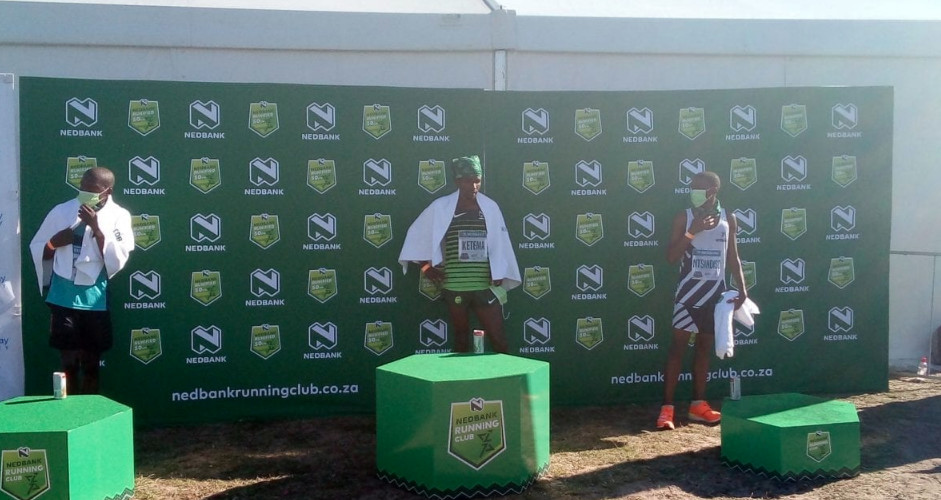
Negasa’s record
Negasa is primarily a marathoner, but he has never been able to match the necessary times to shine in Ethiopia. He owns a marathon PB of 2:11:07, a time that would rank him in the top 10 all-time among Canadian runners but isn’t even in the top 250 results in Ethiopian history. After his run on Sunday, though, it looks like ultras may be his forte.
It’s important to note that Albertson’s world record, which he set in November 2020, came on a track, while Negasa’s run on Sunday was on the road. Ultrarunning world bests are unique in this sense, because while Albertson and Negasa ran on completely different surfaces, their runs count in the same category of the 50K in general, as the International Association of Ultrarunners introduced a rule that eliminated surface-specific records in 2014. In other World Athletics-sanctioned events, the surface comes into play. For example, the 5K and 5,000m world records both belong to Uganda’s Joshua Cheptegei, but they’re two different times.
Negasa’s run worked out to an average per-kilometre pace of 3:15 for the full 50K, which helped him top Albertson’s result by 23 seconds. He crossed the line in first place, and he was followed closely by Machele Jonas, who also beat Albertson’s record with a 2:42:15 run. Third went to Mphakathi Ntsindiso in 2:42:18, and in fourth place was Kiptoo Kimaiyo Shedrack, who just beat Albertson’s record in 2:42:29.
Irvette Van Zyl run
Had the Nedbank Runified race been held a couple of months earlier, Van Zyl would have broken the women’s 50K world record. Since the race took place in late May, though, Van Zyl was late to the party, and her time is second-best to Linden’s. When she ran her race in Oregon, Linden became the first woman to break three hours over 50K, and she smashed Aly Dixon‘s previous record of 3:07:20.
While Van Zyl didn’t manage to beat Linden, she did crush Dixon’s result with her 3:04:23 finish, which is the new South African 50K record. Behind Van Zyl was Lilian Jepkorir Chemweno, who finished in second place in 3:05:00, which is now the third-fastest 50K in history.
by Running Magazine
Login to leave a comment
Ethiopia´s Ketema Negasa sets men’s 50K world record with 2:42:07 run in South Africa
Ethiopia’s Ketema Negasa broke the men’s 50K world record on Sunday, running 2:42:07 at the Nedbank Runified race in South Africa. Negasa led the way as he and three other runners beat American CJ Albertson‘s previous record of 2:42:30. In the women’s race, Des Linden‘s recent 2:59:54 world record remained unbeaten, but South Africa’s Irvette Van Zyl ran a national record of 3:04:23, which is the second-fastest women’s result in history.
Negasa’s record
Negasa is primarily a marathoner, but he has never been able to match the necessary times to shine in Ethiopia. He owns a marathon PB of 2:11:07, a time that would rank him in the top 10 all-time among Canadian runners but isn’t even in the top 250 results in Ethiopian history. After his run on Sunday, though, it looks like ultras may be his forte.
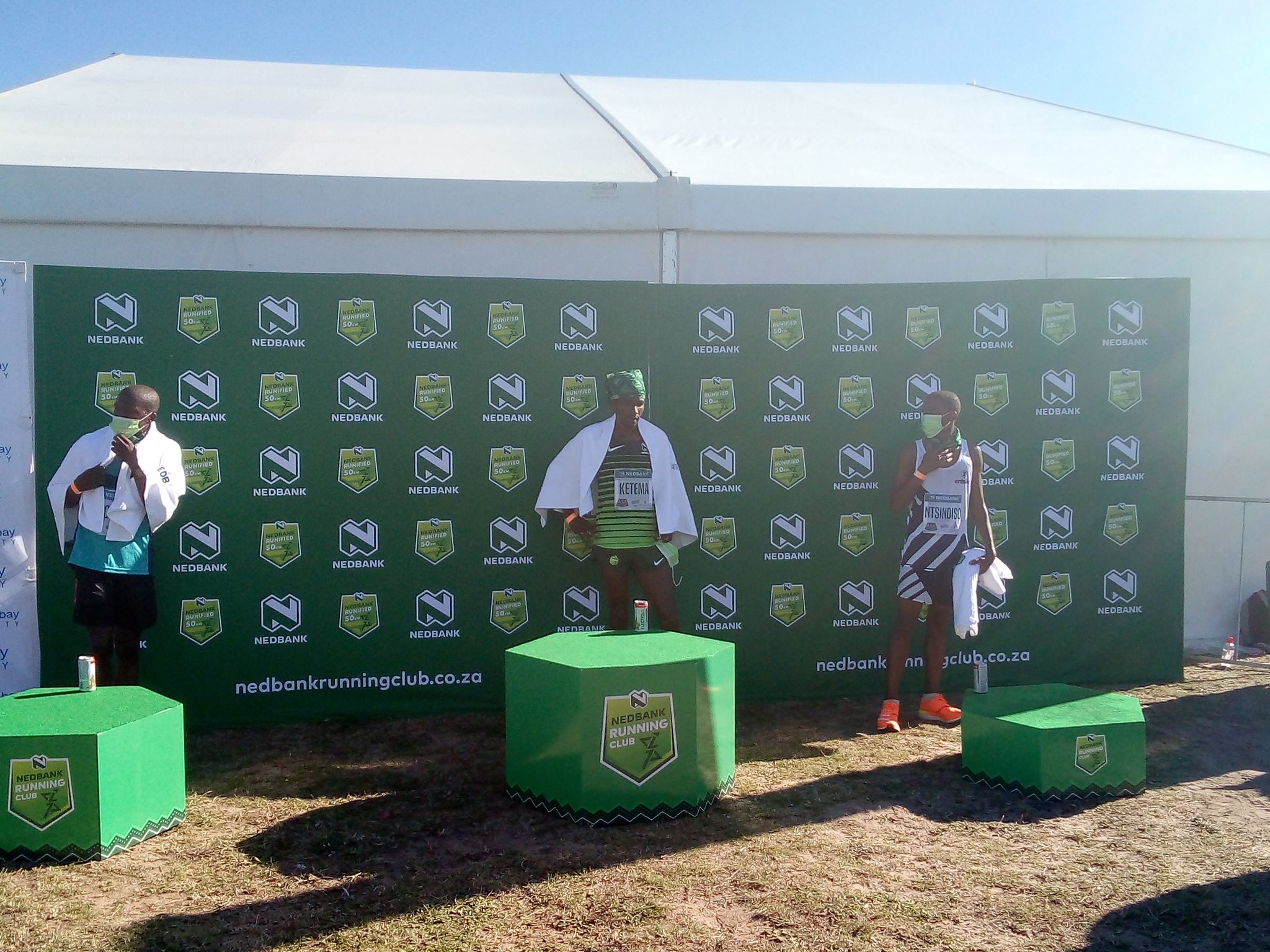
It’s important to note that Albertson’s world record, which he set in November 2020, came on a track, while Negasa’s run on Sunday was on the road. Ultrarunning world bests are unique in this sense, because while Albertson and Negasa ran on completely different surfaces, their runs count in the same category of the 50K in general, as the International Association of Ultrarunners introduced a rule that eliminated surface-specific records in 2014. In other World Athletics-sanctioned events, the surface comes into play. For example, the 5K and 5,000m world records both belong to Uganda’s Joshua Cheptegei, but they’re two different times.
Negasa’s run worked out to an average per-kilometer pace of 3:15 for the full 50K, which helped him top Albertson’s result by 23 seconds. He crossed the line in first place, and he was followed closely by Machele Jonas, who also beat Albertson’s record with a 2:42:15 run. Third went to Mphakathi Ntsindiso in 2:42:18, and in fourth place was Kiptoo Kimaiyo Shedrack, who just beat Albertson’s record in 2:42:29.
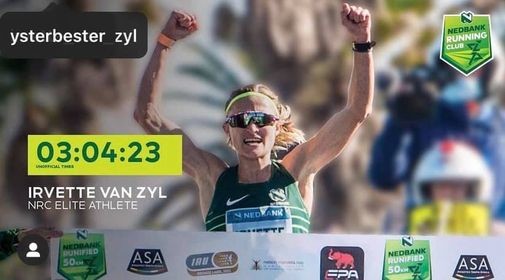
Irvette Van Zyl run
Had the Nedbank Runified race been held a couple of months earlier, Van Zyl would have broken the women’s 50K world record. Since the race took place in late May, though, Van Zyl was late to the party, and her time is second-best to Linden’s. When she ran her race in Oregon, Linden became the first woman to break three hours over 50K, and she smashed Aly Dixon‘s previous record of 3:07:20.
While Van Zyl didn’t manage to beat Linden, she did crush Dixon’s result with her 3:04:23 finish, which is the new South African 50K record. Behind Van Zyl was Lilian Jepkorir Chemweno, who finished in second place in 3:05:00, which is now the third-fastest 50K in history.
by Ben Snider-McGrath
Login to leave a comment
The Marathon Project is an elite only marathon being held Sunday Dec 20 in Chandler Arizona
When COVID-19 postponed or canceled all of the year’s major marathons in the U.S., two running industry insiders—Ben Rosario, the coach of NAZ Elite in Flagstaff, and Josh Cox, an agent to many marathoners, including several on the NAZ team—brainstormed a way for some of the country’s fastest athletes to race.
The result is The Marathon Project, an elite-only 26.2 that takes place at 10 a.m. ET on Sunday, December 20, on the Gila River Indian Reservation in Chandler, Arizona.
The course is on a flat, two-mile stretch of road with roundabouts at each end. Runners go up one side of the road and back down the other for a 4.2-mile loop that they’ll do parts of six times. The course is built for fast times, not for variety.
The race will be broadcast live on USATF.tv, and a 90-minute replay of the race will be available on NBCSN at 7:30 p.m. ET on Sunday evening. The broadcast will include veteran commentator Paul Swangard as well as Des Linden and Bernard Lagat, two experienced marathoners who should bring some insightful analysis.
Who is racing?
The race brings together 53 men and 44 women, plus 14 male pacers. Several were top-10 finishers at the Olympic Marathon Trials in February, the last chance these runners had a chance to race a major marathon on U.S. soil.
The top women include Sara Hall, who finished second in 2:22:01 at the London Marathon in October, and Keira D’Amato, who recently set a women’s-only 10-mile American record.
Stephanie Bruce, Emma Bates, Kellyn Taylor, and Julia Kohnen (who were sixth, seventh, eighth, and 10th, respectively at the Trials) also figure to be in the mix.
On the men’s side, Americans Scott Fauble and 2016 Olympian Jared Ward are among the top contenders. Four top-10 finishers from the Trials—Marty Hehir (sixth), CJ Albertson (seventh), Colin Bennie (ninth), and Matt McDonald (10th)—will also line up.
The men’s race also brings several international entrants. Amanuel Mesel Tikue of Eritrea boasts a PR of 2:08:17, although it dates back to 2013. Jose Antonio Uribe Marino of Mexico hopes to hit the Olympic standard of 2:11:30 to qualify for the Games, and Cam Levins of Canada also is looking for a strong performance to put him on the Canadian Olympic team.
Will Sara Hall set the American record?
Hall, 37, has been on a tear lately. After dropping out of the Trials at mile 22, she redeemed herself with a PR in a solo half marathon in Oregon and that runner-up finish in London, which she earned by way of a furious finishing kick in the race’s final meters.
The American record for the marathon, Deena Kastor’s 2:19:36, has stood since 2006. Hall has asked for a pacer to take her through the halfway point in 69:40, faster than Kastor’s record.
But in a prerace press conference, Hall was reluctant to call it a record attempt. “I want to go into this race with the mindset of trying to run as fast as possible,” she said on the Zoom call. “I can be all or nothing, and I don’t want to be in a scenario where I’m running really well and if I’m just off the American record pace, it feels like I’m failing. I think that would still be a big success, a big PR. That’s my main focus, just running as fast as I can.”
Hall added that she has done a lot of training faster than record pace. “I think [the record is] definitely possible based on my training,” she said.
In addition to Hall’s requested pace for a 2:19:20 marathon, the women’s race will have three other pace groups: 2:23, 2:26, and 2:29:30, which is the Olympic qualifying standard. The men will have two pace groups: 2:09 and 2:11:30.
What’s in it for the runners?
Rosario announced a modest prize purse: $5,000 for each winner, $2,000 for second, and $1,000 for third.
Otherwise, athletes are racing for sponsor bonuses—shoe companies often pay their athletes extra money for breaking certain times, although the terms of these deals aren’t publicly known.
Then, of course, there’s the joy of racing, when events have been hard to come by for the past 10 months.
“Every opportunity we have to be on a starting line is a gift in 2020,” Bruce said.
What safety measures are in place?
The race is following safety guidelines set out by USA Track and Field, World Athletics, and the state of Arizona. Participants must take two COVID-19 tests, separated by 24 hours, within the seven days before the race—which, of course, must both be negative. Most participants are staying in a race hotel near the course, creating a bubble environment of sorts.
But runners are traveling from all over to get to the race. Hehir, who is finishing up his final year of medical school, is traveling to the race from Philadelphia, where he has spent the past two weeks working in an ICU filled with COVID-19 patients.
“It’s just as scary as it’s hyped up to be,” Hehir said of Covid. “Yes, not everyone ends up in the ICU, but when you end up there, you are incredibly sick. It’s definitely a bleak place to be.”
He said he gave some “extra thought” into committing to the race, but he praised the precautions the race had put in place. “These opportunities are far and few between,” he said, “and as long as we feel like it’s being done in a safe way, a lot of us are going to jump on it.”
by Sarah Lorge Butler (Runner's World)
Login to leave a comment
CJ Albertson Just Ran a 2:09 Marathon on the Treadmill. He Doesn’t Care What You Think About It.
Albertson, 27, has been doing a lot of cool things recently. His highlights from the last month:
On November 1, he ran 50.4 kilometers on his treadmill in 2:42:00. The treadmill world record for 50k (and fastest time anyone had covered 50 kilometers, period) was 2:42:56.
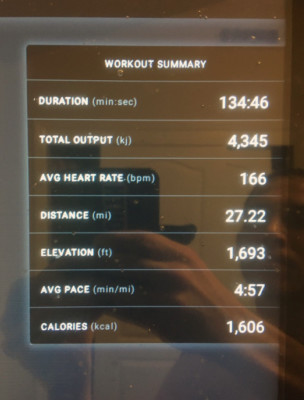
On November 8, he ran a 50,000-meter world best of 2:42:30 by running 125 laps around his old track at Buchanan High School in Clovis, Calif.
On November 15, he ran 37 miles on his treadmill at 5:56 mile pace — the longest run of his life.
His most recent effort was his most impressive yet: on Sunday, he ran an approximate 2:09:58 marathon on his treadmill, and felt so good, he added on an extra mile even faster.
Though Albertson knew what the treadmill world record was (2:17:56 by Tyler Andrews in June), he didn’t go into his run thinking of it as a world record attempt. He just wanted to see if he could run a 2:10 marathon on a treadmill.
So he went into his guest bedroom, opened the French doors, and set up a fan to get some air flowing from outside. He laid out his fuel: seven gels, one bottle of water, and one bottle of carbs and electrolytes. He cued up the Panic! At the Disco station on Amazon Music. Finally, he wheeled in his television and prepared to binge Community. He didn’t mind that his music would mostly drown out the dialogue.
“I’ve seen all the episodes like, five times,” Albertson says. “It’s just something that clears my mind.”
And then he set his Peloton treadmill to 12.1 miles per hour (2:10:00 marathon pace) and he ran. And ran and ran and ran.
Six miles in, he began to hurt.
“I’m like, okay, I’m probably not going to go a marathon,” Albertson says.
But he muscled through the rough patch, and as he neared the end, he was feeling good. So good, in fact, that he didn’t want to stop. So after passing 26.2 miles, Albertson cranked the treadmill up to its max speed of 12.5 miles per hour (4:48 pace) and ran one final mile before stepping off with a final time of 2:14:46 for 27.22 miles.
Albertson says that before Sunday, he’d never experienced the “runner’s high.” But after his 27.22-mile effort, it hit him.
“I was walking around the house pumped up, kind of like a fighter when you see them just hopping around, randomly yelling,” Albertson says.
That feeling, and the fact that he accomplished his goal of running an entire marathon at 2:10 pace, is enough for Albertson. He won’t be submitting the effort as an official world record; he didn’t record the run or calibrate the treadmill prior to the attempt. And though he set the grade to 1.5% to account for the lack of wind resistance (“I read something that said that’s about accurate for that pace”), he isn’t going to waste time trying to figure out what the performance was worth. (Albertson thinks he came through 26.22 miles in just under 2:10 — he set the treadmill to 4:55 pace for the final mile of his marathon (2:10 pace is 4:57 pace)– and says he split roughly 2:09:50 from mile 2 to mile 27.22).
“That’s kind of the fun, that’s kind of the mystery — what was that effort worth really?” says Albertson. “I’ll never know. No one will ever know.”
Albertson says he still considers his marathon personal best to be the 2:11:49 he ran to place seventh at the Olympic Trials in Atlanta in February, but is hoping to break 2:10 at the Marathon Project on December 20 in Arizona, where he’ll face Scott Fauble (2:09:09 pb) and Canadian record holder Cam Levins (2:09:25 pb), among others.
The fact that breaking 2:10 is now a realistic goal for Albertson, who works as a professor and head cross country coach at Clovis Community College, is fairly remarkable. He was a solid runner at Arizona State, posting personal bests of 7:59, 13:50, and 8:45 in the steeple, but by no means a future star; he never even qualified for the NCAA cross country championships (he did make it to NCAAs in the steeple as a junior in 2016, though he didn’t make the final).
After graduating in 2017, Albertson spent a year away from competitive running. But when he returned in 2018, training for the Two Cities Marathon in Fresno, he tried a different approach, throwing in several long runs of over 26 miles in his buildup. It worked: he won the race in 2:17:45, qualifying for the Olympic Trials.
Since then, Albertson has incorporated hard long runs of 26-32 mile into his weekly routine, doing them almost every Sunday when he’s in serious training. And he has improved drastically. In March 2019, he shaved 58 seconds off his personal best by running 2:16:47 to win the Modesto Marathon and followed it up with a world best for the indoor marathon, clocking 2:17:59 at the Armory in April. In the fall, he ran another big pb of 2:14:51 to repeat at Two Cities before running yet another pb of 2:13:40 a month later to finish second at CIM. Then he took almost two minutes off of that time to finish seventh at the Trials.
Albertson, who is self-coached, views his Wolverine-like ability to recover as a gift that must be nurtured. He tried traditional training in college, but it was only once he leaned into making these long, hard efforts a regular part of his training that his career truly took off.
“It comes really easy and natural for me to do what people would say [are] hard long runs,” Albertson says. “So I feel like I kind of have to take advantage of that, and it works for me. I was decent in college. But I was not seventh in the nation in college, ever. I wasn’t even close.”
Mentally, Albertson is also well-suited for the monotony of grinding away on a track or treadmill for hours on end. He likes running best when he doesn’t have to worry about splits or surges and can just lock into a pace, comparing it to meditation.
“I like the rhythm,” Albertson says. “A treadmill, you’re in perfect rhythm all the time. A track, you can get into that rhythm too. There’s just something about it that is relaxing but also allows you to push hard. And so I don’t have to think about anything, I just get the physical act of running hard and fast. There’s something really soothing about that to me.”
Albertson posts all of his training on Strava, and because many of his workouts are ridiculous, they tend to generate a lot of discussion (example: this five-page thread on LetsRun after Albertson ran 27 miles at 5:09 pace in February). Albertson says he sometimes gets a laugh out of seeing strangers on the internet overanalyze his runs, but for him, setting obscure records and logging mind-bending treadmill workouts are a way to have fun and keep training interesting. They’re not what the sport is about.
“Any race is gonna mean a lot mean than any sort of a record, because competing, that’s what the sport is: you race people,” Albertson says. “…It really doesn’t matter what you do in practice. When I line up December 20, it’s like, who cares? I don’t care what anyone else did [in practice], no one cares what I did. We’re just racing and the person who crosses the finish line wins.”
by Lets Run
Login to leave a comment


